

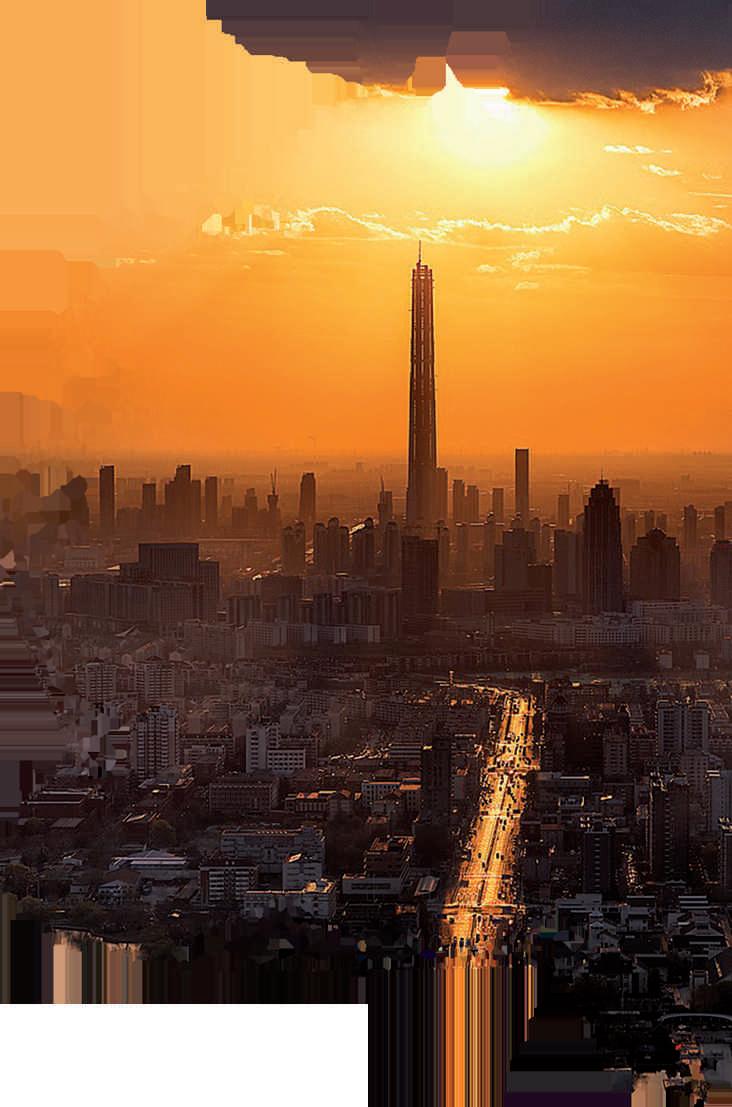
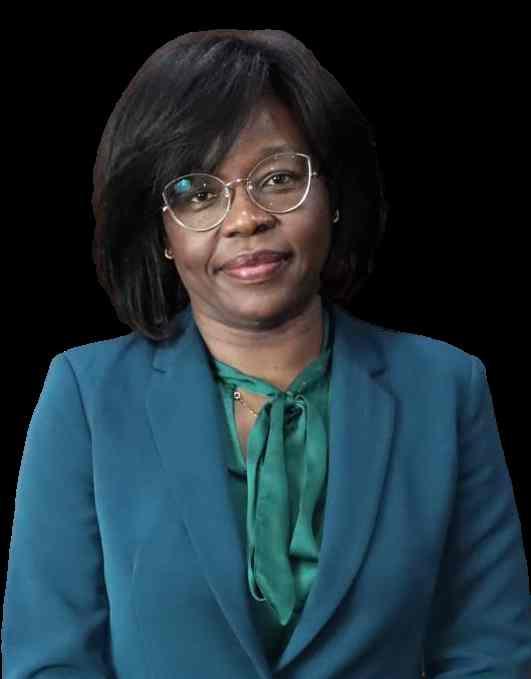


AFRICAN PEACE MAGAZINE LTD ISSN 2360-8919 ISSUE 106 / 2022 N5,000 / $12 / �10 ...Providing a friendly pla�orm towards achieving peace in Africa HONJUSTICE EXCLUSIVE INTERVIEW LAURINDA PRAZERES MONTEIRO CARDOSO PRESIDENT OF THE ANGOLAN CONSTITUTIONAL COURT. FORCED MIGRATION INAFRICA THE MAGIC OF UNITY THROUGH FOOTBALL IMPACTOFTHE WARINUKRAINE INAFRICA
With over 18 years experience in conducting safari tours in Africa, you will be dealing with an experienced company that employs well-qualified and trained individuals. African Sky offers both luxury travel as well as more reasonably priced alternatives. Our expert travel services are focused on the countries of South Africa, Botswana, Namibia, Zambia, Zimbabwe and Mozambique.

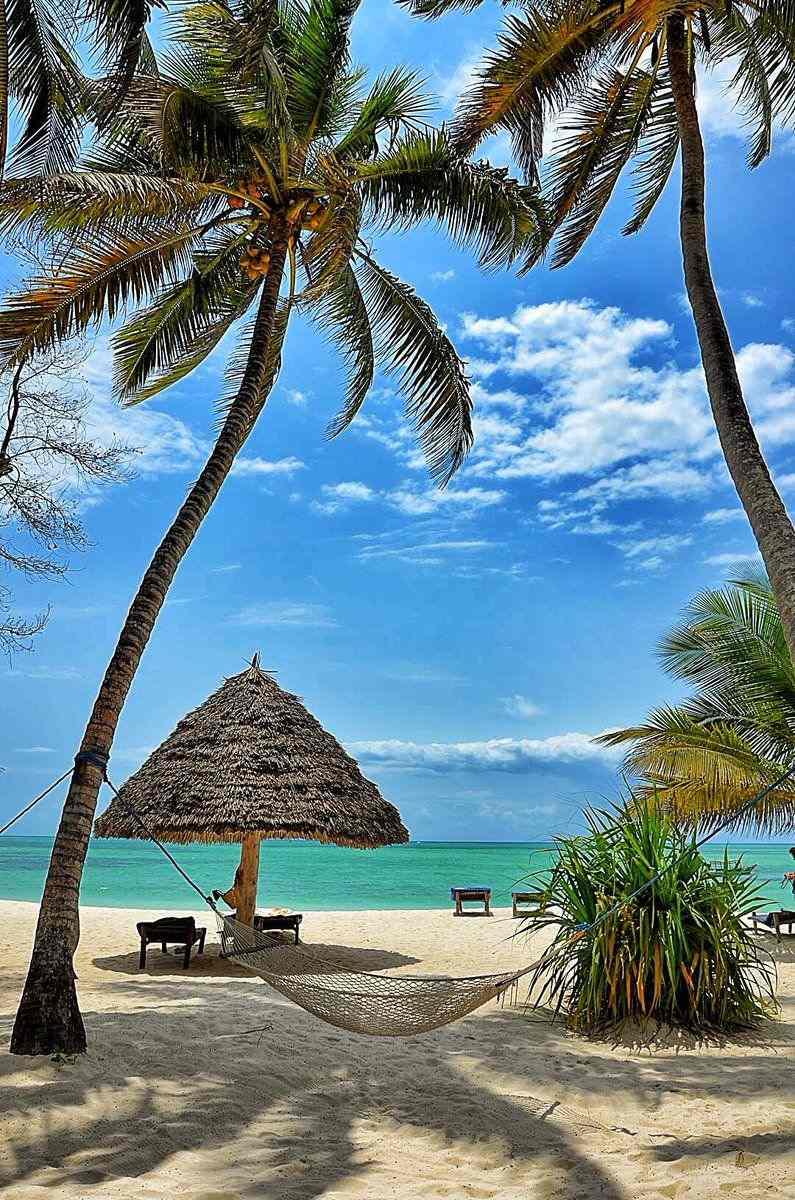
You have a great variety of choices as far as lodgings are concerned, ranging from comfortable and affordable to luxurious and exclusive. As with the accommodations, the range of experiences and the locations in which these can be enjoyed are as diverse as the vibrant city of Cape Town and the endless sun-scorched expanse of the Etosha Pan in Namibia, as leisurely as relaxing on a tropical beach in Mozambique and as exhilarating as encountering lion's on a bush walk in the Sabi Sand.

TRAVEL ADVICE?
consultants are ready to assist you with your
safari tour
NEED
Our
dream African
Editorial Team
Editor In Chief/Publisher Noah Ajare
Editor
Chairman
Managing Editor Arinola Suleiman
Associate Editor
Comfort Yahaya
Shukurat Abiola Sharafa. International Standard Control Manager
Temitayo Atinuke Ajibade Social Media Manager
Gabriel Ayite Baglo International Chief Consultant
Nympha Chinenye Nzeribe. International Correspondent
African Peace Team
Angela Mandara (Kenya)
Chief Alfred Solomon (United Kingdom)
Joy Umekwe (United Kingdom)
Olajide Ajayi (Ireland)
Somie Kay (Kenya)
Segun Victor (France)
Johnny Mashigo (South Africa)
Jemiriye Adeniji (USA)
Laolu Omisade (Canada)
Charles Acculley (Ghana)
Tony Stony (Zambia)
Mary Anyango Oluoch (Kenya)
Noble W. Kel Ngozisonye (UAE) Deji Gbotosho (Nigeria)
Hauwa Gadzama (Nigeria)
Ayiroth Sandra (Uganda) Shreya Yadav (India)
Sekao Phenyo Ntsosa (Botswana)
Charity Lily (South Africa)
Joseph Onele (Nigeria)
Eric Emmanuel Sossah (Togo) Salama Kasoga (Uganda)
Hadiza Abdulrahman (Nigera)
Sylvia Nachilinda (Zambia)
Tonye Suzanne (Cameroon) Sunday Honorine (Rwanda) Lillian Wamuyu (Kenya) Ntombi Magagula (South Africa)
Marketing and Business Development
Bizchart NG Investment Holdings (PTY) Ltd (South)
Editorial Board
Prof. Lloyds Williams (USA)
Prof. Muhamed Tawq Ladan (Nigeria)
Prof. Paul O. Idornigie (Nigeria) Dr. Abiodun Odusote (Nigeria)
Graphics/Photograph
Abdulrau Raimi John Okwo
Mattory Digital Print CreativeReality
Contributors
Elvis Lyorngurm
Adam Alkali
Zoe Seeker
Zina Harvey Ejodame Emmanuel Uju Nnaji
HEADOFFICE: Suite S9, Vatan Plaza, Lokogoma Junction, Abuja, Ngeria Tel : 234705 923 9969 UNITEDKINGDOM: 6, Houghton Parade, Houghton Rd , Dunstable, Bedfordshire Lu6 1DA, United Kingdom Tel : +44744 8921 266 Email: nfo@africanpeacemag org Website: wwwafricanpeacemag org wwwafricanpeacemag org ...Providing a friendly pla�orm towards achieving peace in Africa
Barakat Yakubu Deputy Editor Austin Otah
Hon Justice Suleman Galadima, JSC CFR OFR rtd
AFRICANPEACE 3
T�le of Content
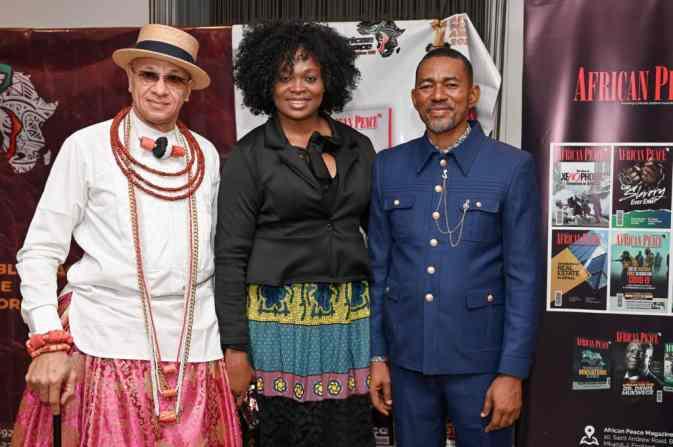
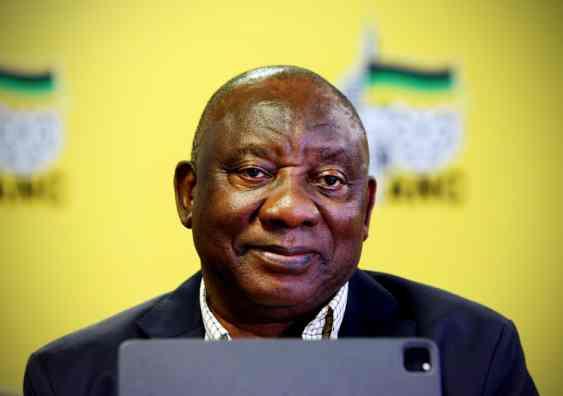
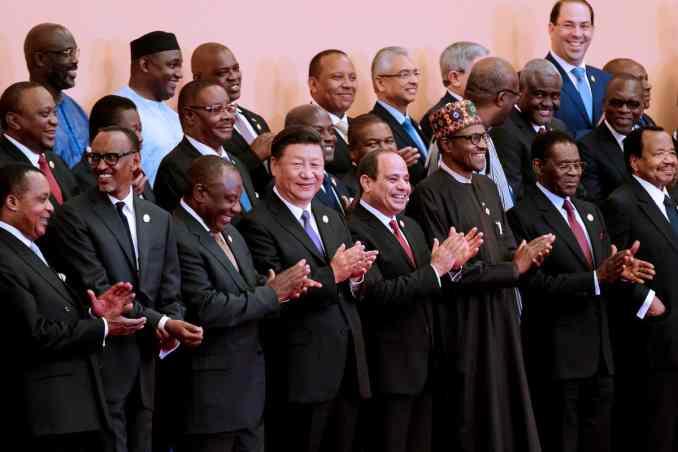
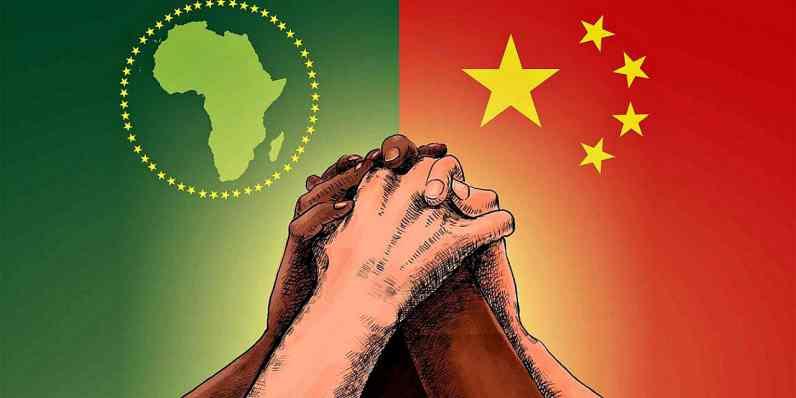
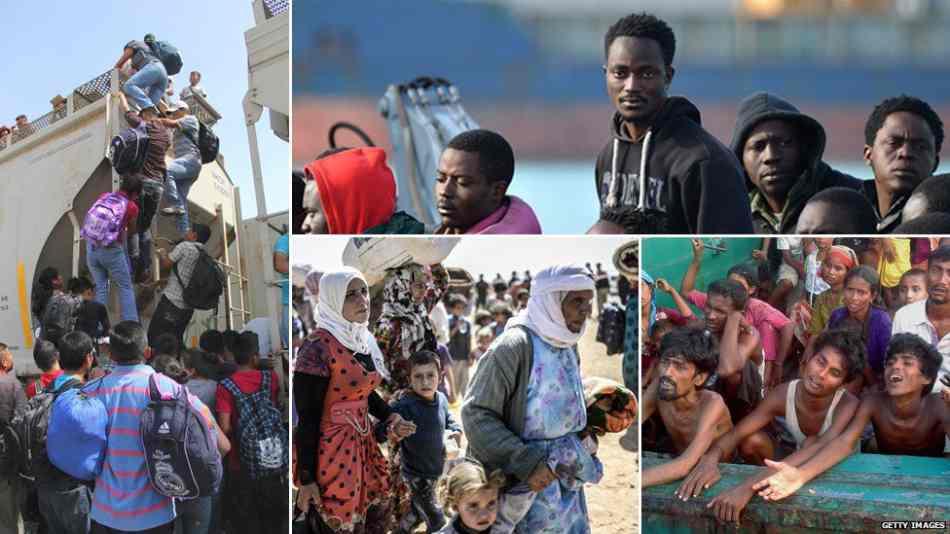
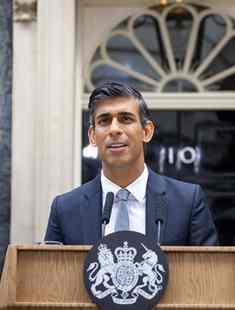
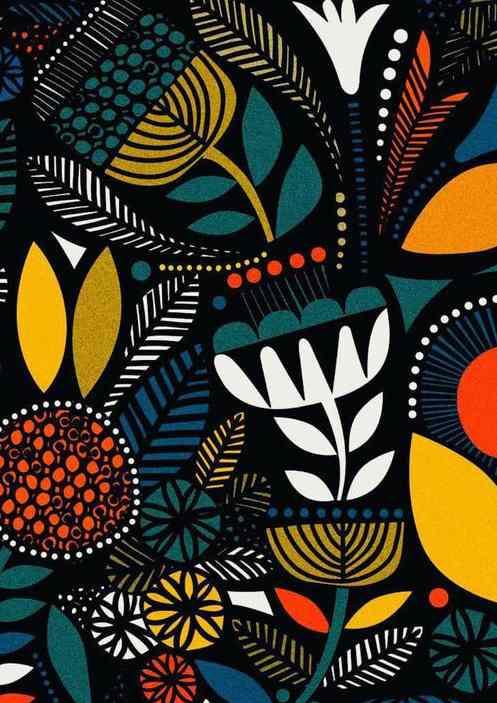
AFRICANPEACE 4
Editor’s
For many Africans, and indeed in the eyes of most foreign observers ofAfrican affairs, the restoration of democratic rule in most African countries has brought little or no change in the politics of this billion people continent. The current p o p u l a t i o n o f A f r i c a i s 1,417,946,423 as ofWednesday, November 30, 2022, based on the latest United Nations estimates. Africa population is equivalent to 16.72% of the total world population. Africa ranks number2 among regions o f t h e w o r l d ( r o u g h l y equivalent to "continents"), o r d e re d by p o p u l a t i o n . T h o u g h m o s t A f r i c a n C o u n t r i e s i n h e r i t e d democracy, autocracy is still deeply rooted clothed in democratic façade.
Insecurity, external influence, c o r r u p t i o n , e l e c t o r a l malpractice and political violence, the usual causes of governmental instability, have remained intractable despite a deluge of reform initiatives in most African countries. Yet, as this edition will show that all hope is not lost, while the benefits of most institutional reforms have been difficult to measure, there has been
significant progress in a few other key areas of Africa’s political life. One of them is the relatively successful reforms in the judiciary in most African Countries, which has led to the i n s t i t u t i o n ’ s g r a d u a l emergence as a courageous and impartial arbiter in intraelite electoral disputes in this chronicallyunstable continent. One would clearly observe the role of the Kenyan judiciary in the last Presidential elections, in South Africa, Nigeria, Ghana a n d o t h e r s we c a n s e e changes. The transformation of the judiciary is amply demonstrated by the large n u m b e r o f j u d i c i a l pronouncements that have upturned the results of several flawed elections and restored to office elected officials, wrongfully removed from their positions. These decisions and the new activist role of the judiciary which produced them have, in many ways, helped to reinforce the role of t h e j u d i c i a r y a s a v i t a l instrument of political control and democratic stabilization.
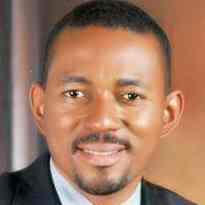
In these edition we had an exclusive interview conducted by the Chairman of African Peace Magazine Hon. Justice Suleman Galadima JSC,
In this exclusive interview Hon Justice Laurinda Prazeres
M o n t e i r o C a r d o s o t h e President of the Angolan ConstitutionalCourt laid it bare on how the Court helped in sustaining and upholding democracy in the recently conducted 2022 elections in the Republic of Angola Her lordship Chief Judge of the Constitutional Court (TC)/ President heads the highest Court in Angola when it comes to election matters.
We specially commend the role of the President and the Court in sustaining and promoting democracy in Angola andAfrica at large.
Finally Africans should design t h e i r o w n a p p r o a c h t o democracy, make a good-faith effort to govern well and to have programs work in an efficient manner, and strive for peace and development. What seems clear is that democracy is the way to go for Africa and we must find a way to make itwork.
CFE,OFR, Retired Justice of the Supreme of Nigeria and the Editorin Chief.
AFRICANPEACE 5
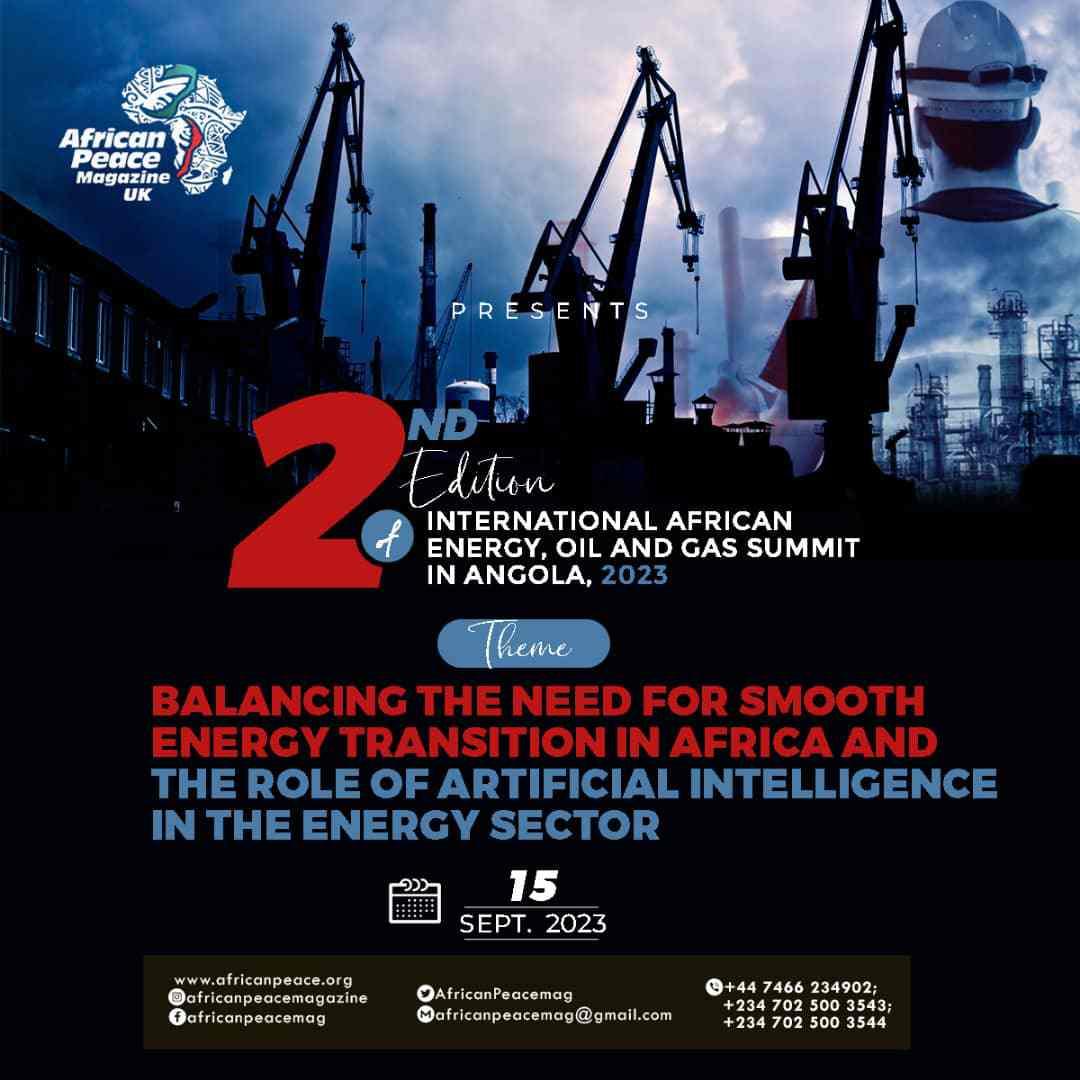
AFRICANPEACE 6
AS NIGERIANS GEAR UP FOR ELECTIONS IN 2023

Over the years since the first ever time Nigerians had experienced a fair election , w h e n t h e y h a d c o m e together in 1993 to vote for a s i n g l e p e r s o n n a m e d Moshood Abiola Kashimawo (MKO), who was loved by every ethnic and religious groups.in the country. The first time Nigerians had a consensus not for any selfish i n t e r e s t , b u t f o r t h e betterment of Nigeria. Which t o e v e r y i n d i v i d u a l s d i s a p p o i n t m e n t w a s canceled right under their nose, leaving the hearts of its citizens in shattered pieces making every citizen wary of its trust in the country
Election has become a critical affair in Nigeria, especially considering the economic state of the country and how it has derailed from the once peaceful Nigeria to a chaotic one Ignorance had made
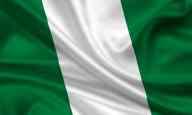
some people politically apathetic, however the lack of growth and development with the walls of Nigeria crumbling right in front of its b u i l d e r s , m a d e s o m e withdrawfrom having a sayin who leads the country.
Every citizen has a right to vote and be voted for, but as the case might be the votes hardly count. The general election of 2015 had the most turnout since 1993 of eager vo te r s w h o h a d h o p e Believing the right decision was finally being made. To everyone ' s disappointment it was beginning to dawn four years later that maybe they had moved from frying pan to fire.
Just when the thoughts of everything sorting itself out s o o n , t h e c o u n t r y snowballed into a massive ditch that appears to have a dark, deep hole to it. Readyto swallow it whole, chaos filled
everywhere Regrets made citizens ponder making the catch phrase,"had I known."
The moment came when the future holders of the country couldn't take it anymore and decided to revolt against bad governance and insecurity.
L i v e s w e re t a ke n a n d properties destroyed; hands raised to the head In pitiful despair lamenting, "what have we done to deserve this?”
After all of the years of taking things as they come and chewing on the lips with rage, a single unplanned but heart wrenching move from the government brought about a final lift of the ignorant veils Revolution c h a nt s evo lve d i n t h e mouths of the people and it was finally time as the insisted.
Enough is enough!
T h e fo r t h co m i n g 2 0 2 3
AFRICANPEACE 7
election, which holds in less than 100 days from now, is p r a c t i c a l l y t h e m o s t anticipated election of the century This isn't just an election, but a decision making process that is a quite tough.
It's the time when the youths of the land have for once since 1993 come together to take charge oftheirfuture.
High tension has been flying around and fear lingers on the mind of the people, even when they try hard to not show it. It's mostly related to t h e h i g h i n c r e a s e o f insecurityIn the country.
T h e r e g i s t e r i n g a n d collection of the Permanent Voters Card(PVC) through the independence electoral commission (INEC), recorded a large turnout in 2022 as more people are pleading towards the extension of registration. This implies that a major number of people who might have one time i g n o re d t h e e l e c t o r a l process of the country Are nowtaking actions.
Nigerians no longer want a g o v e r n m e n t t h a t i s unaccountable for their actions. They are hell bent on making sure their vote counts this time around. As they all gear up for the elections, fear, doubt and hope all mixed together in one feels their individual hearts.As each person insists their chosen candidates is the right one for Nigeria's development.
Good people, great nation is what Nigeria is known to be.
And has been dragged into the mud as a result of bad leadership. People are tired of recycling old baggages over and over again. A new dispensation is all they strive fornow
2023 isn't just a year of electing a new leader, but it would be a definite turning point for Nigerians. This year d e t e r m i n e s w h a t w i l l become ofNigeria in the next four to eight years. It will be the depth of predicting if Nigeria would scale through its hard times, orsink into it.
As Nigerians look onto the coming year, they watch it with a hopeful heart. Hoping fervently that it would bring along good tidings for the sanity of the Nigerian citizens. A s t h e e l e c t i o n d a y a p p r o a c h e s ; I N E C i s expected by the Nigerian citizens to ensure that during the election there is;
Transparency; that is each step of the election process should be easily understood and open to criticism by all s t a k e h o l d e r s ( v o t e r s , political parties, outside observers and others) All r e s u l t s s h o u l d b e independently verifiable and auditable, with no other f u s i o n f r o m u n k n o w n sources.
Privacy; the choices that each voter makes should remain private both during and after the election. Cases have occurred over the years where voters are forced to tell who they intend to vote for and are convinced either
through bribery or violent threat to have a change of heart.
Integrity; only eligible and thoroughly registered voters should be allowed to vote, and those votes must be protected from anyalteration orexclusion.
Affordability; the election process must be affordable to governments and its citizens in order to maintain sovereignty
Accessibility; all eligible v o t e r s , r e g a r d l e s s o f location, group membership or disability, should have re a s o n a b l e a n d e q u a l opportunity to cast their ballot.
Security; the advent of violence or disruption erupting in the polling units isn't to be taken lightly, considering the emergency state of the nation. Nigerians are hoping as they go out to vote, they wouldn't have to fight for their country and their life as well. It's the duty of not just INEC but the government to ensure every soul is protected on this very day
All this and surely the expected hopes and dreams of the Nigerian citizens who take the progress of the country dear to heart would be achieved as the election daybeckons.
AFRICANPEACE 8
CURBINGTHEMENACEOF DRUGABUSE IN AFRICA
Drug abuse or substance abuse is defined as the use of certain chemicals for the p u r p o s e o f c r e a t i n g pleasurable effects outside a doctor's prescription Drug abuse also refers to the increase in desire to obtain and use increasing amounts of one or more substances to the exclusion of everything else. A drug abuser is one who takes d r u g s o t h e r t h a n t h e legitimate medical purpose Drug abuse affects the body and mind of the user and often many of those around him or her It is one of the health related problems that have steered concern to both national and international bodies. In Africa, it is a major public health, social and
i n d i v i d u a l p r o b l e m , particularly among young adults underthe age of30, and is seen to stir up factors for economic crises.
WhyPeopleAbuseDrug Curiosity And Desire To Know AboutAParticularDrug.
Curiosity to experiment with unknown facts about drugs thus motivates youth into drug use. The first experience in drug abuse produces a state of arousal such as happiness and pleasure which in turn motivates them to continue.

PeerGroup
Peer pressure plays a major role in influencing many youths into drug use and abuse. This happens on the
drive for identification and a sense ofbelonging.
RecreationalPurposes
As a means of obtaining creative inspiration for a devotionals adventure..
EnvironmentalConditions
Many young people live in communities which suffer from multiple deprivations, with high unemployment, low quality housing, lack of water sanitation and hygiene, increased violence and crime r a t e , a n d w h e r e t h e surrounding infra-structure of localservices is splintered and poorly resourced In such communities drug supply and u s e o f t e n t h r i v e a s a n alternative source of quick
AFRICANPEACE 9
money often controlled by powerfulcriminalgroups.
Business promotion and Availability Alcohol and pain relief drugs are regularly advertised on television especially at peak hours. Research institute concluded t h a t a d v e r t i s i n g d i d encourage young people to start smoking and reinforced the habit among existing smokers. Despite legislation, children and adolescents have no problems obtaining alcohol and tobacco from any number of retail outlets A variety of products are openly hawked in kiosks, at parks and on the roadside It is not uncommon to see people openly advertising sexual e n h a n c i n g d r u g s t o pedestrians all over major cities ofAfrica countries.
Enjoyment
Everyone wants to have fun and feel good. Despite all the concerns about illicit drug use and the attendant lifestyle by young people, it is probably still the case that the lives of most young people are centered on school, home and employment and that most drug use is restricted to the use of tobacco and alcohol. T h e y m a y a d o p t t h e demeanor, fashion and slang of a particular subculture including the occasional or experimental use of illegal drugs without necessarily adopting the lifestyle.
Lack ofParentalSupervision
Parental supervision is key to ensuring a g and the Socioeconomic Status of the Parents: Socio-economic status of the parents entails direct costs which are very important to families
Self– medication
Drugsabuse
Drugs that are commonly on a b u s e a r e u s u a l l y psychoactive drugs that are used by people for various different reasons They are classified into three groups: Depressants, stimulants and hallucinogens. Examples of such drugs include:
To b a c c o , I n d i a n h e m p , cocaine, morphine, heroin, alcohol, ephedrine, caffeine, barbiturates, amphetamines, opium, morphine, pethidine, codeine, dipipanone, and methadone.
Effectsofdrugabuse
Africa ’ s population has substantially grown with over 50% since 2000, and in this time, the number of years lost to disability due to mental and substance use disorders increased by 52% Thus, substance use among youth w h e n c o m p a re d to t h e general population, with associated physical and psychosocial problems such as fighting, vandalism, theft, involving in unprotected sex, personal injury, medical problems and impaired relationships with family and
friends has well increased Drug Abuse can cause social a n d s o c i o - e c o n o m i c disadvantage which may f u r t h e r l e a d t o d r u g dependence and a myriad of other adverse outcomes In addition, it directly affects millions of lives every year, c a u s i n g m o t o r v e h i c l e crashes, crimes, injuries, loss of properties, impaired health, mental disorders and reduced qualityoflife.
Yo u n g p e o p l e w h o a re supposedly the hope and the major agents of change and development in the nation, h a v e b e e n n e g a t i v e l y impacted by drug abuse consequently rendering them unproductive This menace has a negative impact on families stealing, communities including undergraduates in u n i ve r s i t i e s a n d A f r i c a continent at large. The overall health of the user is affected negatively and behaviors associated with drug abuse predispose the abuser to c r i m e a n d c o n t a g i o u s diseases including HIV/AIDS (Center for Disease Control, 2000).
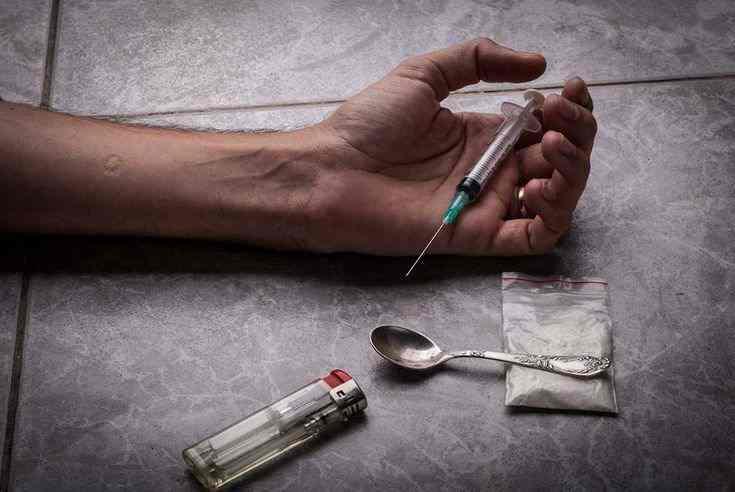
AFRICANPEACE 10
Mentalhealth
Mental health problems such as depression, developmental lags, apathy, withdrawal, and o t h e r p s y c h o s o c i a l dysfunctions frequently are linked to substance abuse a m o n g a d o l e s c e n t s . Substance-abusing youth are at higher risk than nonusers for mental health problems, including depression, conduct p r o b l e m s , p e r s o n a l i t y disorders, suicidal thoughts, attempted suicide, and suicide. Marijuana use, which is prevalent among youth, has been shown to interfere with short-term memory, learning, and psychomotor skills. M o t i v a t i o n a n d psychosexual/emotional development also may be influenced (Bureau of Justice Statistics, 1992).
Families
In addition to personal adversities, the abuse of alcohol and other drugs by youth may result in family crises and jeopardize many a s p e c t s o f f a m i l y l i f e , sometimes resulting in family dysfunction. Both siblings and p a re nt s a re p rofo u n d ly affected by alcohol- and druginvolved youth (Nowinski, 1990). Substance abuse can drain a family's financial and emotional resources (Bureau ofJustice Statistics, 1992).
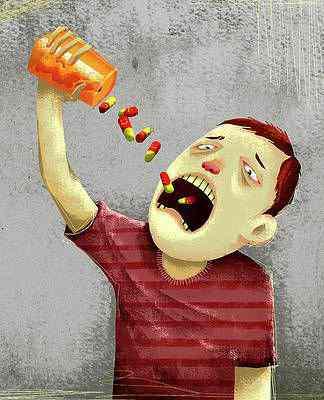
S o c i a l a n d e c o n o m i c consequences
The social and economic c o s t s re l a t e d t o y o u t h substance abuse are high They result from the financial losses and distress suffered by alcohol- and drug-related crime victims, increased burdens for the support of adolescents and young adults who are not able to become self-supporting, and greater
demands for medical and other treatment services for theseyouth (Gropper, 1985).
Prevention
Drug abuse prevention, also known as substance abuse prevention, is a process that attempts to reconcile and p r e v e n t t h e o n s e t o f substance use or limit the development of problems a s s o c i a t e d w i t h u s i n g psychoactive substances
Preventive approach may focus on the individual or their surroundings. A concept that is known as "environmental prevention " focuses on c h a n g i n g c o m m u n i t y conditions or policies so that the availability of substances is reduced as well as the demand.
Drug Abuse Prevention, also known as individualsubstance abuse prevention involves n u m e r o u s a m o u n t s o f different sessionswhich hangs on the individual to either help cease or reduce the use of substances. The time period to help a specific individual can vary based upon many aspects of an individual. The type of Prevention efforts should be dependent upon the individual's necessities w h i c h c a n a l s o v a r y
Substance use prevention efforts typically focus on minors and young adults within the age range of 12 to 35 years.
In addition, families and communities play key roles in providing support, showing care and setting a good example toyoung people.This cannot be overemphasized as they help establish rules and consequences, keep track of prescription drugs as well as young people’s activities
However, a majorissuewhen it comes to drug abuse and addiction is that a lot of people v i e w v i c t i m s i n a d i s c r i m i n a t o r y m a n n e r t h e r e b y d r i v i n g t h e m underground rather than encouraging them to seek medicalhelp.
Recommendations
To a c h i e v e a p e a c e f u l continent is a cooperate responsibilityfor allAfricans as well as every peace maker
Both governmental and private bodies. A good example is African Peace Magazine UK (APM) which provides a friendly platform towards achieving peace in Africa.APM core aim is to uplift the values of Peace and unity throughout african continent.
AFRICANPEACE 11
IEXCLUSIVE NTERVIEW
HONJUSTICE PLAURINDA RAZERES MONTEIROCARDOSO
PRESIDENTOFTHEANGOLANCONSTITUTIONALCOURT.
1. Tell us about the structure of the justice system in Angola.
The Courts of the Republic of Angola, in the tripartite framework of State Power, are Sovereignty Organs whose mission is to administer justice on behalf of the people, deciding on cases s u b m i t t e d f o r t h e i r consideration/resolution.
In order to pursue their institutional scope, the Courts are organized and work in an articulated manner This is what we call the jurisdictional system: that is the set of courts that, in an articulated way and with duly delimited powers, exercise jurisdiction in the Angolan territory and in theAngolan legalsystem.
The Angolan judicial system has a two-headed structure, a n d c o m p r i s e s t w o jurisdictional orders: the courts of common jurisdiction a n d t h e c o u r t s w i t h specialized competences. Article 176 of the Constitution
of the Republic of Angola (CRA) provides that the Angolan judicial system is made up of the following Higher Courts: Supreme Court, Constitutional Court, Court of Auditors and the Supreme MilitaryCourt.
I n a d d i t i o n t o t h e Constitutional Court and the Court of Auditors, the system o f o r g a n i z a t i o n a n d functioning of the Angolan judiciarycomprises:
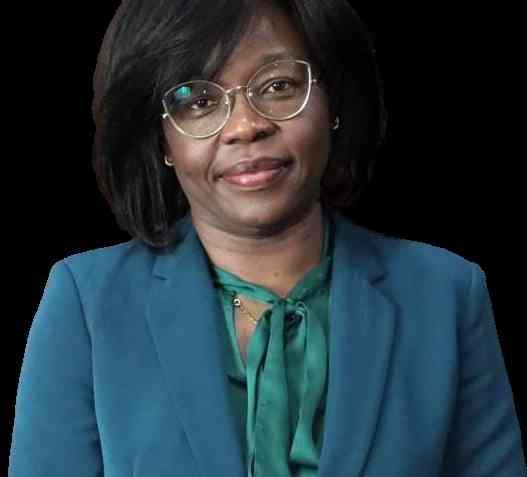
i. A common jurisdiction, made up ofthe District Courts, Courts of Appeal and headed by the Supreme Court, Article 179(2) of the CRA and Article 3(1) of Law No. 29/22, of 29 August – Organic Law on the Organization and Functioning o f C o u r t s o f C o m m o n Jurisdiction.
ii A military jurisdiction, headed by the Supreme Military Court and made up of RegionalMilitaryCourts. Regarding the Courts with specialized competence, the C o n s t i t u t i o n a l C o u r t i s
responsible, in general, for administering justice in m at te r s of a l e g a l a n d constitutional nature (Article 181 of the CRA), while the Court of Auditors is the supreme body for overseeing the legality of finances. and judgment of accounts that, under the law, are subject to its jurisdiction (article 182 of the CRA).
I t i s f o r e s e e n t h a t a n autonomous administrative, fiscaland customs jurisdiction will be created, headed by a Superior Court (Article 176(3) of the CRA), as well as the p o s s i b i l i t y o f c r e a t i n g Maritime Courts (Article 4(4) of the CRA). 176 ofthe CRA).
Although these last two jurisdictions are not yet institutionalized, the issues related to their competences are resolved by Rooms or Chambers of the Courts of the common jurisdiction, with specific competences for the effect.
AFRICANPEACE 12
2. Fromyour point ofview, the recent general elections werefreeandfair,isthereany waytoimproveinthefuture?
As we stated earlier, at the inauguration of the elected President and Vice President of the Republic, the elections were free and fair The Angolan people once again set a great example of urbanityand civility
Notwithstanding this, it is interesting to assert that, for the future, we believe that the Organic Law on General E l e c t i o n s s h o u l d b e improved, in order to give greater consistency to the cognitive powers of the Constitutional Court and to expand the proceduralmeans of investigating the regularity of acts of institutions that exercise certain powers in electoralmatters.
Under the current regime, the Constitutional Court only declares the election at a given polling stationvoid ifthe irregularities found are likely to substantiallyinfluence the overall result of the election. We are in favor of a greater extension of the possibility t h a t o u r C o u r t , w h e n declaring the election held at a polling station, may impose a time limit for the voting at that particular station to be repeated. If this is not the case, voters who see their poll votes cancelled, are left w i t h o u t h a v i n g v a l i d l y exercised a fundamental right.
It should be noted that the r i g ht to vote i s a r i g ht enshrined in the Constitution that cannot be restricted.
3 . T h e e l e c t i o n w a s contested by the opposition, the Court ruled quickly on the matter, please tell us moreaboutthisfact.
The General Elections held on 24 August 2022 were partially contested by some of the parties competing in the elections. The respective challenges were summarized in the non-agreement on the allocation of the number of s e a t s o n t h e N a t i o n a l Assembly, which resulted from the national scrutiny carried out by the National ElectoralCommission (CNE).
Such requests were not aimed at annulling Elections, but rather at reassessing the number of votes obtained in s o m e p r o v i n c i a l constituencies and the corresponding mandates, and these were promptly decided by the Constitutional Court, which pursuant to article 160 of the Law no. 36/11, of 21 DecemberOrganic Law on General Elections (LOEG) had a period o f 7 2 h o u r s t o d e c i d e d efi n i t i ve ly/u l t i m a te ly, counting from the date of receipt of the response from the CNE. And it was in these terms that the Constitutional Court decided to dismiss the claims, based on the lack of evidence. The challenge of election results is not a sign that the elections were not free and fair.
Quite the contrary: it is a clear sign of the maturing and deepening ofdemocratic values.
4 . D e m o c r a c y i s v e r y important for the country's development, how has the Judiciary helped to sustain it?
The Republic of Angola, as a democratic State governed by the rule of law, has its structure based on the s e p a r a t i o n o f p o w e r s between the Executive, the Legislative and the Judiciary For this reason, sovereign bodies work independently (separation of powers and i n t e r d e p e n d e n c e o f functions).
Within the scope of this tripartition of State powers, the judiciary has helped in the consolidation of democracy, by guaranteeing, to all citizens, without exception, access to the law and to the courts, and that the claims they want to have considered are set expeditiously, with l e g a l a n d p r o c e d u r a l mechanisms available to appeal against the eventual lack of celerity In this perspective, the protection of legally protected interests is ensured by the courts by means of a judicial decision in an equitable process and within a reasonable time.
The Constitutional Court, as guardian of the Constitution, h a s c o n t r i b u t e d i n a re m a r k a b l e way to t h e defense of the most sublime values ofdemocracy, such as freedom, suffrage, equality, political representation, legality, and other rights, liberties and fundamental guarantees against any and all public authorities, even those ofa judicialnature.
The Constitutional Court has powers to intervene and ensure, contributing to the guarantee of democratic v a l u e s , i n m a t t e r s o f constitutionality, electoral and parliamentary disputes, politicalparties, etc.
AFRICANPEACE 13
It is also interesting to assert that the Constitutional Court h a s a l s o e x e r c i s e d a pedagogical role, through the holding of conferences, lectures and the production of magazines, in order to raise awareness and respect forthe Constitution and the rights of citizens and institutions constant in it.
5. During the civilwar/armed conflict, how did the Judicial survive?
The period of the military conflict (civil war) that lasted little more than 3 decade, affected, to a greater or lesser e x t e n t , a l m o s t a l l t h e institutions ofthe State.
It is worth mentioning that, in this period, despite the weak legal conscience and the absence of legal trained staff, the few who boasted such l e g a l t r a i n i n g o r a n y knowledge in the area spared n o e ff o r t i n d e f e n d i n g l e g i t i m ate i nte re s t s a s lawyers and magistrates Hence, much is said about defenders of the people and unofficialdefenders.
With the silence of arms in 2 0 0 2 ( L u e n a p e a c e agreement) and with the G o v e r n m e n t ' s r e f o r m projects in the justice sector, the Judiciary has been strengthening and solidifying itself, with the reorganization of the jurisdictions, the C h a m b e r s , R o o m s a n d S e c t i o n s i n c o m m o n jurisdiction, and, especially in 2008,with the creation ofthe Constitutional Court as guardian of the Constitution and defenders of rights, freedoms and fundamental guarantees. From 2010 to the present,
structural and functional r e f o r m s i n j u s t i c e a r e underway, with legislative changes (Organic Law on the Organization and Functioning of Courts of the Common Jurisdiction, New Penal Code, Criminal Procedure Code, Administrative Procedure
C o d e a n d i n s t i t u t i o n a l changes such as the creation ofCourts ofAppealand GuaranteeJudges).
6. The African Trade Space is b e n e fi c i a l f o r A f r i c a n businesses, how can the judiciaryfacilitateit?
The legal and/or judiciary system is a “sine qua non” condition for a good business environment.
The competent institutions a p p r o v e t h e r e l e v a n t l e g i s l a t i o n a n d t h e a d m i n i s t r a t i v e a n d procedural mechanisms leading to the creation of a good business environment. H o w e v e r , w h e n s u c h mechanisms fail, the courts are called upon to intervene to restore legality and normality.
Courts are mechanisms of guarantee and investor confidence, therefore, they must function fully
In short, through good legislation, solid institutions within the framework of the application of the law, legal certainty and security is ensured, which determines t r u s t i n i n s t i t u t i o n s , a fundamental element for any investor, especiallyinAfrica.
7. African leaders are known for staying in power at all costs.What'syouropinion?
Public offices, especially those of a political and sovereign nature, must be
exercised in the exact terms o f t h e r e s p e c t i v e Constitutions.
Ifthe Constitutions require the holding of periodic elections, leading to the rotation of the exercise of sovereign political power, politicians must accept this fact, since the Constitution is the depositary of the highest commitment of t h e N a t i o n , f o r w h i c h everyone owes obedience to its canons.
Although the subversion of the constitutional order still dominates the agenda of many African states, the truth is that there has been a greater democratic opening, translated into fair, free and periodic elections and the acceptance of electoral results.
It is an undeniable fact that culture in Africa has been increasingly deepening, and we believe that the political framework will reverse for the better
8. What do you think of the initiative of the African JournalofPeace?
The initiative of the African J o u r n a l o f P e a c e i s commendable for making known the values of peace on t h e c o n t i n e n t a n d f o r providing its readers with i n c r e a s i n g l y p o l i t i c a l , e c o n o m i c a n d l e g a l information on peace on the continent.
9. What is your advice for Africanimmigrants?
African immigrants must think about where they want to go. Choosing the country where t h e y w i l l i m m i g r a t e i s
AFRICANPEACE 14
essential to understand what kind ofpreparation theywill need as well as the support theycan find there. More than that, African leaders must create the basic conditions for their children and best minds to stop abandoning the continent in search of the basics and the necessary.
10. Tell us about Human RightsViolationsinAfrica.
The violation of human rights in Africa has a lot to do with leadership The first step towards respecting human rights is to put an end to political and military conflicts and, consequently, to protect and promote so-called civil and political, economic and social rights and other generations of rights, such as peace and the environment. Unresolved economic and social problems favor the violation of human rights on the continent.
11. Why do you think we have so many inequalities in Africa?
Inequalities in Africa are due to the lack of consistent Public Policies and the poor redistribution ofwealth.
1 2 . W h y a r e w e s t i l l d e p e n d e n t o n fo re i g n donationsinAfrica?
Dependence on foreign donations stems from a lack of local initiative. Most African countries do not properly produce or exploit their r e s o u r c e s e i t h e r underground or human.
13.WhyisAfrica always in the newsfornegativereasons?
This is because African leaders insist on not resolving internal conflicts. The parties do not understand each other or mobilize efforts towards u n i t y a n d p e a c e i n a c c o r d a n c e w i t h t h e e x p e c t a t i o n s o f t h e i r respective peoples.
14. Why is it so difficult for Africatounite?
Putting it this way, it reveals some pessimism But it is certain that for there to be u n i o n , t h e r e m u s t b e awareness within the different entities that make up the mosaic of nations.
15. The health sector in Africa isincrisis,anysolution?
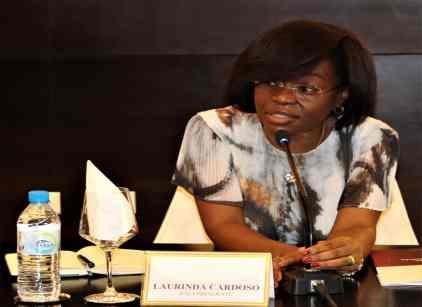
T h e s o l u t i o n i n v o l v e s improving public sanitation, investing in the construction a n d c o n s e r v a t i o n o f infrastructure - sanitary network, and in health education
16. What advice do you have forcurbingcrimeinAfrica?
Invest more in preventive measures, such as education, and only later in proximity p o l i c i n g , a s w e l l a s institutional cooperation in the field of defense and securitybodies.
17. We have requests for succession in some parts of Africa,whichYourExcellency advise.haveforus?
The advice is to study the realityofeach countryin order to analyze carefully where it will be feasible to advise the b e s t m e c h a n i s m s o f succession or transition to power
18. Do you believe that technology has helped to m a k e t h e w o r l d m o r e peaceful?
Unfortunately no, based on the idea that no system is completely secure, we can verify that it can be used for both harmful and beneficial purposes, as all systems b e c o m e d e p e n d e n t o n t e c h n o l o g i e s , w e a r e witnessing the birth and growth of cyber attacks that, although they seem to be more peaceful have the same damage as commonwars.
Technologyhas brought great advancement and ease of information, but it has not m a d e t h e w o r l d m o r e peaceful.
19. Most young people want to get rich overnight, with the r i s e o f c r i m e a n d 4 1 9 schemes, how can we solve thisproblem.
For this, young people must be trained to work, instilling in them that it is only based on work that their income level will increase. Young people must be aware that theycan only achieve their goals with work, Labor omnia vincitworkwins all.
20. Anything else you want to add?
Just to add, that investment continues in the mechanisms of dialogue and deepening of peace.
AFRICANPEACE 15
All You Need To Know About CAPEVERDE
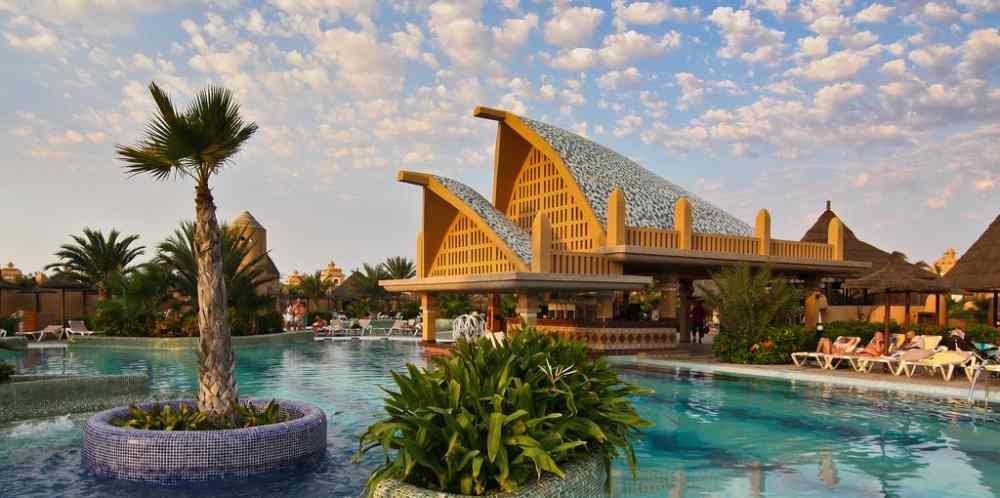
CapeVerde also known as Cabo Verde is an island nation on an archipelago of volcanic origin in the Atlantic Ocean lying off the northwestern coast of Africa, and measures about 600 km west of Senegal. Cape Verde shares maritime borders with G a m b i a , G u i n e a - B i s s a u , Mauritania, and Senegal.
LocationandGeography
Cape Verde islands is located 375 miles (600 kilometers) off the coast of Senegal The combined area of all the islands is 1,557 square miles (4,033 square kilometers), roughly the size of Rhode Island Cape V e r d e i s l a n d s v a r y i n geographical characteristics. It comprises of ten islands, which are further classified into two major groups: the Barlavento (windward: mountainous and arable) island which hosts islands of Santo Antão, São
Vicente, Santa Luzia, São Nicolau, Boa Vista, Sal, and the Sotavento (leeward: flat and desert-like) islands which comprises of Brava, Fogo, Maio and Santiago They are all of volcanic origin; Fogo, the only volcano still active, finally erupted in 1995.
Of these islands, only Santa Luzia is uninhabited. It presently serves as a naturalreserve.
History
Cape Verde is a republic located on archipelago in the North Atlantic Ocean, lying off the western coast of Africa. The previously uninhabited islands were discovered and colonized by the Portuguese in the fi f t e e n t h c e n t u r y ; t h e y subsequently became a trading center for African slaves. The C a p e V e r d e i s l a n d s experienced the longest period of European colonization of any
African nation. The Portuguese remained in direct control from 1456 until their independence in 1975 Most Cape Verdeans descended from both groups, and their culture reflects this. Today it is one of the most d e v e l o p e d d e m o c r a t i c countries inAfrica.
Demography
The 525,000 Cabo Verde's population according to the 2015 census descended from the primary and permanent inhabitants in the late 15thc e n t u r y w h i c h a r e t h e Portuguese colonists, West African slaves, and some Italian traders The archipelago was the first European settlement in the tropics. However, repeated droughts during the second half of the 20th century caused s i g n i fi c a nt h a rd s h i p a n d prompted heavy emigration With an estimated one million
AFRICANPEACE 16
Cape Verdeans living abroad, mainly in the United States, western Europe, and Africa. As a result, Cape Verde's expatriate population is greater than its domestic one Most Cape Verdeans have both African and Portuguese ancestors.
EthnicRelations
Cape Verde is a mestizo society Seventy-eight percent of the population is Creole, that is, of mixed African and European blood Of the remainder, 28 percent is black African, and 1 percent iswhite.
Cityandlanguage
The capital, Praia, is on the island of Santiago which is the greatest and largest in terms of vicinity and population and the first one to be settled. The spoken and official language is Portuguese. It is used in school, for official functions, and for all written communication The vernacular is a Creole Each island has its own distinctive Creole in which its dwellers take pride.
Religion
P re d o m i n a n t re l i g i o n i s Christianity, covering about 98% ofthe population.
O v e r 9 0 p e r c e n t o f t h e population is Roman Catholic. Protestant churches account for a small percentage of the Christian body, with the largest denomination being the Church of the Nazarene. The Nazarene church is also represented as are Seventh Day Adventists, Mormons, and Evangelical Christians. Protestant churches account for a small percentage of the Christian body, with the largest denomination being the Church of the Nazarene. Other groups include Muslims and Baha'i A number of African t r a d i t i o n a l re l i g i o n s a re practiced, especially in São T i a g o , a n d b l e n d s o m e traditional elements with other religions Though there is no
state religion, Catholic religious holidays are officiallyobserved.
Education
The government of Cape Verde provides free and universal education for all children within the age bracket of 6 to 12. Thus, Education is compulsory until age 11. Each island has a high school that goes through at l e a s t e l e v e n t h g r a d e Secondary school students pay an education tax on a sliding scale based on their family annualincome.
Higher Education. CapeVerde is s t i l l i n t h e p r o c e s s o f establishing an institution of higherlearning.
HealthCare
Cape Verde provides its citizens with free health care through small hospitals on each island. Facilities and resources are poor but are more advanced than many in West Africa. The best hospitals are in Praia and Mindelo, of which people are often referred for treatment I n fe c t i o u s a n d p a r a s i t i c diseases such as tuberculosis, pneumonia, bronchitis, and gastrointestinalailments are the m a j o r h e a l t h c o n c e r n s , r e s u l t i n g m a i n l y f r o m m a l n u t r i t i o n a n d p o o r sanitation The average life expectancy is 62 years, and the infant mortality rate is the lowest inWestAfrica.
Climate
A cold Atlantic current creates a dry atmosphere around the archipelago.Theweatheris cool and dryfrom DecembertoJune, with average temperatures of 70°F (21°C) at sea level; from July to November the weather gets warmer, with average temperatures of 81°F(27°C).
Rainfall is sparse and uneven in both islands: around 5 in (13 cm) annually in the northern islands and 12 in (30 cm) in the south.
The archipelago is subject to cyclicaldroughts.
Agriculture Cape Verde as a small nation
l a c k s r e s o u r c e s a n d experiences droughts and water shortages Agricultural practices are limited by lack of rain and are equallyrestricted to only four islands for most of the year, allowing only20 percent of the land to be used for crops. Unfortunately, Torrential rains and floods erode the usable land. Agriculture is practiced either in a limited way at high elevations or by intense terracing of the sharp-cut valleys. Beans and maize are the major crops. Others include b a n a n a s , ya m s , m a n i o c , pumpkins, sugarcane, coffee, and groundnuts (peanuts).
Despite the fact that about 70 percent of the people live in rural areas, the lack of rainfall forces the country to import most of its food and relies on international aid for survival d u r i n g d r o u g h t s W i t h petroleum products being i m p o r t e d , t h e i s l a n d s experience a hard hit by the significant hike in oilprices.
LandTenureandProperty
C a p e V e r d e a n s h a v e a characteristic communal approach towards property and f r e e l y b o r r o w a n d l e n d possessions Farm land is typically privately owned but many farming communities structure corporations to oversee its use and distribute p o o l e d d o l l a r s i n t h e improvement of such matters as corrals orplant nurseries.
CommercialActivities
The majorityofgoods produced in Cape Verde are agricultural. Most towns have a small market where fruits, vegetables, meat, and fish are sold.
Major Industries Agriculture accounts for one-third of the G N P , s e r v i c e s a n d transportation for one-half This is due, in part, to the growth of to u r i s m w h i c h h a s b e e n
AFRICANPEACE 17
enhanced by the construction of luxury hotels and resorts on several islands Construction comprises nearly one-fourth of t h e G N P a s t h e c o u n t r y continues to urbanize and the population expands.
Plantandanimallife
M o s t o f t h e i s l a n d s a re mountainous with elevations great enough to generate precipitation on the windward slopes and deep ravines; g r a s s e s a n d s o m e p i n e plantations are found in these relatively moist locations. The shrubs remaining in these areas are mostly thorny or bitter; s o m e a r e t o x i c S o m e xerophilous (desert-type) plants are found rooted in the brackish subsoil of Maio, Sal, and BoaVista.
The scarcity of water affects the number of land turtles in the archipelago, but two species of sea turtles lay their eggs on the sandy shores of the uninhabited islets It is a home for many geckos and lizards and several species of skinks, including a rare and endangered giant skink. There are a number of species of butterflies, but all the species are of African origin and non endemic.
PoliticalSystem Following independence in 1975, and a tentative interest in unification with Guinea-Bissau, a o n e - p a r t y sys te m wa s established and maintained until multi-party elections were held in 1990.
Cape Verde government is a republic with a president who is head of state and a prime m i n i s t e r w h o h e a d s t h e g ove r n m e n t b a s e d o n a c o n s t i t u t i o n t h a t w a s established in 1980. Elections are held for both the prime minister and president, who both govern for five-year terms. Members of the General
Assembly are elected as well, and the Supreme Tribunal of Justice is appointed Cabo V e r d e i s s i n c e 1 9 9 0 a parliamentary representative democratic republic, generally designed and framed in the Po r t u g u e s e sys te m T h e President and Chief of State, is elected by an actual majority vote via a keen two-round voting system.
Military
Cape Verde has a small military of eleven hundred active duty personnel. Of these, 91 percent are in the army and 9 percent are in the air force. Cape Verde spends roughly 1 percent of its GNPon its military.
NGO and otherassociation
A number of foreign non governmental organizations are operative Such as the U S Peace Corps sends volunteers to work in the education system and local government, German Organization Dywidag effective in ports development as well as Portuguese aid groups.
Literature
There is a small but growing b o d y o f C a p e V e r d e a n literature. Most of it is written in Portuguese, but a movement to boost a homogenized written shape of Creole has prompted various books to be published in this language as well. Written literature is strongly influenced by means of the way of life of oral storytelling which finds its roots in both Africa and Europe. A predominant theme in each literature and song is saudade , a s e n s e o f l o n g i n g o r homesickness, typically the end result of emigration and the ensuing separation offamilies.
Media Cape Verde had 60,935 main l i n e te l e p h o n e s w i t h a n additional 28,119 cellular phones in use throughout the country in 2002. In 1998, 11 FM
radio stations and 3 television s t a t i o n s b y 2 0 0 2 w e r e established. In 2002, there were about 100,000 radios and 1 5 , 0 0 0 t e l e v i s i o n s e t s nationwide Broadcasts are in Portuguese and Crioulo. One Internet Service Provider offered service for 8,000 users in 2001.
It is notable that in Cape Verde, t h e re i s n o g ove r n m e n t authorization to establish n e w s p a p e r , p r i n t e d publications or electronic media There are no daily newspapers. The governmentrun Novo Jornal-Cabo Verde (2002 circulation 5,000) is published twice per week Other periodicals include the weekly A Semana (5,000) and Boletim Informativo (1,500).
Marriageandfamily
Marriage Legal and church weddings are extraordinary in Cape Verde More often than not, a female will honestly sai di casa (leave her family's house) to pass in with her boyfriend. This is often occasioned through the lady turning into pregnant After four years of cohabitation, a relationship acquires the popularity of common-law marriage While polygamy is not legal, it is ordinary for guys (married or not) to be dozingwith numerous women at once.
Is Cape Verde a nice place to live?
Cape Verde is an island country in the Atlantic Ocean, more than 500km off the coast of Western Africa. Expatriates settling here can enjoy a pleasant way of life in a warm climate and fantastic beaches that satisfy a feeling. Praia, the capital, offers good housing options and some job opportunities It also hosts a s m a l l E n g l i s h - s p e a k i n g community
AFRICANPEACE 18
CLIMATICCHANGE
The advent of climatic change results from the change in the world temperatures due to human activities, that includes the use of oils, gas and coal for the homes, transportation and factories There are always varying changes in weather owing to instabilities in the atmosphere.
A continent saddled with so much defects in terms of development is the truth ofAfrica. Despite Africa's less contribution to the change in climate as their gas emissions is just about a tiny bit of global emissions, could be put at three percentofit.
However, Africa stands out to be the most vulnerable region in the world. This can be attributed to the prevailing low levels of socio e c o n o m i c g r o w t h i n t h e continent. Africa in general lacks the resources to afford the needed goods and services to help themselves and enable recovery from the changing climatic effects.
The extremity of the weather events due to climate change are so intense across the globe,
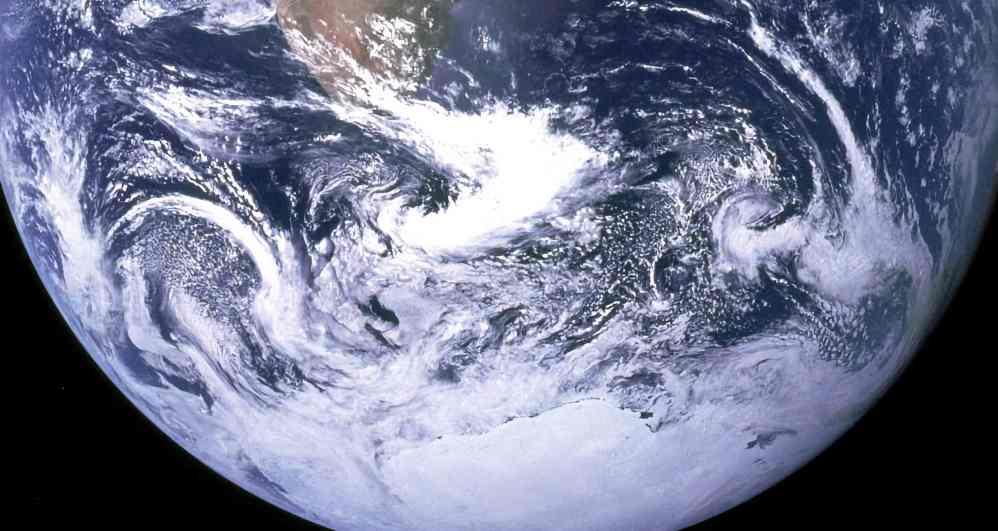
threatening the sustainability of lives and livelihood. With further global warmings some regions such as east Africa is prone to becoming inhabitable as it's currently experiencing it's fifth season of failed rains, which according to the United nations has put several millions of people at risk of severe hunger In other regions, extreme rainfall is causing life-threatening flooding.
I n i t i a l l y, p e o p l e l i v i n g i n developing countries most especially Africa as a whole. Are expected to suffer the climatic change effect the most as they have fewer resources to enable adaptation to climate change.
Some key notable measures of climate change in Africa ranges from,
Drought in east Africa which has r e s u l t e d i n p o p u l a t i o n displacement and high food prices. Worsened cases applies to ethopia, somalia and parts of Kenya.
Severe floods has affected, south Sudan, Nigeria, republic of congo, DRC and Burundi. Using Nigeria which is a part of
west Africa as a case study It is agreeable that there is a change in the climate, still there are many related, natural, and manmade factors that contribute to flooding. in Nigeria, it has been confirmed that the release of water from the Lagdo Dam in Northern Cameroon also contributes to the flooding Figures from the government as of September 2022 records that 1546 people have been injured, with 600 dead and over 100,000 person ' s displaced by the floods across the country Which has not o n l y b ro u g h t a b o u t fo o d insecurity due to the washing away of the farmlands, food insecurity has been an high increase. Not forgetting people losing their homes and source of livelihood. Putting not just individuals but the government In huge debts.
Climate related hazards is a major d r i ve r of c u r rent wave of displacement in Africa and it's influenced by chronic floods and droughts, extreme weather events and sea level rise influence within and across borders Whilst food insecurity trend is predicted to continue in
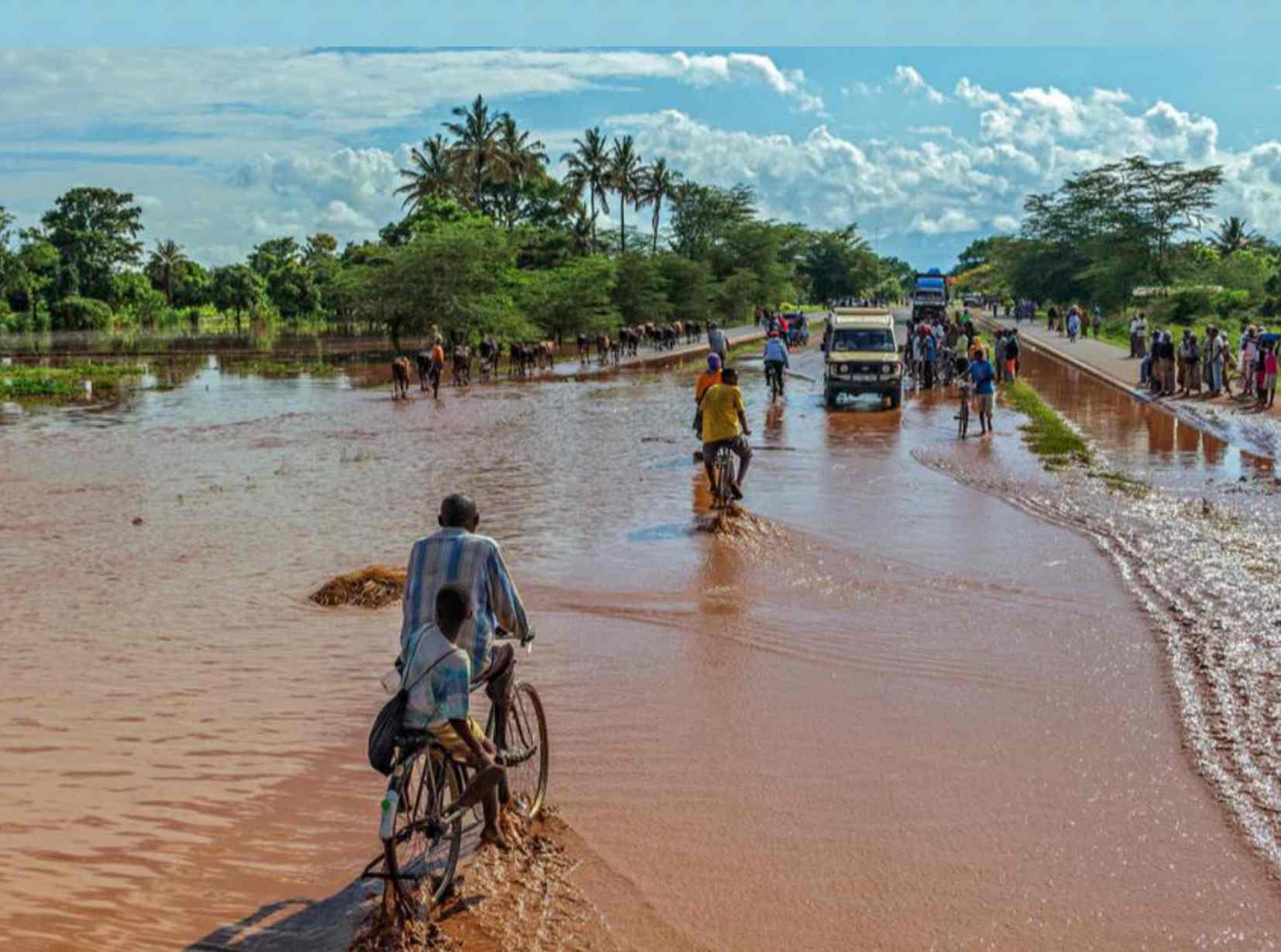
AFRICANPEACE 19
POSES A SIGNIFICANT THREAT TO ECONOMIC, SOCIAL AND ENVIRONMENTAL DEVELOPMENT IN AFRICA.
the future increasing the risk of high mortalityand malnutrition. The impact of climate change in Africa.
Eco n o m i c a l ly, a s re g a rd s agriculture which serves as the major source of livelihood for most Africans. every citizen of Africa are having a hard time trying to live through everyday life with the high Increase in food insecurity and scarcity Not to forget the barrenness occuring to the lands. Heavy reliance on rain for subsistence farming and low adoption of smart climate agricultural practices due to governments lackadaisical attitude contribute to the sector's high level of vulnerability O b s e r v e d a n d p r o j e c t e d disruptions in the water particles b e i n g re l e a s e d f ro m t h e atmosphere due to climate change are likely to shorten growing seasons and affect crop yield in many parts of Africa. The situation is compounded by poor reliability of, and access to, climate data and information to support adaptation actions.
Furthermore, the agriculture sector in Africa is dominated by small scale farmers who indulge in the use of crude agricultural equipment for farming This serves as a setback to the further rise of the ruined farms The agriculture sector is sensitive to climate changes, especially the yearly change of precipitation, temperature patterns, and e x t r e m e w e a t h e r e v e n t s (droughts and floods).
These climatic events are predicted to increase in the future and are expected to have significant consequences to the agriculture sector This would have a negative influence on food prices, food security, and landuse decisions, another is a set back to the economic status of many individuals. Leading to an increase in poverty
I n t e r m s o f s o c i a l a n d environmental development, living in affected Africa countries has become unbearable due to complications of health and displacement of people. Houses and farm lands are washed away,
increasing the number of homeless people With the persistence of the temperature changing , the lands would be undesirable to live inwhichwould result in more migration That might leave most countries empty of its people and most importantly a case of famine ensuing.
Judging by the happenings as of late and what the future holds, Africa's survival of climatic change is bleak. The change in climate poses a huge threat to e v e r y a s p e c t o f A f r i c a ' s development.
Which iswhyit is important forthe African leaders to work together towards to decipher ways in which the continent can adapt to the climatic change. The change in the climate has no probable time for it to be back to normal or any other form And it is why African leaders must be proactive in theirdecision making.
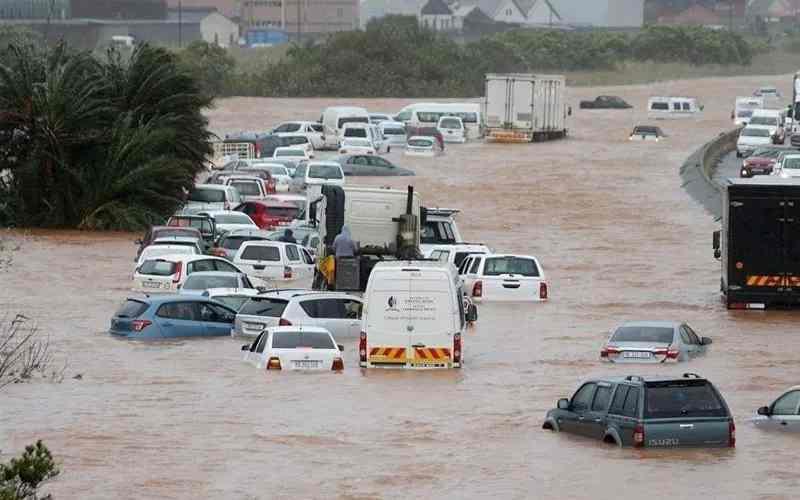
AFRICANPEACE 20
THE OF2022ONHALLMARK THEAFRICANCONTINENT
The year 2022 ushered in some unforgettable and lingering occurrences that has not only affected the world as a whole, but most e s p e c i a l l y t h e A f r i c a continent. Several situations that resulted into some African countries having setbacks and redundance In both human and economic development.
2022 ushered in some of the following;
• Intra-state conflict, and terrorism: the first half of 2022, Africa was faced with the biggest security issues that brought some countries to it's knees. The period between the 1st of January 2022 to 30th of June 2022
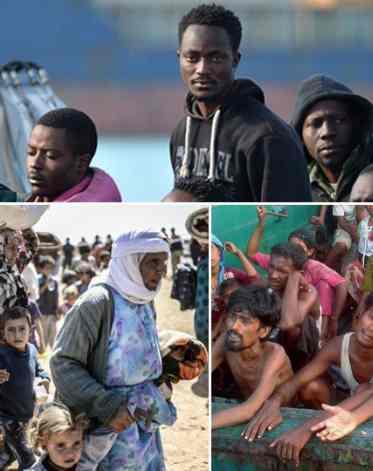
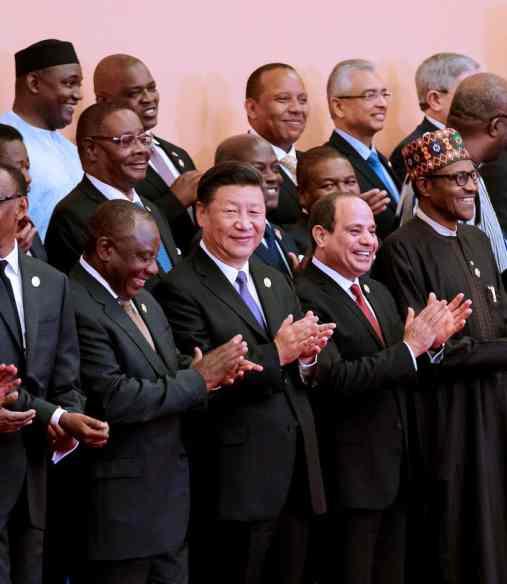
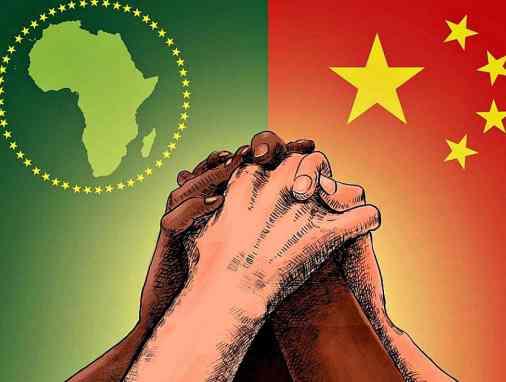
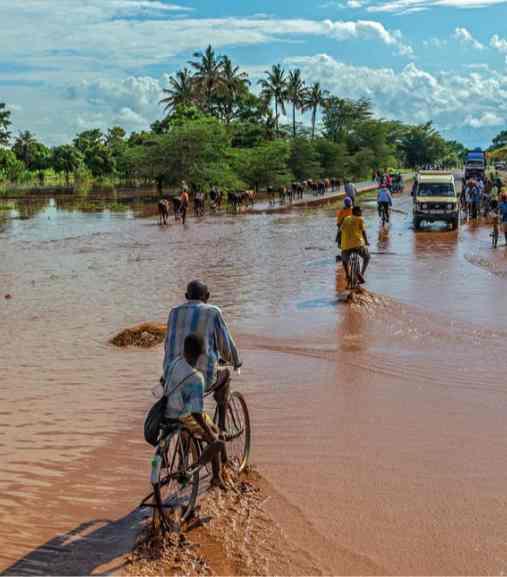
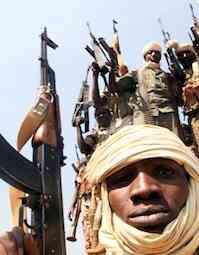
recorded 699 terrorist attacks that resulted in 5,412 deaths across Africa. In terms of monthly trend, the month of March recorded the highest number of attacks (21%), followed by June (19%). In comparison to the first half of 2021, the first half of 2022 witnessed rather a marginal decline in the number of terrorist attacks, but a sharp rise in the total number of deaths and the five countries most affected were; Nigeria, Mozambique, DRC, Burkina Faso, and Mali (in decreasing order). While 433 out of the 699 terrorist attacks were launched against Civilians, 2 3 5 t a r g e t e d Military/Security Forces, 19 a t t a c k s t a r g e t e d
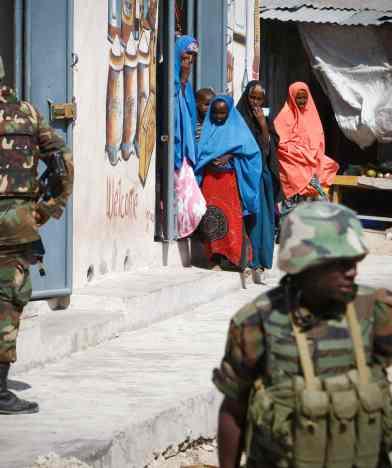
International Organizations, and 10 attacks targeted G o v e r n m e n t a l I n s t i t u t i o n s / O ffi c i a l s . Military/Security Forces
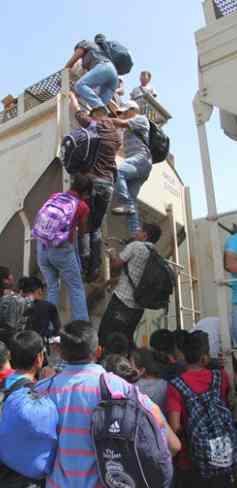
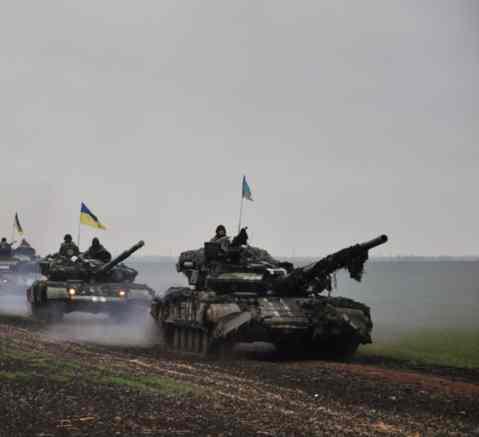
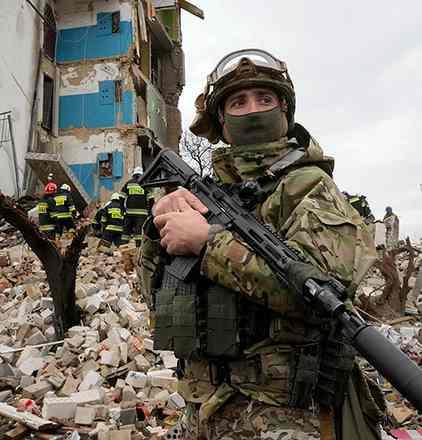
K i d n a p p i n g w a s t h e approach the terrorist groups used Small Arms and Light Weapons (SALWs) in 538 out of the 699 attacks and I m p r o v i s e d E x p l o s i v e Devices (IEDs) were used in 105 ofthe attacks.Atotalof51 cases of Kidnappings were recorded, in which 541 people were taken hostage with 168 captives being released. It has been noted that this attacks might be as a r e s u l t o f p o v e r t y , unemployment, and other underlying governance issues. Counter-terrorism
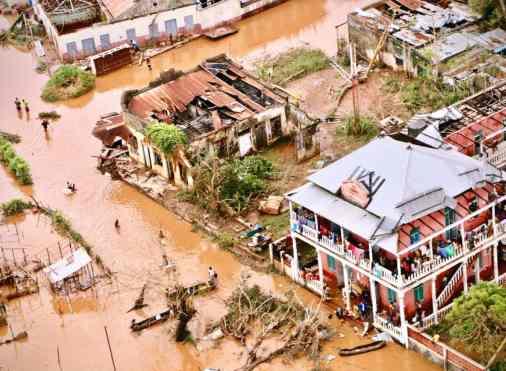
AFRICANPEACE 21
therefore also requires that governments address socioeconomic development issues, which seems to be universal in the setback cases in relation to the continent.
• Climate Change: the impact of climate change was felt in a doubled up attack that left a whole lot of people in African countries dead or homeless Global efforts to address climate change continue to fall short of what is required to keep t h e P a r i s A g r e e m e n t temperature goal well below 1 5 degrees Celsius data information gathered shows that, Drought and famine have killed 2,500 people in Uganda and affected eight million in Ethiopia this year. More than 600 people have died in Nigeria’s worst floods in a decade. This includes 76 peoplewhowere killedwhen a boat carrying flood victims capsized. Southern African c o u n t r i e s , i n c l u d i n g M a d a g a s c a r a n d Mozambique, were battered bysix severe storms thisyear, killing at least 890 people. Temperatures reached 48C in Tunisia in July, fanning the flames of extreme wildfires. Nearly two million people in Chad were affected by floods in August and October Even though n cases like Nigeria, negligence is another major reason for the disasters African countries have tried to adapt to climate change. However, that will require s k i l l s a n d c a p a c i t y development, green jobs and investment.
• Increased migration: Increasing forced migration
trends due to insecurity, also climate induced migration and the impact of COVID-19 on mobility remain key African migration issues to watch in 2022. All of these factors have in some ways exacerbate existing poor socio-economic conditions on the continent, and seem like a future potential jeopardise and delay in the planned expansion of the free movement of persons regime.
• China-Africa Relations: the relation between Africa and China experienced s o m e m o r e b o n d s t r e n g t h e n i n g . M o r e investments have been m a d e b y t h e C h i n e s e government n major African countries with adequate raw material, especially crude oil producing countries. Also, African countries debt went on the rise, resulting to some life long debt for some African countries These commitments point to strengthening China-Africa co-operation on existing key areas like investment and peace and security, while sharply increasing imports fromAfrica.
• Russia-Ukraine war: the war that began in early months of 2022 on the 24th of Fe b r u a r y h a s n o t j u s t affected the warring nations but Africa continent as well. As Africa heavily relies on import of food crop and oil from the warring parties. The Black Sea, where most of the trade between Russia and Africa takes place, has been heavily felt by African countries due to its closure. Which has resulted into an
unprecedented surge in prices of food crops and fuel. the Russo-Ukrainian War has resulted in extreme price shocks and a disruption of the supply chains of various commodities across Africa, ranging from wheat and sunflower oil to crude oil Furthermore, Russia is not only the second leading military power, but also the world’s third highest exporter of crude oil after the United States and Saudi Arabia. As a country with great political, economic leverage, it is not surprising that their invasion o f U k r a i n e h a s h a d implications on Africa’s fuel security. The disruption of oil p r i c e s h a s f u r t h e r exacerbated the cost of food production in Africa, with conflict-affected regions. Not to forget the return of Africa migrants to their various countries, leading to a n i n c r e a s e i n u n e m p l o y m e n t a n d dependents in some African countries.
The influx of 2022 in African countries, won't be forgotten in an hurry as the effects definitely will linger on to the next year It's with a hopeful heart we pray everything gets sortedwith time.
AFRICANPEACE 22
The Impact of the War in Ukraine in Africa
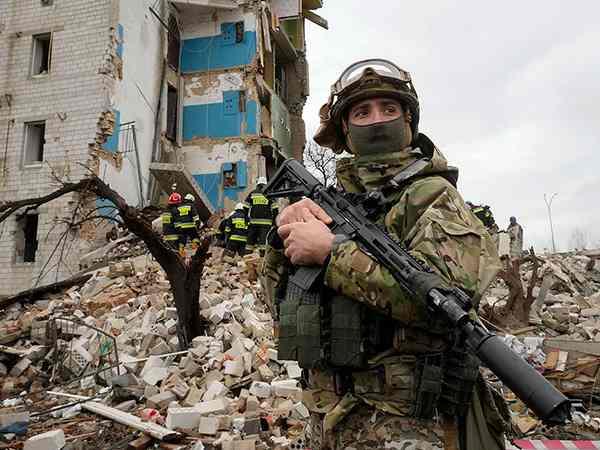
Still at the wake of the impact of COVID-19 pandemic on Africa, the Russia-Ukraine war exerts yet another major threat to the global economy with many African countries mostly affected. The ongoing war has not only caused severe supply disruptions, but a l s o u n c o v e r s t h e weaknesses of several political and economic structures inAfrica.
While Africa still dangles with the gap and shift emanating from the global pandemic, examples of which are deep economic regression, significant loss of productivity, inequalities, planetary pressures, as well as security challenges. It threatens to hinder development progress in African countries thereby forcing a setback on the 2030 Sustainable Development Goals and the aspirations of the African Union’sAgenda 2063.
Impact on food security and agriculture

The deepest impact of the Ukraine war in Africa is on the food crisis, which is already a grave situation in Africa. This has
consequently jeopardized Africa's major access to food More than one-third of African countries depend heavily on Russia and Ukraine for wheat imports.
Dr Joseph Glauber, a senior re s e a rc h fe l l o w w i t h t h e International Food Policy R e s e a rc h I n s t i t u te ( I F P R I ) , reminded the audience of the importance of affordability, even if availability is not the issue While the areas most affected by the blockage of Ukraine ports h a v e b e e n N o r t h A f r i c a n countries, he said, “Everyone is being affected by high prices. Some commodities are up 40%. Everyone is feeling those higher prices.”
Most vulnerable to the impacts of the war-induced price increases are countries for whom wheat is a major source of calories, that rely on imports to meet their foodsecurity needs, and that source a significant proportion of their
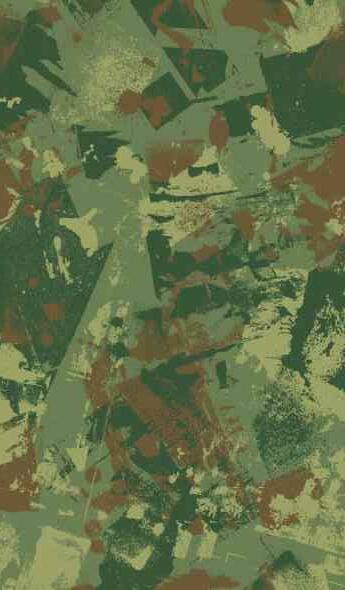
imports from Ukraine and Russia. According to the Food and Agriculture Organization of the UN (FAO), fifty countries rely on Russia and Ukraine for at least thirty percent of their wheat imports. In the Middle East and North Africa (MENA), these countries include Lebanon, Egypt, Libya, Oman, Saudi Arabia, Yemen, Tunisia, Iran, Jordan, and Morocco.
Nwafra also emphasized the toll of the pandemic, stating that the C OV I D -1 9 c r i s i s d ro p p e d agricultural productivity by 18% and increased hunger by more than 20%.
Thus, food insecurity is likely to have lasting and have a negative impact on all aspects of human development from income to health and education.
Dr Apollos Nwafra,vice president for policy and state capability for t h e A l l i a n c e f o r a G r e e n Revolution for Africa (AGRA), explained that 20 African countries import 90% of their wheat from Russia and Ukraine. He said that strategic food reserves are being depleted
AFRICANPEACE 23
quickly in many African countries and that he is “very worried” that the crisis will hit hard by the next planting season, particularly because farmers cannot afford fertilizer
“ Farmers are no longer using fertilizer because the price has doubled If farmers have no incentive to use fertilizer, we are likely to see very low yields next season, ” Nwafra said. “The worst has yet to come. ” Driven by low productivity from inadequate inputs and technology use, much of Africa’s agriculture is operating below capacity Meanwhile, sanctions imposed on Russia by Western states have not only led to a shortage of fertilizer, which has had a direct impact on the global food security through reduced agricultural production and outputs, thereby increasing food prices, but have also negatively affected the export of Russian fertilizers to other global markets, includingAfrica.
Additionally, the combination of environmental factors such as drought, extreme weather activities and the Ukraine War, would have an aggravated effect both on the production and supply of food, with a significant contribution to widespread malnutrition and famine in the region.
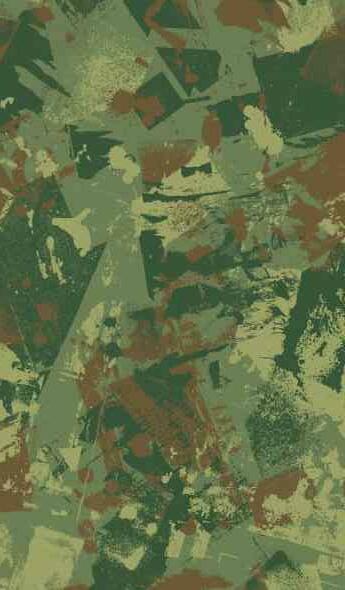
Furthermore, limited agroprocessing and inadequate storage and strategic reserves lead to a high level of postharvest loss and waste The
representatives of international organizations such as the World Bank, the International Monetary Fund (IWF), and the World Trade Organization (WTO), have r e c e n t l y c a l l e d o n t h e international community to support agricultural activities in other to put an end to this food crisis.
inflated even before the war due to higher demand fueled by the recovery of global economies from the COVID-19 pandemic and low investment in the oil and gas industry
With the recovery of demand following the easing of pandemic restrictions, the imbalance between supply and demand was expected to grow to 2% in 2022.
Impact on oiland gas
Russia's invasion of Ukraine has had rippling humanitarian and economic impacts across the globe, particularly on the energy industry African countries being the hardest hit. The imperative for oil and gas companies, working in concert with governments, is to mitigate the potential disruption of supplies from Russia. The crisis pushed the price of a barrel of Brent oil above the $100 dollar mark forthe first time since 2014.
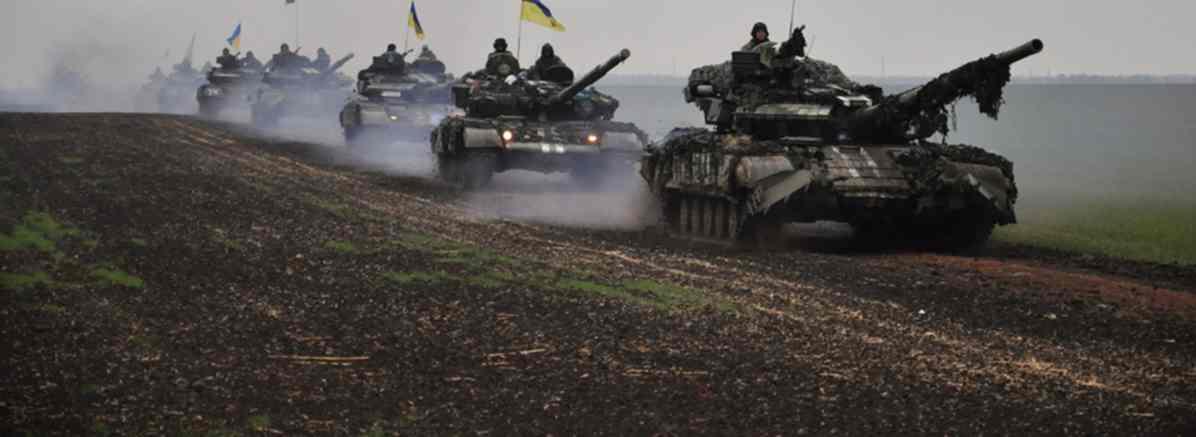
Over the longer term, the industry needs to strengthen its resilience and relevance in fast-changing energyreserves.
The energy industry, like all others, is now operating in an uncertain environment.
Oil prices were rising globally even prior to the full escalation of the war However, when Russia attacked Ukraine, the price of crude oil in the global market skyrocketed from around $76 per barrel at the start of January 2022 to over $110 per barrel on 4 March 2022.
The price of crude oilwas already
Impact in Government Revenues
A combination of the pandemic and the war in Ukraine has reduced trade and taxation revenues of governments across Africa, even as countries are being forced to spend on social safety nets. “Countries are being asked to spend more with less coming in,” said Eziakonwa, adding that “fiscal and monetary responses of sub-Saharan African countries increased public indebtedness across Africa.” The impact of the war could push Africa into serious debt distress, making countries less likely to meet their debt obligations.
Reduced access to electricity and cooking fuel would make more households mu poor, while shrinking budgets may trigger households to dispose of their assets, thus reducing their ability to cushion themselves from future shocks. In all, these indirect effects would constrain overall economic activities and could triggersocialtensions and unrest.
AFRICANPEACE 24
NIGERIA WORST FLOODI IN DECADES
Climate Change over the years has caused a whole lot of natural disasters and this h a s r e s u l t e d t o environmental damages which include and not limited to drought and flooding, and this has been as a result of human activities polluting the air
Due to the lack of adequate measures put in place, some areas are prone to its effect than the other.
Over the years, Nigeria has been experiencing some of the effects of climate change which comes in form of downpour Recurrent flood in different parts of Nigeria
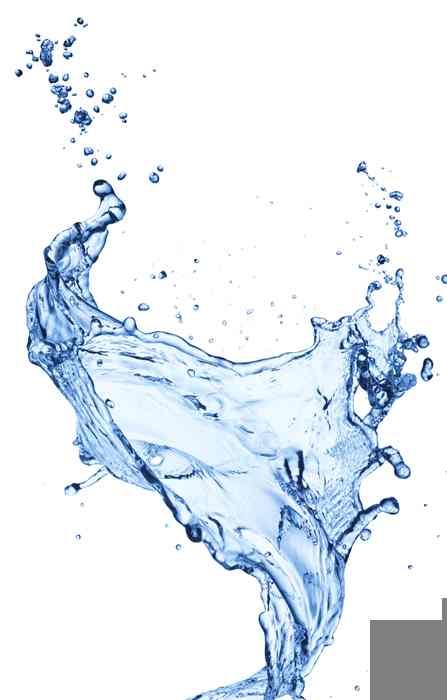
h a d a n d h a s l e d t o c o n s i d e r a b l e s o c i oeconomic damage, injury and loss oflives.
In 2012, Nigeria experienced a flood worse than the early years It killed 363 people and displaced over 2.1 million people as of 5 November 2012 According to the N a t i o n a l E m e r g e n c y Management Agency, 30 of Nigeria's 36 states were affected bythe floods.
At the end of August and the beginning of September in 2012, heavy rains pelted the lands of the country which led to serious floods in most parts ofthe country.
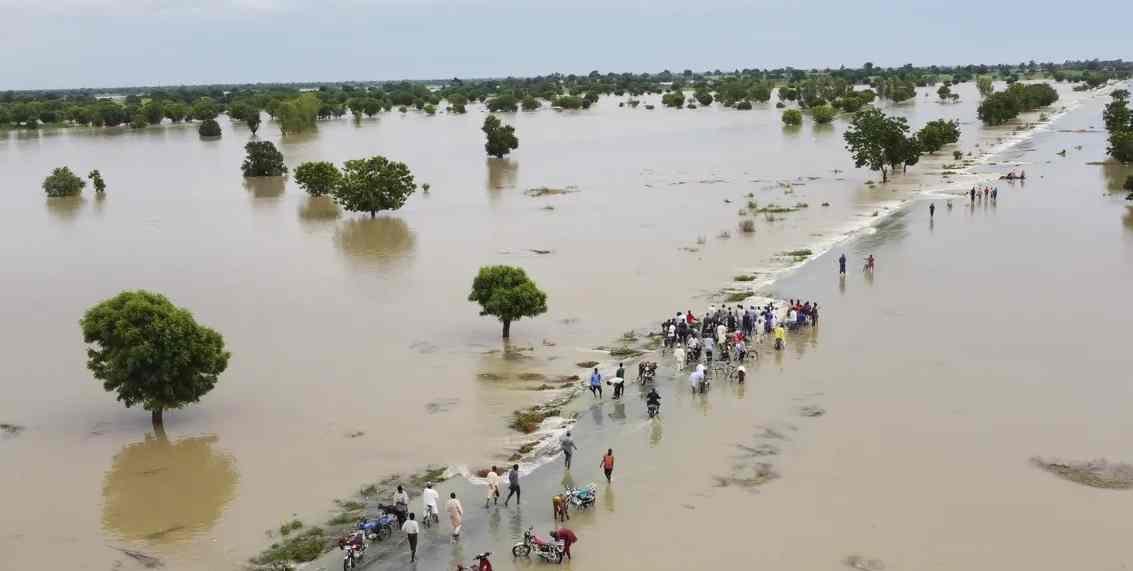
t h e w a t e r r e s e r v o i r s overflowed which resulted in the authorities giving in to opening the dams to relive the pressure in both Nigeria and neighbouring Cameroon and Niger, which not only leading to destroyed river banks and infrastructure, but loss of property, livestock and flash floods in many areas.
United Nations Office for the C o o r d i n a t i o n o f Humanitarian Affairs, OCHA, also reported that by the end of october more than 7.7
AFRICANPEACE 25
million people had been affected by the floods, and more than 2.1 had registered as IDPs. 363 people were reported dead, almost 600,000 houses had been damaged or destroyed. Out of Nigeria's 36 states, 32 have been affected by the floods (OCHA, 15 Nov 2012). It was considered one of the worst flood occurrence in nigeria. In January 2013, the rivers were back at their usual water levels and further flooding was not expected in the short term.
Subsequently, the following years some states weren’t e x e m p t e d f r o m t h e aftermaths ofheavyrains
B e l o w w e re t h e fl o o d occurrence as theyearswent past in ascending order:
2021
In August, a flood happened in Adamawa state, affecting 79 communities in 16 local government areas. Reports says that 7 people lost their lives killed 7 and about 74,713 others displaced became h o m e l e s s ; W h i l e 1 5 0 farmlands and about 66 houses were destroyed according to Adamawa state Emergency Management Agency(ADSEMA).
2020
In 2020, 68 people died and 1 2 9 , 0 0 0 p e o p l e w e r e displaced due to the 2020 flood incidences This is according to the NEMA D i r e c t o r - G e n e r a l , Muhammadu Muhammed. 2017 & 2016
The 2017 Benue State flooding took place in
September 2017 in Central Nigeria. It displaced 100,000 p e o p l e , a n d d a m a g e d around 2,000 homes. About 250,000 Nigerians were affected by the flooding in 2016, while 92,000 were affected in 2017
From the data, it appears that Nigeria typically experiences seasonal flooding, however the floods were worst in 2022 compared to such fatal experience since 2012.
The 2022 Nigeria floods affected many parts of the country and caused a whole lot of damage to individuals and communities at large.
F r o m t h e F e d e r a l Government data, the floods had displaced over1.4 million people and killed over 603 people and injuring more than 2,400 persons About 82,035 houses had been damaged, and 332,327 hectares of land had also been affected.
The impact of the 2022 flooding has affected 33 of Nigeria's 36 states.
Report has it that, over two million people have been affected bythe flooding.
As of October, over 600 people have been killed and over2,400 have been injured.
A c h o l e ra o u t b re a k i n northeastern part of Nigeria w a s a t t r i b u t e d t o t h e contamination of water sources by flooding and has been responsible for the deaths ofat least 64 people.
According to the United N a t i o n s ' s F o o d a n d Agriculture Organization and World Food Programme, Nigeria faces a high risk of catastrophic hunger levels. supplies of fuel have been disrupted by the floods. During the crisis, prices of food had been inflated by 23%.
The following were regarded as the causes of the 2022 flooding in Nigeria:
1. The Nigerian government has blamed the floods of 2022 on unusually heavy rains and climate change United Nations Humanitarian
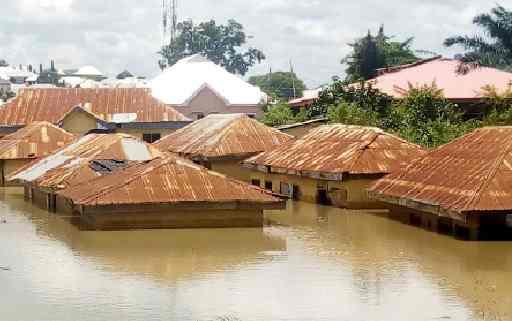
AFRICANPEACE 26
Coordinator for Nigeria Matthias Schmale said that the flooding could be largely explained byclimate change. Climate change in Nigeria has been responsible for fl o o d i n g , d r o u g h t s , decreased air quality and the loss of habitat. As well as the release of water from the Lagdo Dam in neighbouring Cameroon, which began on 13 September
Excess water released from the dam cascades down R i v e r B e n u e a n d i t s t r i b u t a r i e s , fl o o d i n g communities in the states of Kogi, Benue as well as other states in the northeast. When Lagdo Dam was constructed i n 1 9 8 2 , t h e re w a s a n agreement by Nigerian authorities to build a second, twin dam in Adamawa State to contain the overflows. Known as the Dasin Hausa Dam project, it was to be situated in Dasin Village of the Fufore local government area, but was never built by the Nigerian government.
2 The problem expanded f u r t h e r d u e t o t h e indiscriminate construction on natural flood plains and storm water paths together with poor drainage systems in many residential areas clog channels with waste Minimal enforcement of environmentallaws.
Flooding is a recurring problem in most parts of Nigeria, and in cities, rapid urban growth and poor planning make the issue worse.
As much as flooding seem uncontrollable, there are
measures that can be put in place to controlit.
African Peace Magazine as part of the suggestive ways the federal government can address the flooding and minimize it's effect is to carryout the combination of hard infrastructural solutions a n d e c o sys te m - b a s e d a d a p t a t i o n s h o u l d b e pursued as stated by the N a t i o n a l E m e r g e n c y Management Agency, NEMA such as the construction of dams and reservoirs to hold excess water, riverbank protection, construction of l e ve e s a n d s p i l l w a y s , a p p r o p r i a t e d r a i n a g e systems and storm water management regimes, and dredging of some of the major rivers in Nigeria. Examples of ecosystembased solutions could include reforestation in important river catchments, planting native vegetation on flood plains that have been claimed for cropping, and creating riparian buffers throughvegetation.
A major particular interest is also the completion of the D a s i n H a u s a D a m i n A d a m a w a S t a t e a n d p r i o r i t i s a t i o n o f a n appropriate storm-water management regime.
Each of these options would need to be carefully studied and implemented.
N i g e r i a a l s o n e e d s to strengthen its regulatory, governance and institutional capacity in the area of spatial p l a n n i n g , r e g i o n a l c o o p e r a t i o n o n t r a n s b o u n d a r y w a t e r
resources management, emergency response time, fl o o d p r e d i c t i o n , a n d e n f o r c e m e n t o f environmental and spatial planning laws.
Also, building on flood plains must be avoided at all costs. A w a r e n e s s r a i s i n g , education and disaster risk c o m m u n i c a t i o n a n d messaging need to be strengthened to minimize flooding effects in Nigeria.
The Nigerian Hydrological S e r v i c e s A g e n c y, t h e Nigerian Meteorological Agency and the National Emergency Management Agency are all important i n s t i t u t i o n s t h a t n e e d resources and capacity to avert flooding in Nigeria.
It's in good faith that every N i g e r i a n h o p e s t h i s measures would be taken, to avoid what might seem like a flooding occurrence worse than theyear2022.
AFRICANPEACE 27
PEACE MISSION
The former Nigerian President who is currently the African Union High Representative for the Horn of Africa Mr Olusegun Obasanjo, has embarked on another peace mission in Ethiopia with the endorsement of the United Nations Security Council The mandate aims to restore peace in a conflict between Ethiopia and Tigray
Mr Obasanjo has been involved in numerous international mediation efforts, including in Angola, Burundi, Mozambique, Namibia and South Africa In 2008, he was appointed the UN Secretary-General’s Special Envoyon the Great Lakes region.
For two years, the government of Ethiopia and forces in its northern Tigray region have been at loggerheads, throwing the country into political and economic instability
The war was fought primarily in the Tigray Region of Ethiopia between the Ethiopian federal government and Eritrea and the Tigray People's Liberation Front (TPLF). Which resulted in the death of over 600,000 people,
with the cost of reconstruction and rehabilitation of private and public properties estimated at about $25 billion.
While the government of Prime Minister Abiy Ahmed and the leadership of the Tigray People’s Liberation Front, TPLF, failed to come to a common ground. And f o l l o w i n g s o m e y e a r s o f increased tensions and hostilities between the TPLF and the governments of Ethiopia and Eritrea, fighting began between the two regions as Tigrayan security forces attacked from the N o r t h e r n C o m m a n d headquarters of the Ethiopian National Defense Force (ENDF), alongside a number of other bases in Tigray The ENDF counterattacked from the south, while Eritrean Defence Forces (EDF) began launching attacks from the north which was described by the Prime Minister Abiy Ahmed as "law enforcement operations.
On the 26 of August 2021, H.E. Olusegun Obasanjo, former President of the Federal Republic of Nigeria was appointed As High
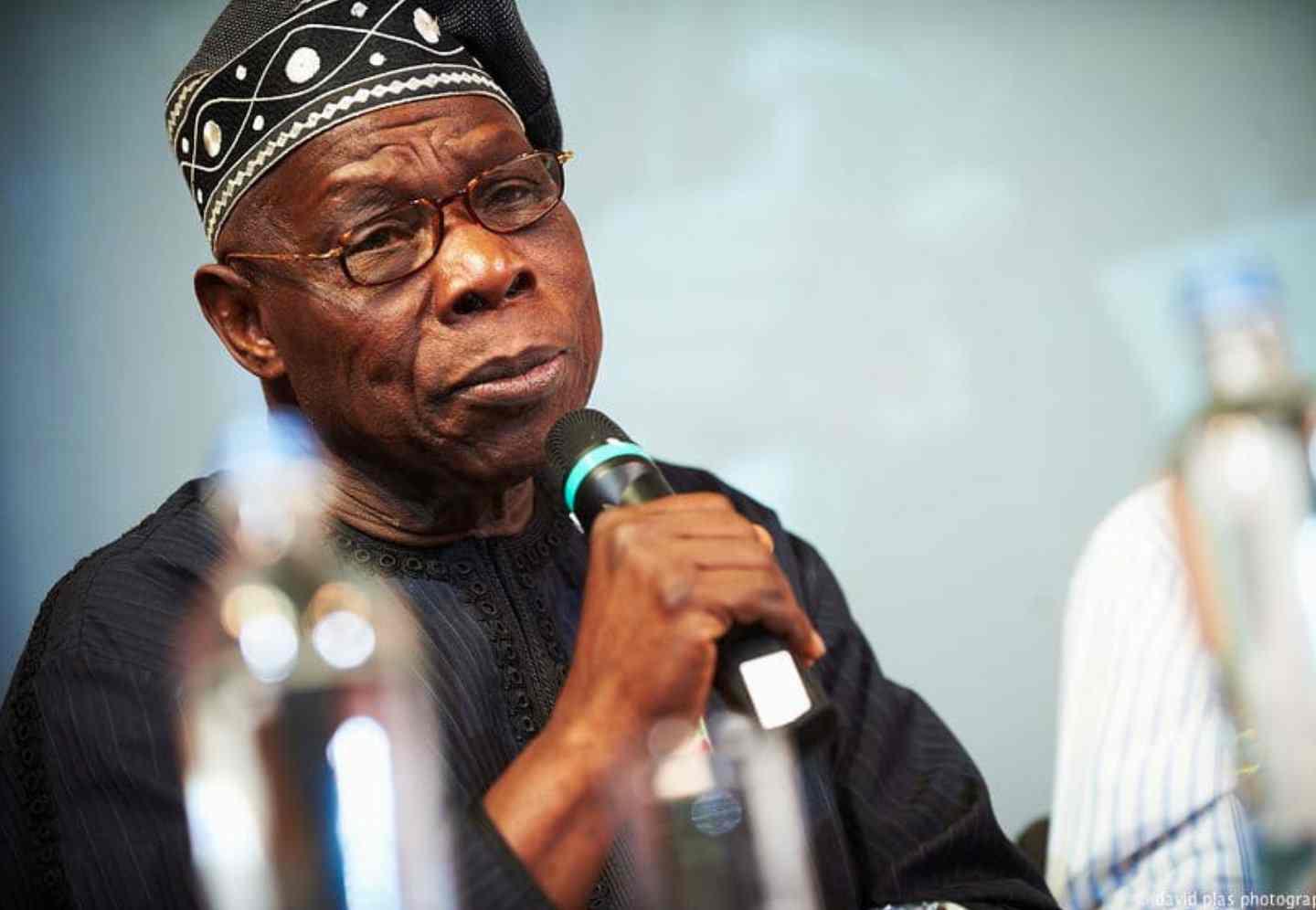
In his statement on the prospects for Peace in Ethiopia, "13 November 2021, I note the recent statement by the Federal Government of Ethiopia through its Ministry of Foreign Affairs on 11th November 2021 highlighting the conditions and order of preference of the government with respect to a peaceful resolution of the ongoing conflict w i t h t h e T i g r a y P e o p l e ’ s Liberation Front (TPLF).
In my recent engagements in Mekelle with the leadership of the TPLF, their prioritized co n d i t i o n s we re s i m i l a r ly presented to me.
I n a d d i t i o n , I h a v e h a d encouraging meetings with the leaders of Oromia and Amhara regions while I have scheduled to meet with the leadership of Afar region upon myreturn to Ethiopia.
I have also met with leaders across the region including the
AFRICANPEACE 28
Representative for the Horn of Africa region by The Chairperson of the Commission of the African U n i o n , H E M o u s s a Fa k i Mahamat.
Presidents of Kenya, Uganda, Djibouti, South Sudan, Somalia and the leadership ofSudan.
I am optimistic that common ground towards a peaceful resolution of the conflict can be secured. The interlocutors I have engaged on all sides have stated their wish for peace, security, and stability in Ethiopia The main point of difference between the actors is in the means by which theyseek to achieve this essential objective.
War represents a failure of politics. Thus dialogue remains the only reliable and sustainable avenue to peace There is no military solution to the conflict and battlefield victory cannot guarantee political stability in Ethiopia.
I, therefore, appeal to the leadership of all sides to halt their military offensives. This will allow an opportunity for dialogue to continue to progress. Such talks cannot deliver in an environment ofescalated militaryhostilities.
I further call on all people of goodwilland leaders inAfrica and the international community to c o n t i n u e t o s u p p o r t o u r mediation efforts and to refrain from actions or rhetoric that will, wittingly or unwittingly, worsen the conflict.
I, too, remain dedicated to the cause of peace, and we will continue to work towards this goal, without which human security and development cannot be achieved.
However, following efforts by the ex-Nigerian leader, the parties in the conflict in Ethiopia’s northern region of Tigray have now agreed on a “permanent cessation of hostilities’’ just more than a week after formal peace talks began in South Africa. The development, according to the US State Department spokesperson Ned Price, “represents an important s t e p t ow a rd s p e a c e . ” “ We applaud the parties in their
c o m m i t m e n t t o p e a c e i n reaching this agreement The U n i t e d S t a t e s r e m a i n s committed to supporting this African Union-led process and peace and to partnering to advance peace in northern Ethiopia.”
Negotiations began on October 2 5 i n J o h a n n e s b u r g a n d concluded after 10 days.The deal calls for the disarming ofTigrayan forces, with both parties agreeing to “permanently silence the guns. ” The parties agreed to “stop all forms of conflicts and hostile propaganda,” calling Ethiopians within the country and abroad to support efforts forlasting peace.
On Saturday, The African Union said that the mandate of the Horn of Africa envoy Olusegun Obasanjo, in restoring peace in Ethiopia after a resurgence of fighting has been extended.
"I reiterated my full confidence in h i m a n d e n c o u r a g e d h i s continued engagementwith both parties and international actors to w o r k t o w a rd s p e a c e a n d reconciliation in Ethiopia and the region," AU Commission chief Moussa Faki Mahamat said on Twitter after meeting with Obasanjo.
Prime Minister Abiy Ahmed's government has insisted that any talks with the rebels must be mediated by the African Union, which is headquartered in Addis Ababa.
But theTigrayPeople's Liberation Front (TPLF) has in turn protested at the "proximity" of Obasanjo, a former Nigerian president, to the Ethiopian leader
Faki also on Saturday said he met the new US envoy to the Horn of Africa, Mike Hammer, and that they "agreed on the need for international partners to support the AU-led process with the Parties to end the conflict in Ethiopia"
Fighting has erupted on several
fronts in northern Ethiopia, t r i g g e r i n g a l a r m i n t h e international community and leading to a halt in aid deliveries to the strickenTigrayregion.
T P L F l e a d e r D e b r e t s i o n Gebremichael earlier this week proposed a conditional truce in a letter sent to UN Secretary General Antonio Guterres and called for the creation of a "credible" panel of international mediators.
He said the truce would depend on four conditions, including "unfettered humanitarian access " and the restoration of essential services in Tigray, which is suffering from severe food shortages and a lack of basic services including electricity, communicationsand banking.
Debretsion also called for the withdrawalofEritrean forces from across Ethiopia, and for troops to pull out of western Tigray, a disputed region claimed by Amharas andTigrayans.
Meanwhile, the Ethiopian government is yet to publicly commenton theTPLFproposal.
T h e a g r e e m e n t o n t h e “ p e r m a n e n t c e s s a t i o n o f hostilities” was reached at a meeting in SouthAfrica, following a round of peace talks convened bytheAfrican Union (AU).
AFRICANPEACE 29
African Peace Award 2022
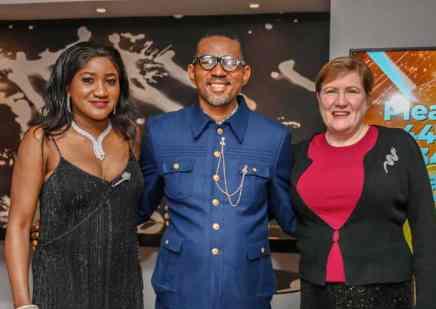
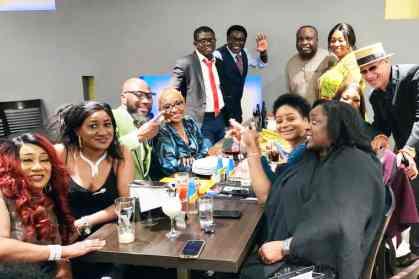
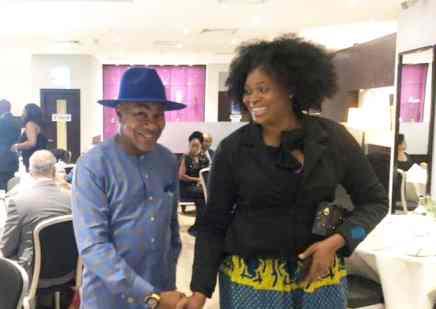
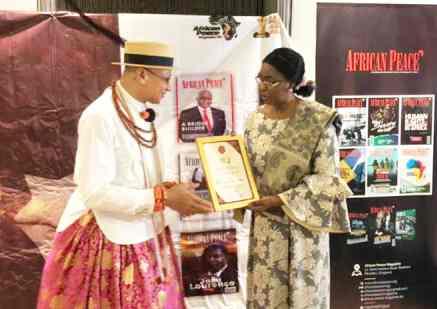
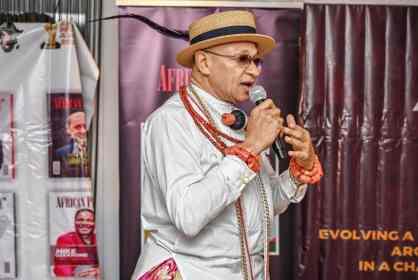
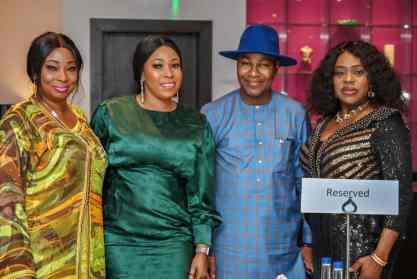
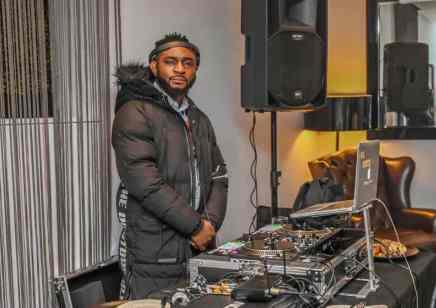


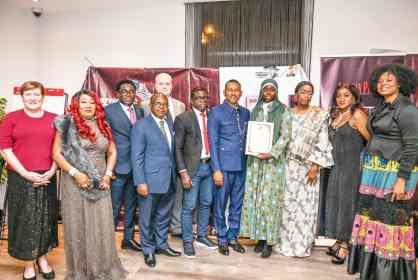
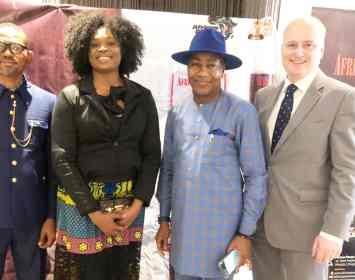

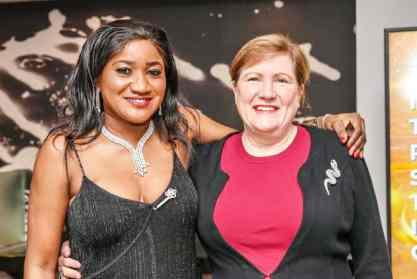
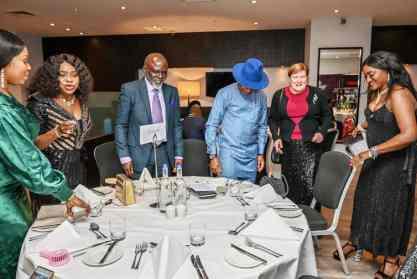
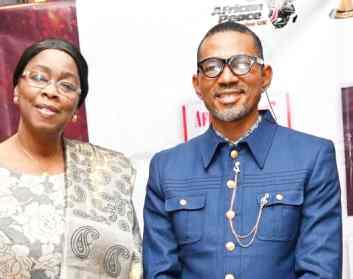
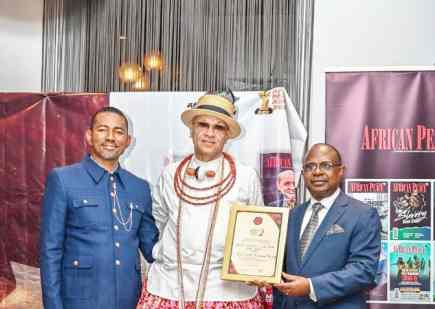
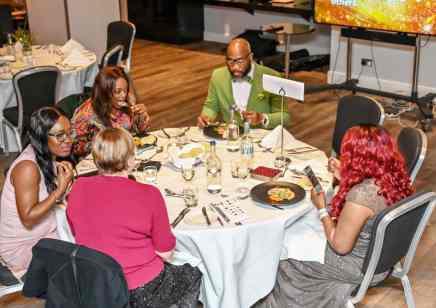
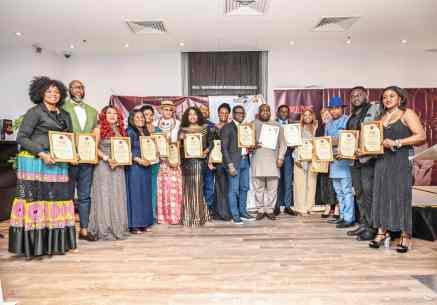
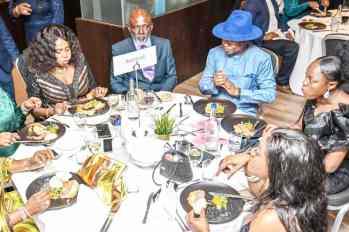
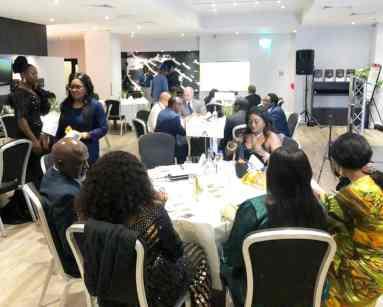
AFRICANPEACE 30
African Peace Magazine UK ,
Presidential Election Monitoring Equitorial Guinea 2022
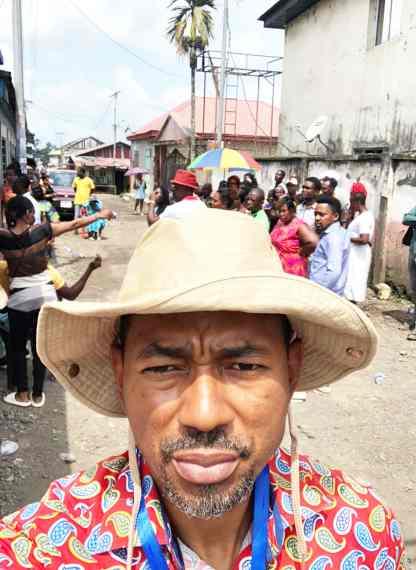
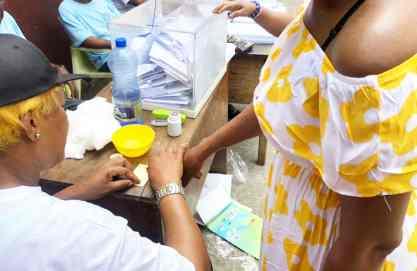
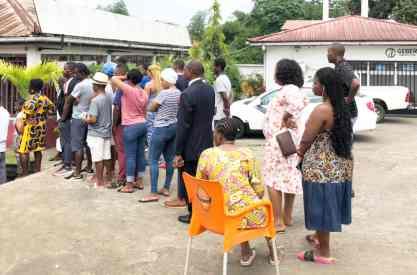
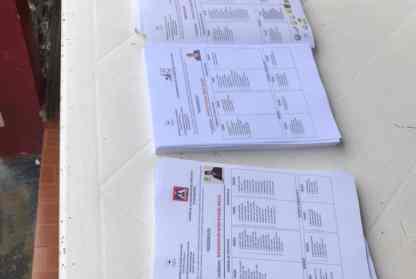
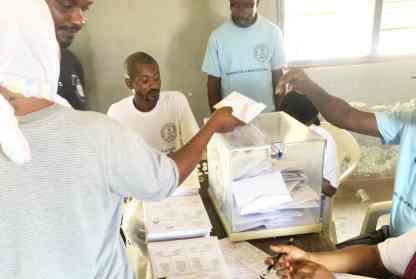
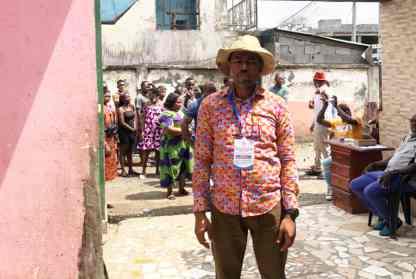
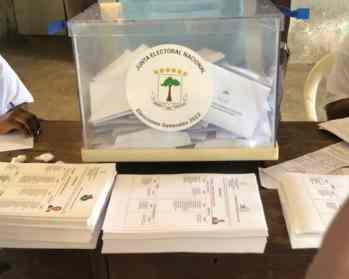
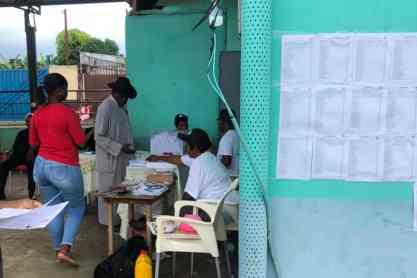
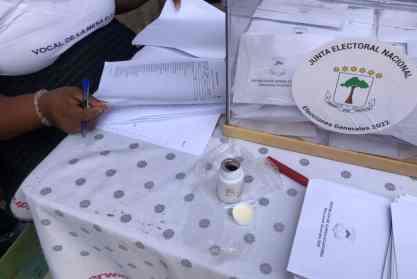
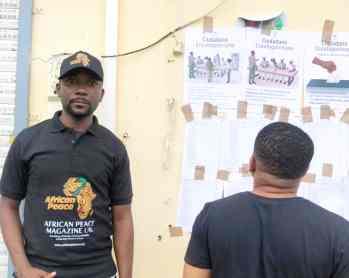
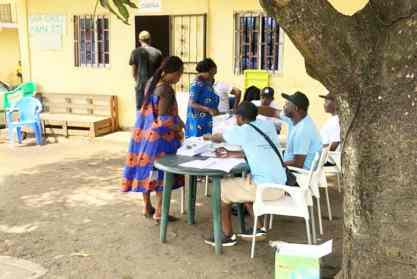
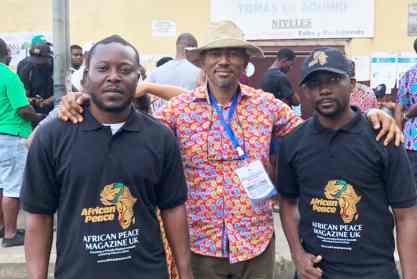
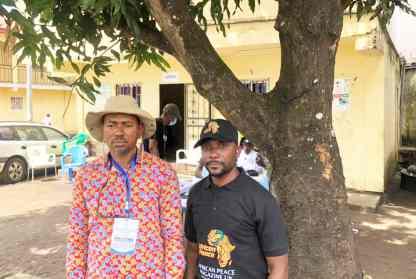
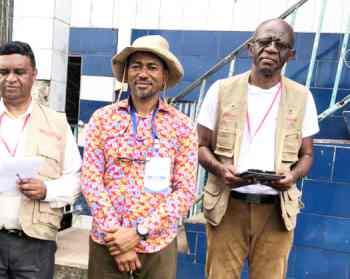
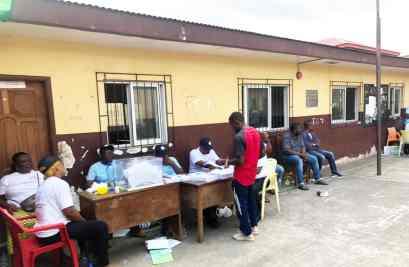
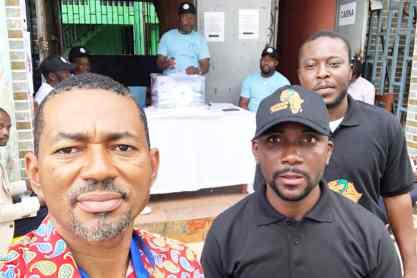
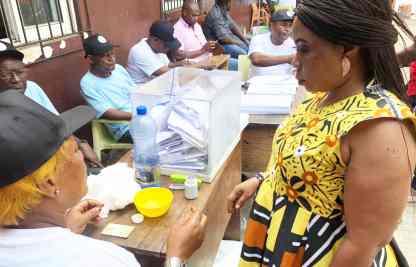
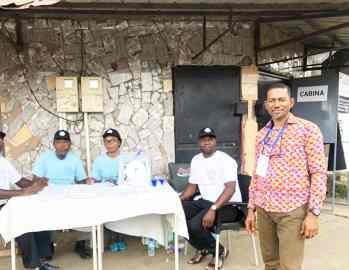

AFRICANPEACE 31
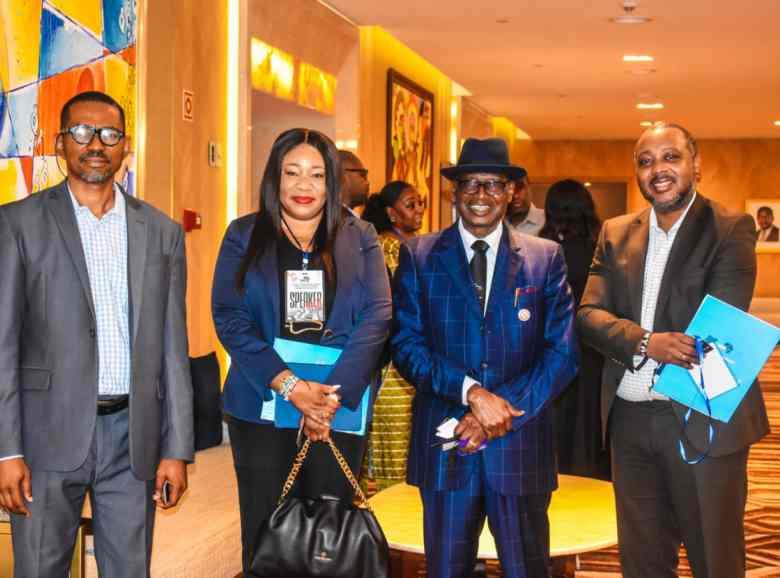
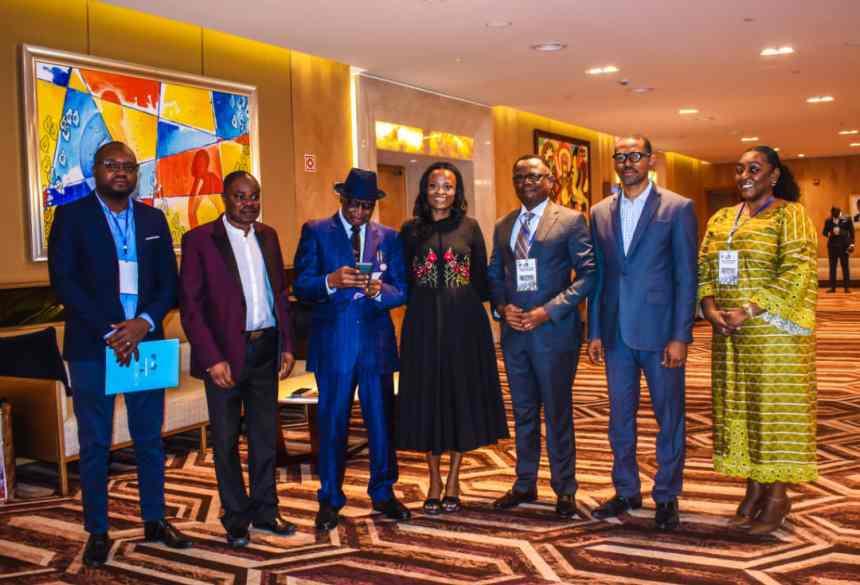
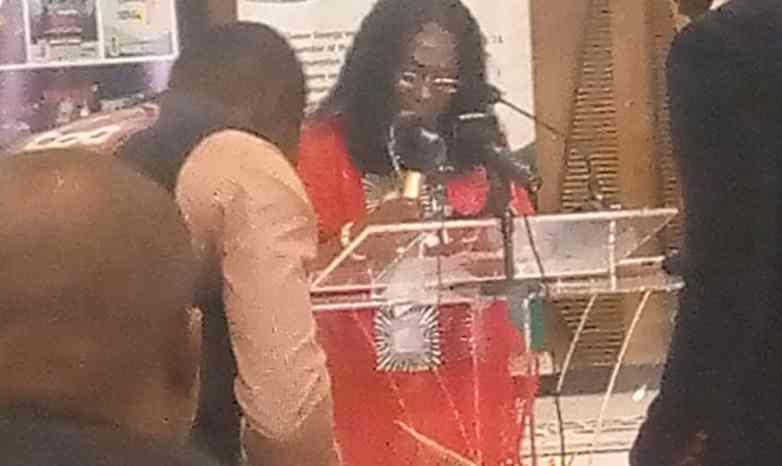
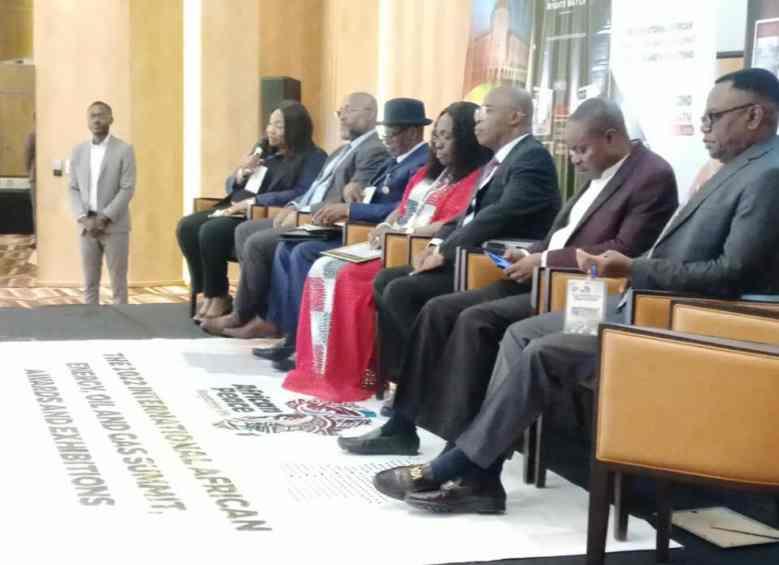
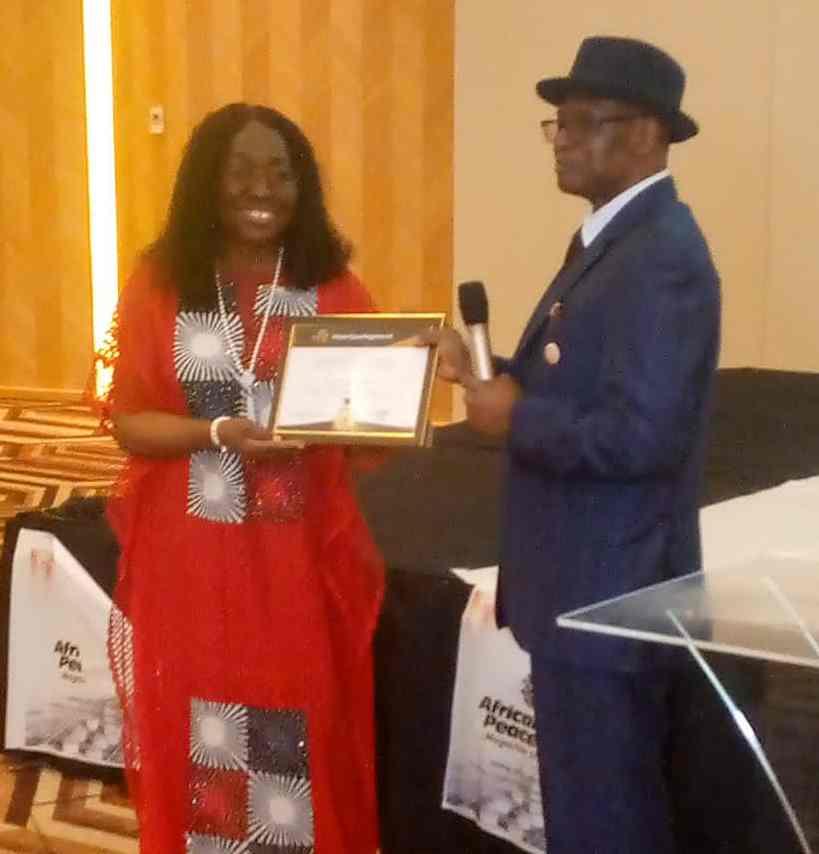
AFRICANPEACE 32
African Peace Magazine UK, international Energy, oil and Gas Summit Angola 2022
Election Monitoring of the Election of Angola
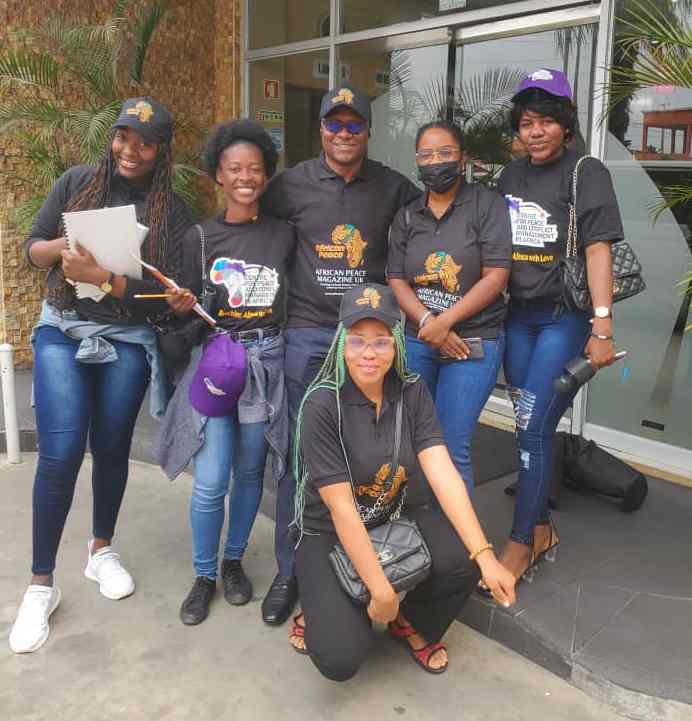

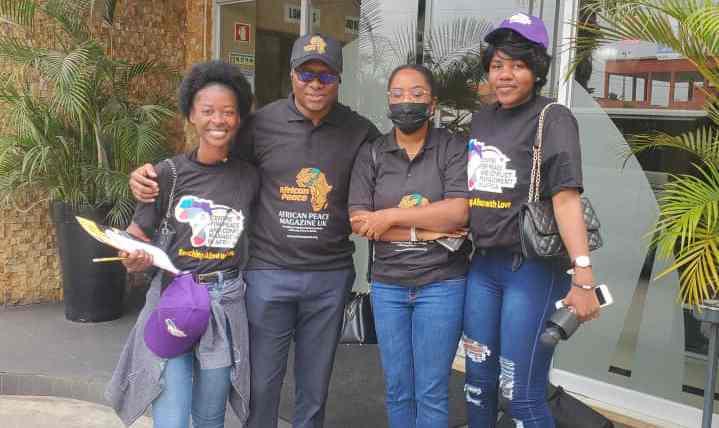
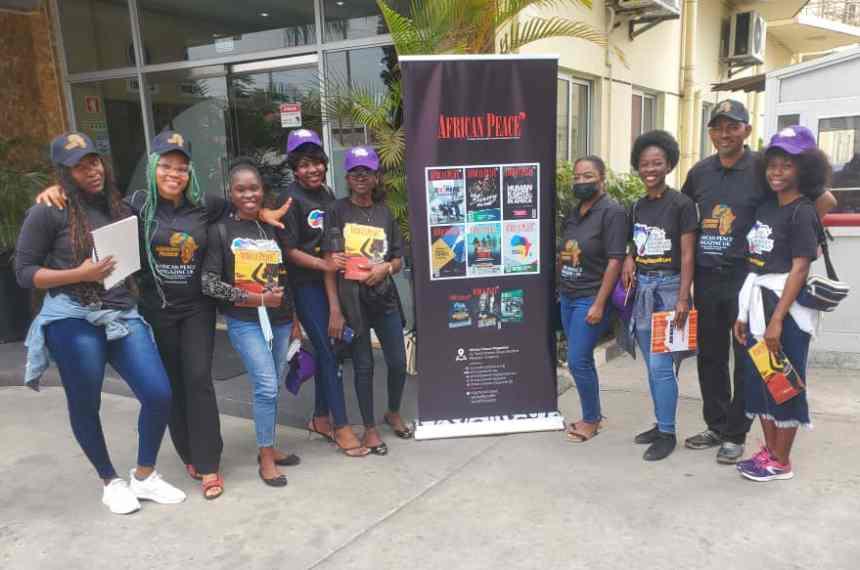
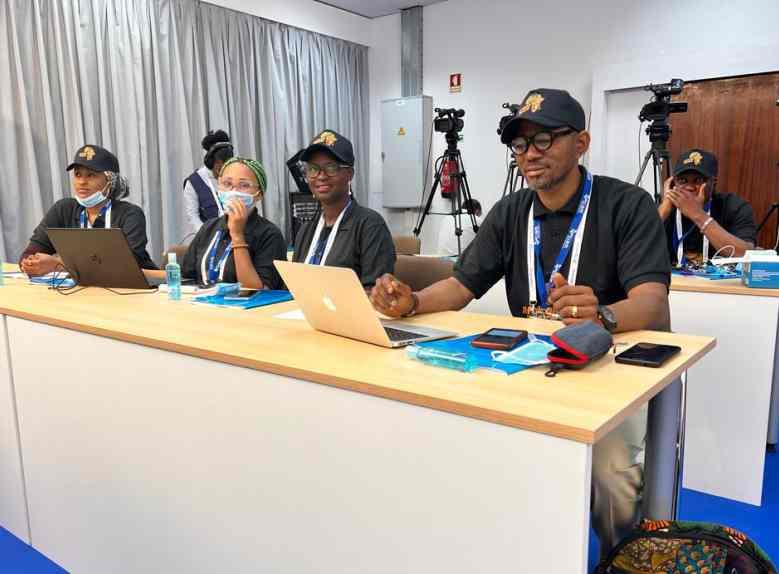
AFRICANPEACE 33
Exclusive Interview with the President of the Angolan Constitutional Court
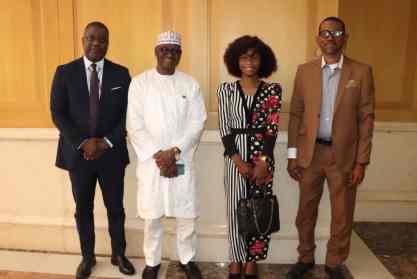
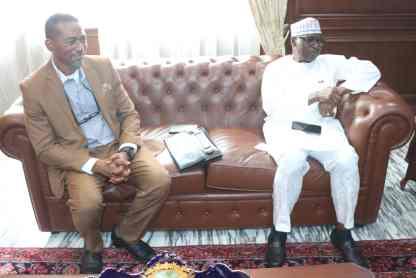
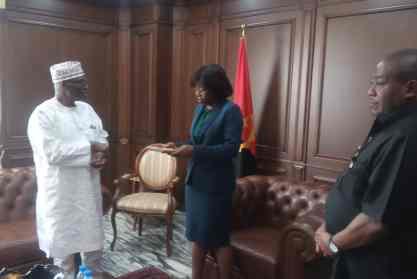

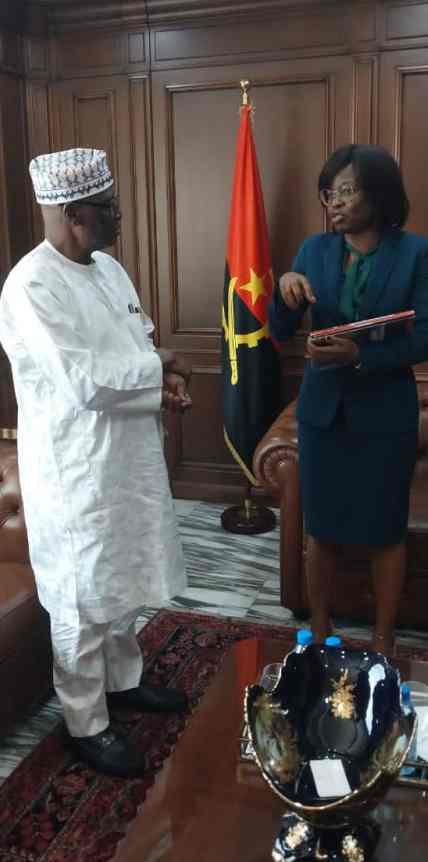
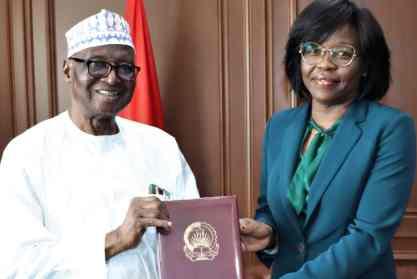
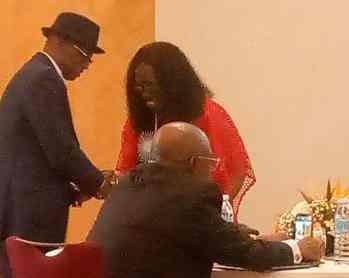
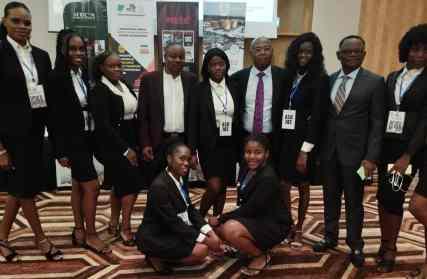
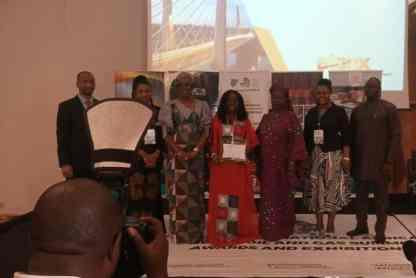
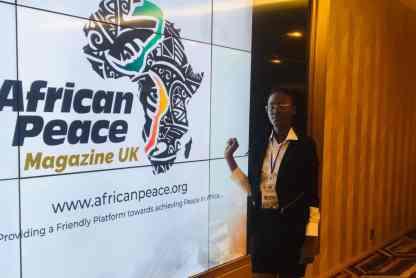
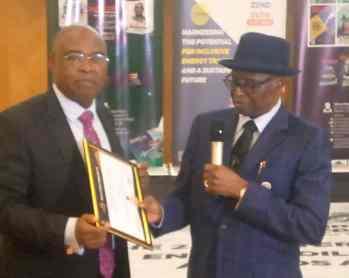

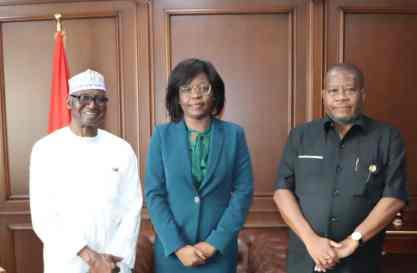
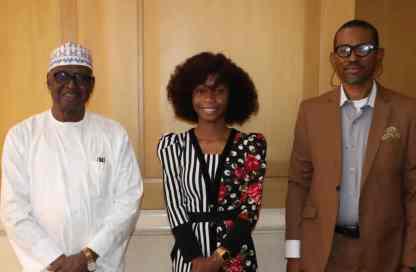
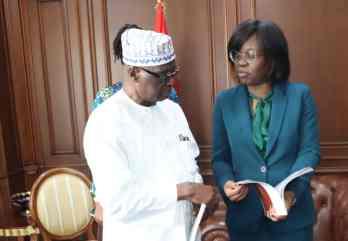
AFRICANPEACE 34
Showcasing Peace Through Rich uCult re







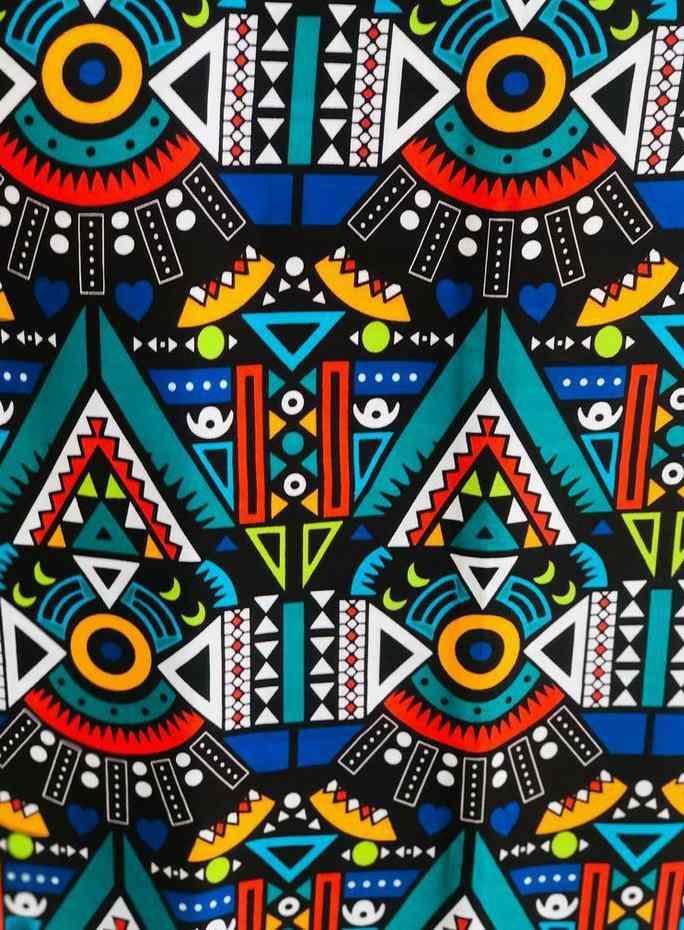
AFRICANPEACE 35
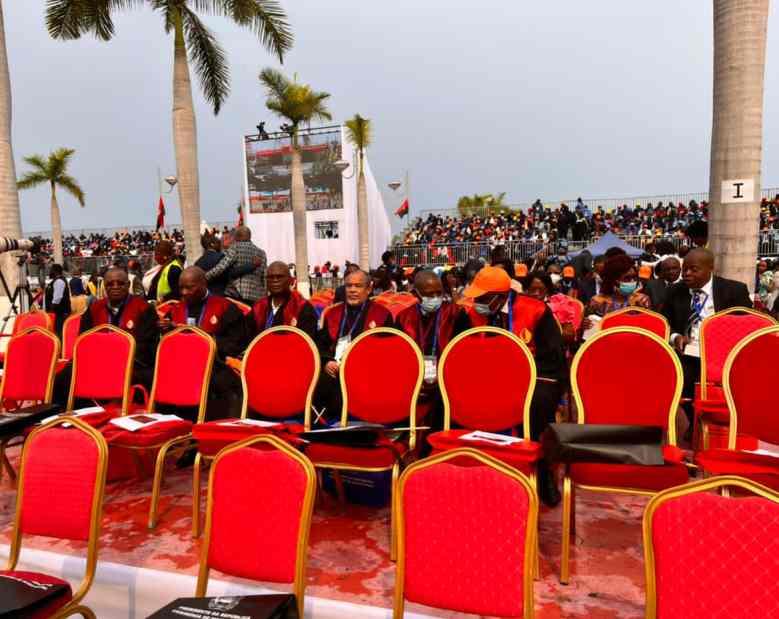
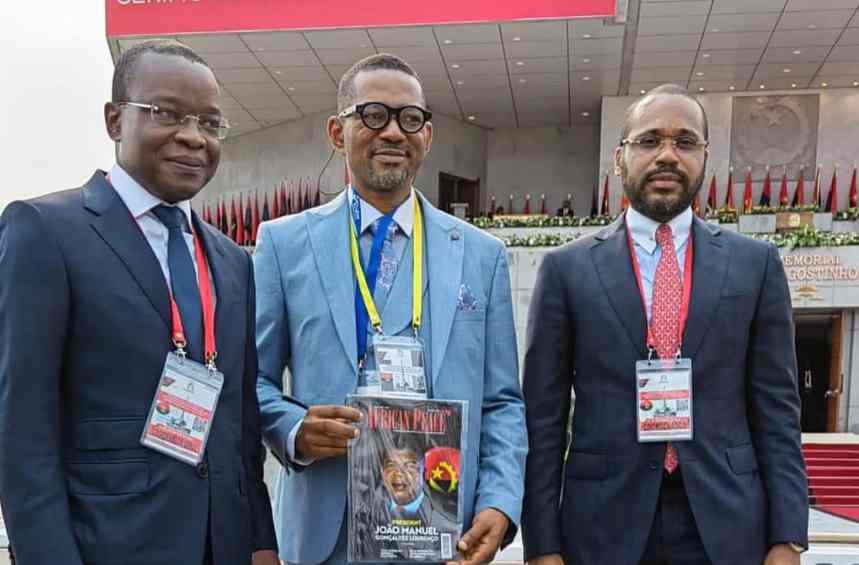
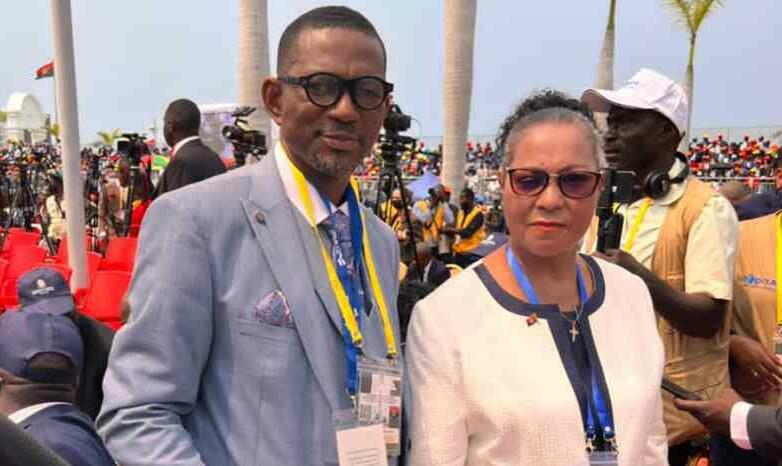
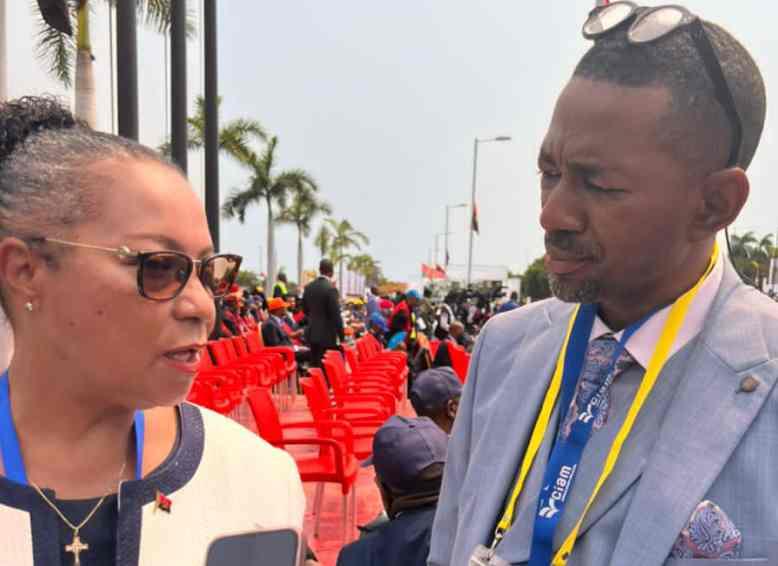
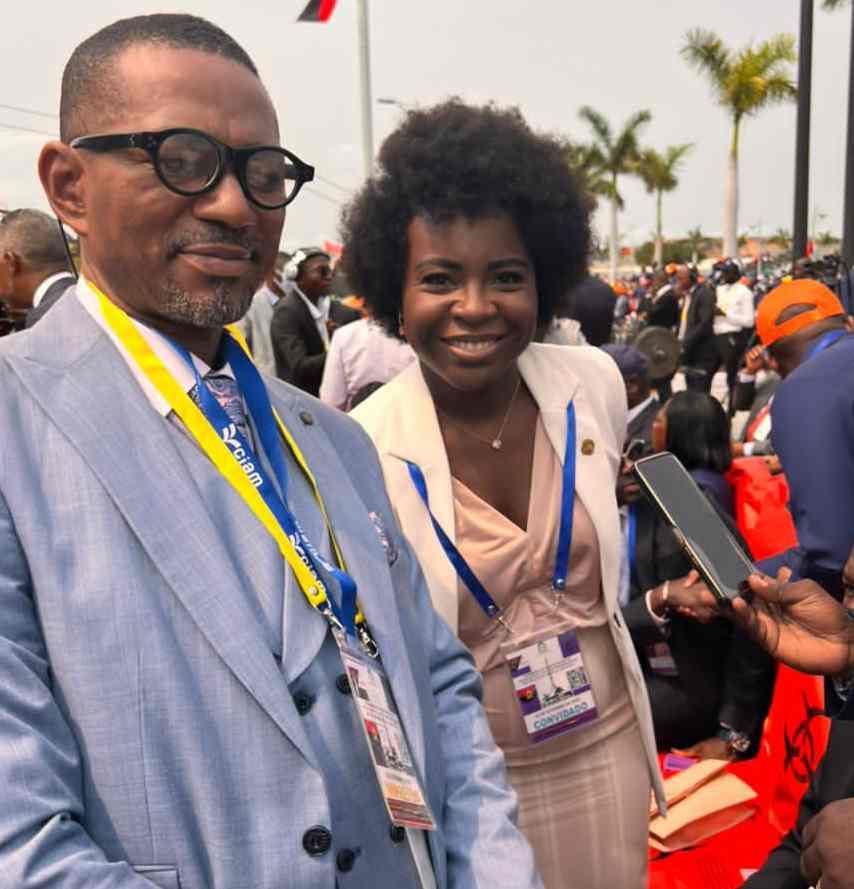
AFRICANPEACE 36
Swearing in Ceremony of The President Joao Manuel Goncalves Lourenco President of Angola
Visit to The Electoral commission of Angola
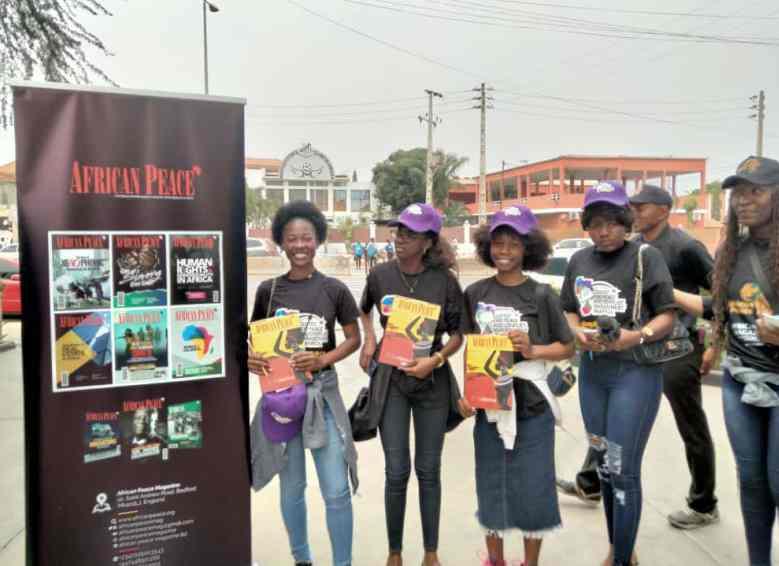
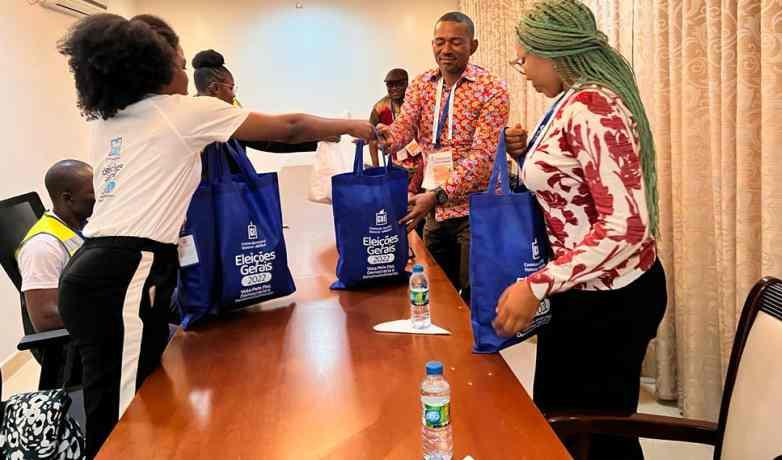
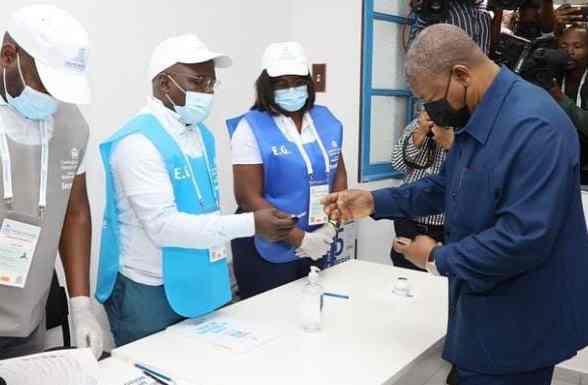
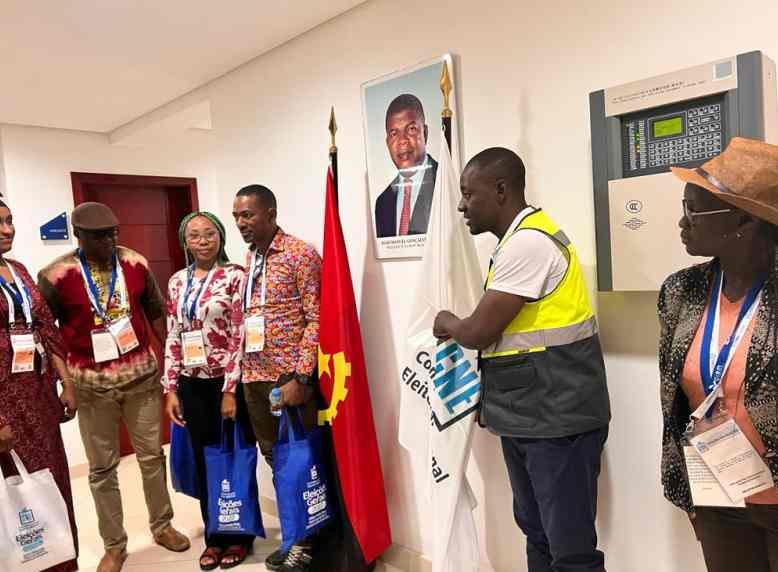
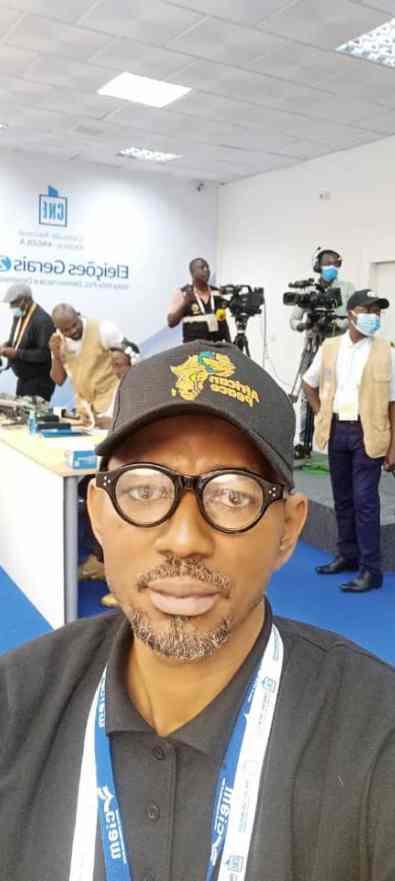
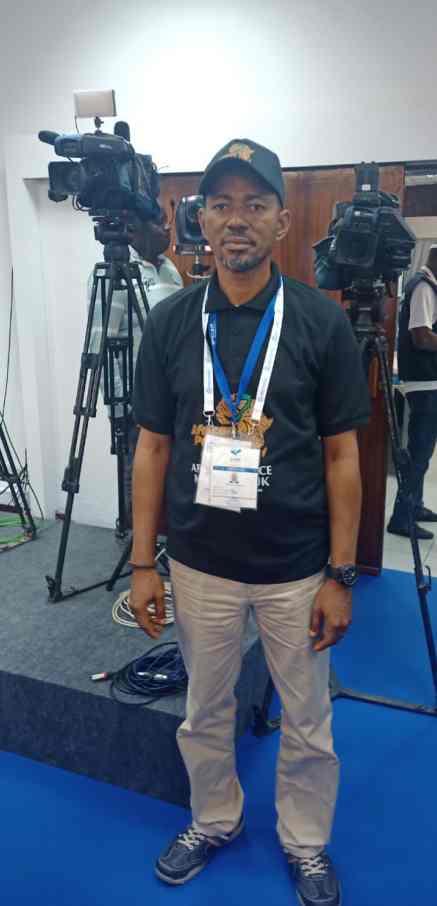
AFRICANPEACE 37
RAMAPHOSA’S PRESIDENCY HANGING AS PROBE FOUND HIM GUILTY
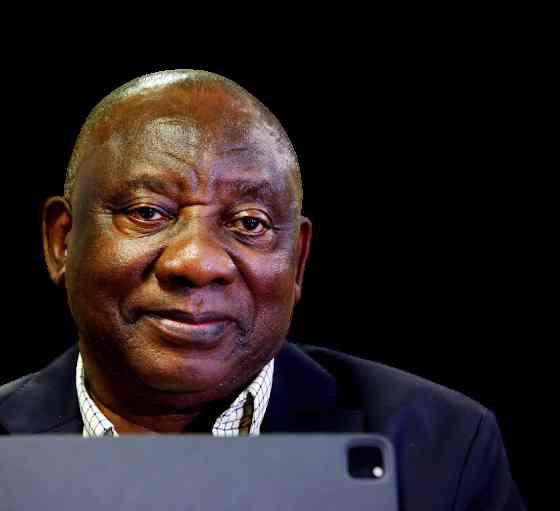
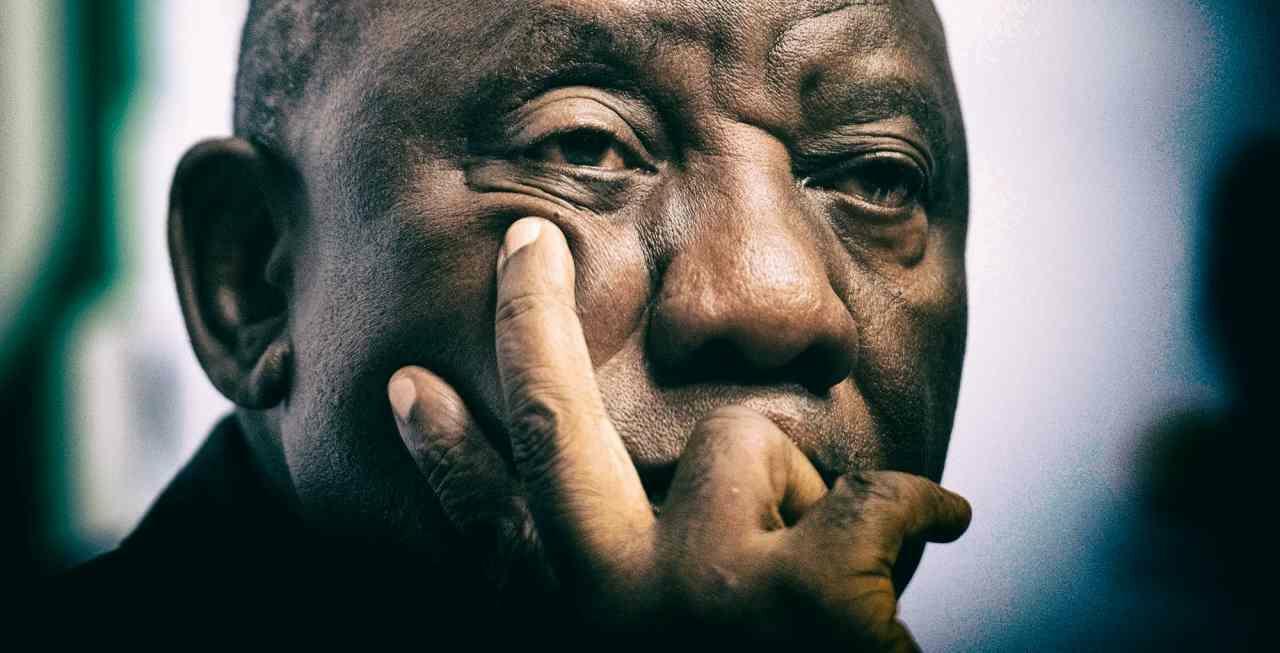
M r M a t a m e l a C y r i l Ramaphosa is a household name in South Africa, which can also be tagged as South Africa�s Golden Boy.
Ramaphosa was born on November 17, 1952 in Soweto and studied law at the University of the North in Mankweng, Limpopo.
Before delving into politics, he had been known as an anti-apartheid activist Ramaphosa had joined the Council of South Africa, CUSA, as an advisor in the legaldepartment.
CUSA had requested that Ramaphosa start a union for mineworkers in 1982 which was on n the same year and was called the National Union Of Mineworkers, NUM. He became its first secretaryin December.
Following his election as secretary general of the African National Congress, the union's membership grew from 6000 in 1982 to 300,000 in 1992; giving it control of nearly half of the total black workforce in the S o u t h Af r i c a n m i n i n g industry
Also a renowned successful businessman who later resigned from the private sector to further his political career. His political journey beganwhen he became the first general secretary of the n a t i o n a l u n i o n o f mineworkers in 1982. In 1991, he was elected ANC secretary-general and subsequently became head of the ANC team that negotiated the transition to democracy Following the first democratic elections in 1994, he was elected
c h a i r p e r s o n o f t h e constitutional assembly, which wrote South Africa�s n e w d e m o c r a t i c constitution.
Befor his emergence as fifth President of South Africa on the 15th of February, 2018, h e w a s t h e D e p u t y President from 25 may 2014 until15 February
Hisimpressive biography and untainted records, got him a whole lot of love from citizens and people around theworld.
However, Cyril Ramaphosa w a s u n d e r m o u n t i n g pressure to resign as South Africas president after a p a r l i a m e n t a r y re p o r t concluded that he abused his office in the fallout from the theft of more than $500,000 in cash that was
AFRICANPEACE 38
stuffed inside a sofa on his private game farm named Phala Phala game farm. A parliamentary panel's probe found he may have breached anti-corruption laws in connection with the alleged theft of a large amount of money from his Phala Phala game farm. Which has resulted in a call for him to step down follow allegations by the country's former head of intelligence, A r t h u r F r a s e r , t h a t Ramaphosa tried to conceal the theft of a huge sum of cash stuffed into couches at his farm in 2020. Fraser, an ally of the president's p o l i t i c a l r i v a l a n d predecessor, Jacob Zuma, accused Ramaphosa of money laundering and violating foreign currency controllaws.
A c c o r d i n g t o N e w s P r e s s N o w , t h e parliamentary panel in its report raised questions about the source of the money and why it wasn't disclosed to financial authorities, and cited a potential conflict between the president's business and officialinterests.
A c c o r d i n g t o t h e parliamentary report, Ramaphosa claimed the stolen money amounted to $580,000, disputing the initial amount of $4 million that Fraser alleged was stolen.

Ramaphosa denied any wrongdoing but insist the money was proceeds from the sale of animals at his farm. However, this does
not stop the opposition parties and Ramaphosa's detractors in the ruling African National Congress partyto callhis step down. The NYTimes.com reports questioned Ramaphosa's explanation that the money wa s f ro m t h e s a l e of buffaloes to a Sudanese businessman, Mustafa Mohamed Ibrahim Hazim, asking why the animals remained at the farm more than two years later The report said an investigation b y t h e c e n t r a l b a n k suggested there were no records of the dollars entering the country We are unable to investigate or verify the source of the foreign currency,� it states.
The parliamentary panel s a i d R a m a p h o s a p u t himself into a situation of conflict of interest, saying the evidence presented to it e s t a b l i s h e s t h a t t h e president may be guilty of a serious violation of certain sections ofthe constitution.� South Africa�s central bank has been carrying out its own investigation into whether the money was properlyreported as foreign currency under South A f r i c a n e x c h a n g e
regulations It has yet to report back at the time of this report.
A cloud is hanging over South African President Cyril Ramaphosa�s political f u t u r e h e a d i n g i n t o governing party elections as he confronts the scandal at his game farm.
To cap it all, the main o p p o s i t i o n p a r t y, t h e Democratic Alliance, is among those calling for R a m a p h o s a ' s impeachment resulting to his political ambition hanging on a thin thread Judging by the results of panel, it might result in him losing all of his political prospect to a few years behind bars.
African Peace Magazine, as ang and reputable platform is on the stand that every investigation should be carried out on this and leave no stone unturned for the development of South Africans and African as a continent.
We maintain our stand to the growth, development, peace and greatness of Africa.
AFRICANPEACE 39
The United Kingdom has been playing a huge part in Africa's development in so many ways, from enabling the growth of the African diaspora to leading to progress in the African economy. Since the colonisation, there has been s o m e s o r t o f b o n d i n g between them and it has been known fora fact that; decisions made by the government in the UK practically affect Africans too.
On the 25th of October, 2022 a new prime minister was appointed In the UK going by t h e n a m e R i s h i S u n a k , Following the resignation of Prime Minister Liz Truss, Sunak, as the leader of the Conservatives, the majority party in Parliament, became the new prime after accepting King Charles III's invitation to form a government He becomes the first person of c o l o u r o f A s i a n - B i r t i s h descent to become the country's head.
HisBiography
Rishi Sunak was on born May 12, 1980, in Southampton, England. The British politician and financier became leader of the Conservative Party and
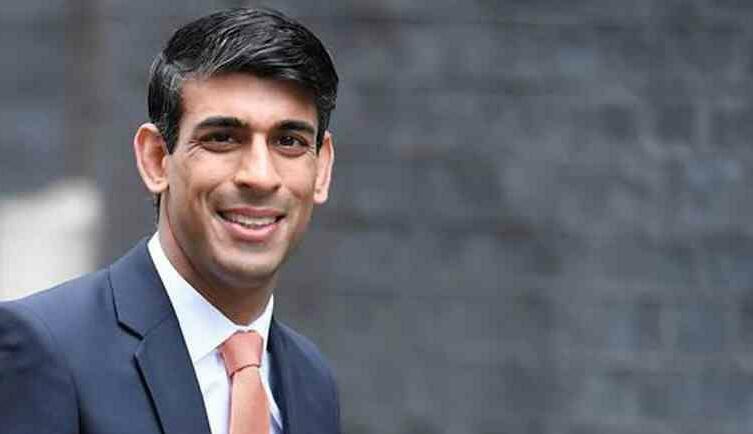
RishiSunak
HOW WILL LEADBRITAIN ANDITSIMPACTONAFRICA
prime minister of the United Kingdom in October 2022 Before he was appointed M i n i s t e r, h e s e r v e d a s chancellor of the Exchequer between 2020 and 2022 In 2010, Sunak beganworking for the Conservative Party During this period he also became i n v o l v e d w i t h P o l i c y E x c h a n g e , a l e a d i n g Conservative think tank, for which he became head of the Black and Minority Ethnic (BME) Research Unit in 2014.
In 2014, he was chosen as the C o n s e r v a t i v e P a r t y ’ s candidate for the House of Commons representing Richmond in NorthYorkshire, a safe Conservative seat in the north of England long held by a one-time party leader between 1997 and 2001. In May 2015, Sunak was elected by a commanding majority He came into office a Euroskeptic and firmly in the “leave” camp on the issue of Brexit, which he said would make the United Kingdom “freer, fairer, and more prosperous. ”
From 2015 to 2017, he was a member of the Environment, Food and Rural Affairs Select Committee and parliamentary
private secretary at the Department for Business, Energy and IndustrialStrategy
In January 2018 he was a p p o i n t e d t o h i s fi r s t m i n i s t e r i a l p o s t a s undersecretary of state at the M i n i s t r y o f H o u s i n g , Communities and Local Government. Sunak became a vocal supporter of Boris Johnson’s pursuit of the party’s leadership, and, when Johnson became leader and prime minister, he rewarded Sunak with a promotion, appointing him chief secretary to theTreasuryinJuly2019.
The former investment banker and hedge fund manager eventuallyturned politician.
At the time Rishi Sunak assumed his present seat, the British were and are still in a state of economic downfall, which is one of the main reasons Liz Truss has been b u r d e n e d b y t h e w o r k assigned to her and couldn't help but resign from the post.
The country is delving into its second recession in two years, much of the public sector seems to be voting for strike action and poverty is on the rise.Adaydoes not seem to go
AFRICANPEACE 40
by without a shrink in the livelihood of the country's people. The chancellor, Jeremy Hunt, has warned that there is a tough road ahead, stating that everyone will be paying more tax after the autumn budget and public services will face even more cuts, including the NHS, even though Hunt himself has admitted that the health service is on the brink of collapse experts have a feeling that with the new UK prime minister being Britain's former finance minister he might and probably should be able to lead the country out of its economic trouble.
In his first speech as prime minister, Sunak promised “integrity, professionalism and accountability,” and said that "we will create a future worthy of the sacrifices so many have made and fill tomorrow, and every day thereafter with hope Of his predecessor, Sunak said that Truss "was not wrong" to want to improve growth, but admitted that " some mistakes were made", and that he was elected prime minister in part to fix them. He promised to "place economic stability and confidence at the heart of this government's agenda"
EXECUTIONPLANS
In his plans to ensure the UK economy evolves, he has intended to tap into the migration process into the country. Before he became the prime ministerwhen asked about his plans for fixing the economic downfall the UK was experiencing He had made mention of his plans for an annual cap on the number ofrefugees the UKaccepts. In his words; our immigration
system is broken and we have to be honest about whether we believe that migration should be high or low, we can all agree that it should be legal and controlled He also affirmed that he would do whatever it takes to make a success of the controversial Rwanda asylum scheme.
His spokesman during an interview in November after statistics showed the net migration rose to an estimated record of 504,000 in the year ending inJune 2022.
Africans have been migrating for years to the UK to make a life there and it has increased over the years, due to so much i n e ffi c i e n c i e s i n t h e governance of the African countries. Insecurity, stagnant economic development and a whole lot of problems keeps pushing African people out of their home country to places like UK with a favorable economy.
However, with the current decision of the prime minister Rishi Sunak restriction on immigration, it would put a definite strain on Africans s e e k i n g f o r a g r e e n e r pastures. And on the brighter
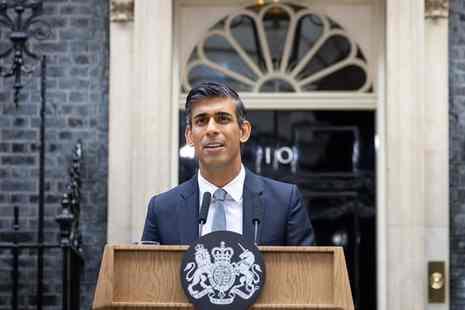
side, UK can only take in immigrantswhen it's economy isn't at a plummeting stage. T h i s w o u l d a ff e c t t h e employment situation of most African countries as they would be forced to manage jobs offering meagre salaries in their home countries Sticking to the insecured areas, putting many lives at risk.
African Peace Magazine, however, solicit that the health sector should not be left out, a s m o r e h e a l t h w o u l d deteriorate due to depression and other health conditions and crime rate should not be exempted.
The involvement of the UK in minimisingAfrica's burden can neverbe underrated. Constant migration is due to the benefits of a prosperous land like the UK, as much as the prime minister new policy would affect so many Africans, it might be the right decision to be made fornow
It's a wake up call to African leaders to try as much as they c a n to s e e k fo r p ro p e r development and a stable ground for the growth of their citizens.
AFRICANPEACE 41
We are extremely grateful for your s u p p o r t a n d i n t e r e s t i n partnership/sponsoring our events.
We acceptvoluntarydonations and we can discuss a package that fits yourorganization. Individual participation and group participation fees are available on www.africanpeace.org
We also have several advert options available apart from those listed here. Kindly reach out to us forfurtherdiscussions.
LISTOFEVENTSFOR2023
1. International African Energy, OilandGasSummit Angola: 15/09/2023 Theme: Balancing the need for smooth energy transition in Africa and the role of Artificial intelligence in the energysector Location: Angola
2. AfricanPeaceAwards2023: Location:Nigeria Date: 16/11/2023 T h e m e : P reve nt i n g V i o l e nt Extremism in a digitalage.
3. T h e A f r i c a n P e a c e a n d Security Architecture Summit 2023 Theme: BOLSTERING AFRICA'S ROLE IN THE GLOBAL ECONOMY 2023AND BEYOND Dates: 23RD -24TH of February 2023 Location: Boston Massachusetts USA
4. Africa Peace Ambassadors LeadershipTraining Location: Ghana: Dates: 22-23/06/2023
Theme: Deploying Artificial Intelligence in Conflict Resolution
5. International Investment Forum(IIF)
AFRICANPEACE MAGAZINEUK
Dates: 22/08/2023
Theme: Leveraging on the African Continental Trade Agreement to empower Africans and ease of assessing funding for business in Africa
Location: Kigali Rwanda
6. African Peace Road Show 2023
Location: Abu Dhabi. *Dubai. *Sharjah. *Ajman. *Ummu Al Quain. *RAK. *Fujairah. Dates: 2-14/09/2022 Theme: Achieving Sustainable P e a c e A n d E c o n o m i c Development In A Changing World.
7. Public Lecture to Mark the I n t e r n a t i o n a l D a y fo r t h e e l i m i n a t i o n o f R a c i a l Discriminations.
Theme: DigitallyRace less Dates: 21st March 2023 Location: London Uk
AFRICANPEACEBRAND WHOWEARE
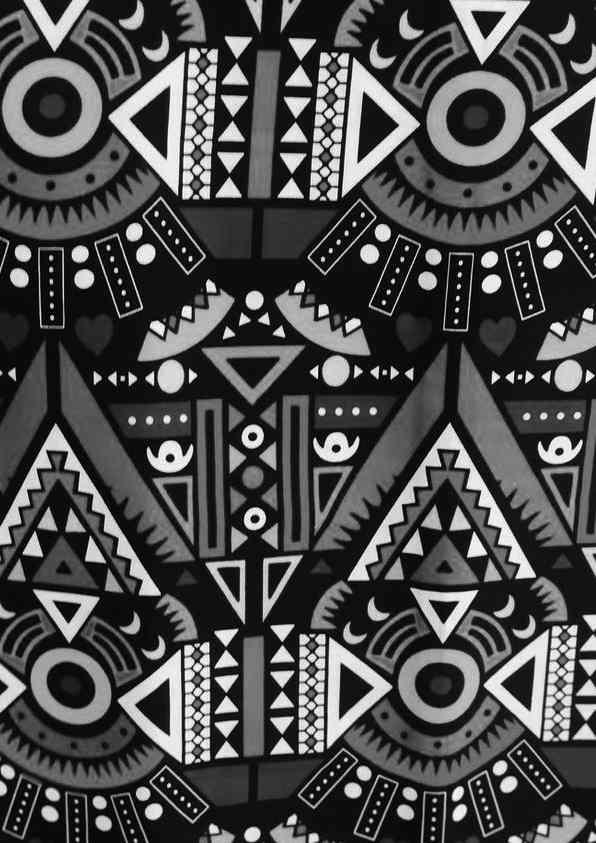
African Peace Magazine is a magazines aimed at uplifting the va l u e s of p e a c e a n d u n i t y throughout the continent. We have been publishing for well over 12 years.
I t c o n d e m n s v i o l e n c e a n d acknowledges those who strive to make the strife disappear It features pieces, articles and writeups which go a long way in promoting this noble cause of peace We at African Peace Magazine believe that every sector of a nation contributes in the collective propaganda of a peace country We have the Magazine, Television and Radio sections.
African Peace is a voluntary, nonreligious, non-political and nongovernmental firm born out of
desire and passion to promote a peace continent through all the elements of lifestyle, culture, Art, Fashion, leisure and cuisine. The Magazine is published in the United Arab Emirate (Dubai) by African Peace Magazine Ltd is registered in England and Wales, in Nigeria and SouthAfricawith partners globally
WHYUS
With over 250 million target readers across its portfolio in more t h a n 1 0 0 c o u n t r i e s , o u r publications would be the region’s undisputed market leaders Our readers and clients represent the elite from business, political and academic circles and are people who have influence over the direction of their countries and companies.
APM, is the first magazine directly targeting at the comprehensive market that cut across all ages, class orstatus.it has come to bridge the gap – with a magazine that is elevated, mature and intelligent And is focus on Peace, which invariably covers all other sectors from Fashion to Economics, Politics to Leadership issues, every subject you can ever imagine. “It is thus the prime advertising platform to reach the African market” Available free online and on mobileApps.
Other Sections include: Law, Travel, Style, Taste, Oil & Gas, Faith, Polity, Issue, Sports, Entertainment, Controversy, Technology, Gadgets, Finance, Career, amongst others.
African Peace Magazine Cover p a g e P e r s o n a n d e v e n t s / packages provide excellent platforms that will catapult sponsors’ services and products into the consciousness of their target market and the largerAfrican audience, globally
AFRICANPEACE 42
2 0 2 3 E V E N T S
OACPS Business Days
Organisation of African, Caribbean and Pacific States
African Peace Magazine Uk is live at the Organisation of African, Caribbean and Pacific States (OACPS) the “OACPS Business Days”, a high-level business event aimed at promoting the economic t r a n s f o r m a t i o n o f t h e Members of the OACPS through industrialization and private sector engagement
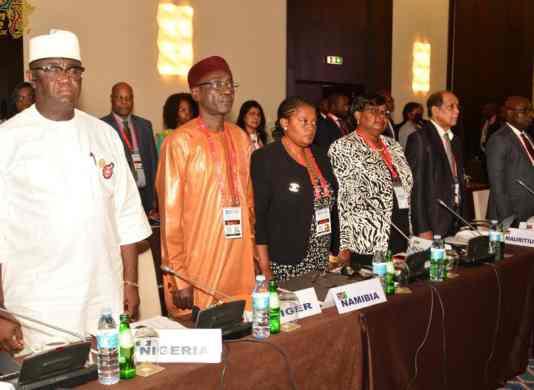
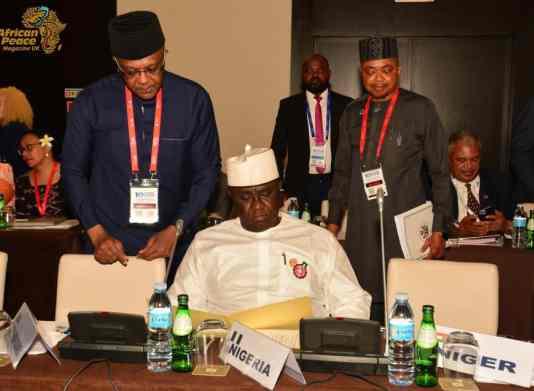
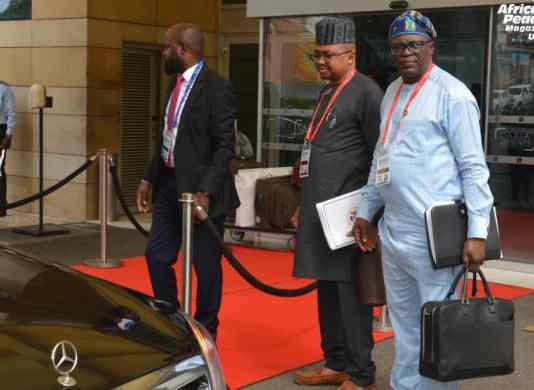
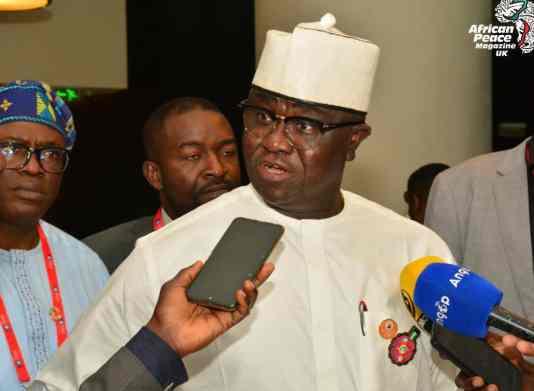
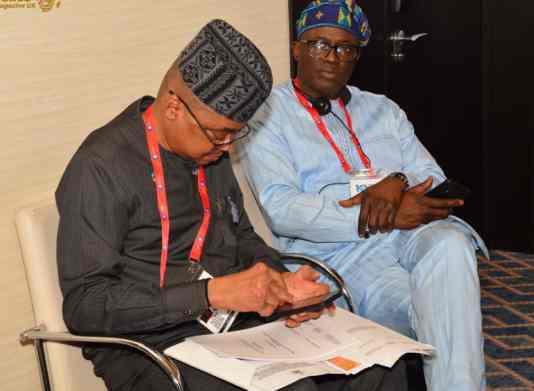
This high-level event is being organized in the margins ofthe 10th Summit of OACPS Heads of State and Government, to be held from 7 to 10 December in Luanda, Angola, under the most prestigious auspices of His Excellency Dr João LOURENO, President of the Republic ofAngola.
The Organisation of African, Caribbean and Pacific States (OACPS), evolved from the ACP Group, founded via the Georgetown Agreement in 1975. It comprises 79 African, Caribbean and Pacific States. The main goals of the OACPS centre around the sustainable development of its Members and their gradual integration into the global economy with the ultimate objective of reducing and eventually e r a d i c a t i n g p o v e r t y ; c o o rd i n a t i o n of OAC P S activities in the framework of the implementation of the e x i s t i n g P a r t n e r s h i p Agreement with the European Union; consolidation of unity
a n d s o l i d a r i t y a m o n g Members of the OACPS; the promotion of multilateralism; t h e e s t a b l i s h m e n t a n d strengthening of peace, security and stability in free and democratic societies; and the empowerment of Youth andWomen.
President Wavel Ramkalawan is currently leading the Seychelles delegation at the 10th OACPS Summit of Heads of State and Government being held in Luanda Angola where he delivered his general debate statement yesterday, during the closed high-levelsession.
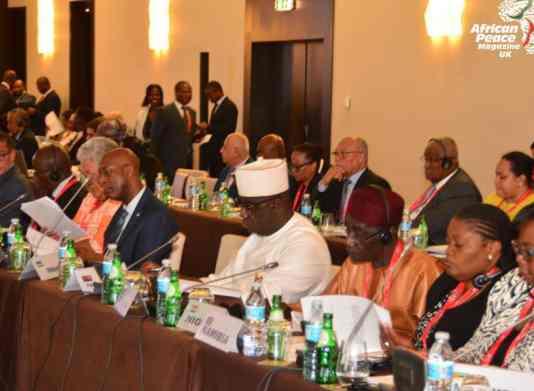
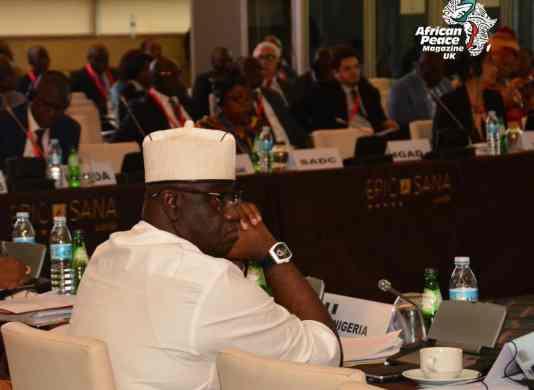
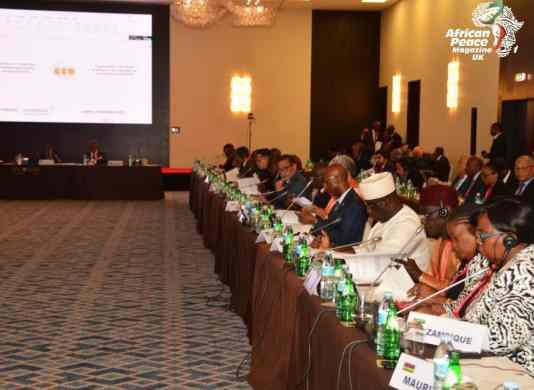
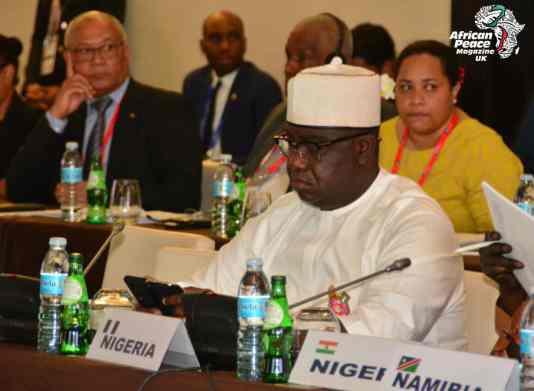
AFRICANPEACE 43
Addressing the audience, the President highlighted that in order for member states to surmount some of the global present day challenges, necessitates the adoption a dynamic and collective approach of operation by the OACPS, in order ensure the survival and optimum benefits forallmemberstate nations.
“It is for me a pleasure to participate in the 10th Summit o f H e a d s o f S t a t e a n d G o v e r n m e n t o f t h e Organisation of the African, Caribbean and Pacific States –the first for me since assuming office in 2020. After two years of pandemic, followed by a war in Europe, most of us are still grappling with rising food insecurity, supply chain disruptions, high energy prices and the globalinflation.
There are many lessons here to be learned. The first being that we can no longer accept b u s i n e s s - a s - u s u a l A sustainable path for the OACPS requires a robust, m o d e r n , i n c l u s i v e a n d diversified development agenda for our regions, taking f u l l a d v a n t a g e o f t h e technological advancements ofthis millennium”.
In advancing the cause of access to finance, President Ramkalawan further made an urgent plea to governments and international financial institutions to form part of the transformation of nations faced with various plights that are beyond their financial means.
“I therefore call on your leadership to support the universal adoption of a MultidimensionalVulnerability Index to benefit vulnerable
countries, not least Small Island Developing States. We cannot leave anyone behind.
Lessons must also be learnt from the pandemic. The tools and science to overcome the weaknesses in our health systems exist, but are not accessible to us all and equally The OACPS must identify strategic partnerships to ensure equity and access to treatment, patent-waivers and technology-transfers. Such partnerships are essential in the fight against global crises and emerging challenges.
Economic diversification is a necessity for our economic progress As an example, investment opportunities in the blue economyare plentiful in Seychelles The OACPS s h o u l d p r o m o t e t h e s e lucrative areas to investors from within our regions and elsewhere I commend the establishment of a Business F o r u m w h i c h s e e k s t o f a c i l i t a t e b u s i n e s s - t obusiness networking within ourregions.”
In concluding his statement, the President reaffirmed Seychelles’ commitment to the ideals of the OACPS, and called on all OACPS leaders to join together to build a successful and resilient OACPS for a fairer and more equitable world order for their p e o p l e s a n d f u t u r e generations to come.
On the final day of the Summit, the Heads of State and Government were also briefed on the state of play on the i m p l e m e n t a t i o n o f t h e R e v i s e d G e o r g e t o w n Agreement which was signed at the previous Summit in December2019 and came into
force in April 2020. The R e v i s e d G e o r g e t o w n Agreement changed the organization from the ACP G ro u p of S t a te s to t h e Organisation of African, Caribbean and Pacific Group o f S t a t e s ( OAC P S ) a n d expanded the Organisation’s mandate to address global challenges and current issues such as the environment and climate change and peace and security
The Summit also welcomed the Republic of Maldives as the newest member of the OACPS and also took note of the withdrawal of the Republic of South Africa from the Organisation.
P re s i d e n t R a m k a l a w a n e n d o r s e d t h e L u a n d a Declaration which will provide strategic direction for the Organisation for the next three years.
President is accompanied at the OACPS Summit by the Minister for Foreign Affairs and To u r i s m , M r S y l v e s t re Radegonde, the Ambassador Beryl Samson, Ambassador of the Republic of Seychelles to the Kingdom of Belgium, responsible for the OACPS dossier and Department of Foreign Affairs Secondsecretary, Mr. Marco Larsen.
Distributed by APO Group on behalf of State House – Office of the President of the Republic ofSeychelles.
AFRICANPEACE 44
THEMAGIC OFUNITYTHROUGH FOOTBALL
Football has been a very strong force that has impacted nations and integrated the people. Over the years, it has served as a powerful tool and element for Peace and c o m m u n i t y b u i l d i n g I t d e n a t u r e h a t r e d a n d p r o m o t e s p e a c e f u l c o e x i s t e n c e a m o n g s t members of different origin, race, and religion in the community, nation and the world. The positive influence o f fo o t b a l l c a n n o t b e overemphasized.
The art of Football includes the combination of running, walking, sprinting and kicking which brings health benefits such as increased stamina, improved cardiovascular health, reduced body fat, improved muscle strength and tone, increased bone strength and affects overall body coordination. In spite of this goodness, football plays an incredible role in unifying the nation.
W h e n e v e r a f o o t b a l l tournament is organized that brings people of different
creeds together, there would be an amazing infusion of subcultures, languages, with various belief systems Take for instance, FIFA World Cup Qatar2022.
The FIFA World Cup Qatar 2202 is an international a s s o c i a t i o n f o o t b a l l tournament contested by the men ' s national teams of FIFA's member associations, and the 22nd FIFA World Cup The event is scheduled from 20 November to 18 December 2022. It is interesting to know that the FIFA World Cup Qatar 2022 is the first to be held in the Arab world, and the second World Cup held entirely in Asia after the 2002 tournament in South Korea and Japan. The tournament is scheduled for 32 teams from different parts of the world

H e n c e , i t p r o m o t e s understanding and brings together people of different backgrounds.

International de Football Association (FIFA) is an international organization that
controls the sport of football. The FIFA World Cup which is held every four years is the quintessential football event that combines the greatest in the world, middle class, lower class and the passion of the fans. Other continental bodies are UEFA, CAF, CONCACAF, etc. It is noteworthy that this game has held the power to unify nations, states, regions, communities, etc It unites people because it promotes coexistence and teamwork. It has played out war and brought people together from around theworld.
Nelson Mandela once said that “Sport has the power to change the world. It has the power to inspire It has the power to unite people in a way that little else does. It speaks to youth in a language they understand. Sport can create hope where once there was onlydespair
Football has a universal language: "the magic; an invisible unifying force", which

AFRICANPEACE 45
i n t e g r a t e s a d i v e r s e p o p u l a t i o n o f d i ffe re n t cultures, languages, genders and religions. No wonder Mr Settimo views sports as a "universal language that encourages and promotes s o c i a l i n c l u s i o n , yo u t h development and sustainable peace "
When tournaments such as t h e F I F A W o r l d C u p , Confederation Cup, the African Nations Cup and the UEFA Champions League bring in supporters from nations around the world, it's a National pride and a part of globalism The FIFA World Cup brings the world of footballtogetherforan entire month through triumph and defeat. It is a modern example of nationalism fused w i t h g l o b a l i z a t i o n Nationalism is shown in wearing football shirts, scarves, flying of colors, and fl a g s t o ex p re s s p r i d e . According to Ebohon (2010), “these unifying factors are a complete system that forms a part of the global community of football Football brings players, fans, coaches, and clubs together from every part of the world” Football is playing a very strong unifying role in the nation because of the passion for the game. It is evident that what religion, politics, and tribe could not do, football is rightly doing it. Anytime Nigeria is having a
match to play with any other nation, Nigerians are always seen together discussing as a family bound together with love irrespective of religion, tribe and region.
In the World today, Football C u l t u re i s i n d i s p u t a b ly instrumental in bringing about understanding and unity Evidently seen when a football tournament is organized that brings people of different creeds together, we see an infusion of subcultures with various belief systems Fo ot b a l l b r i n g s p e o p l e together to understand themselves and their pattern of play. For this, coaches are sought after internationally to extend relationships and c o o p e r a t i o n . N a t i o n a l coaches, once being native to their country, are brought in from other countries. This is very common in Africa and Asia where foreign coaches are in charge of national teams.
The relationship between football and society can be viewed and summarized from two perspectives: First, football is a great instrument to solve social problems, to overcome huge social obstacles, to give o p p o r t u n i t i e s f o r disadvantaged people. Thus, If football is a competitive sport, especially, the big events can be a great stage to
s e n d s o c i a l m e s s a g e s because it is considered a p o w e r f u l t o o l f o r t h e i n t e g r a t i o n a n d t h e socialization among people with different backgrounds, religions, genders, abilities, and races.
Football has a universal language No particular language is attached to football. And thus, it does not need words to unite people. The communication and understanding between people who cannot speak the same language but by kicking a ball, they can have fun, share a game or a simple laugh While in the course of playing together overtime, they begin to understand each other, developing a set of relations and the colors of their skin, the religion etc, is less an issue of d i s u n i t y. S a l a m i ( 2 0 1 0) observed that “football is a beautiful game and we should work towards enjoying the g a m e a n d m a k i n g o u r stadiumsviolent free."
Football creates friendships between people who would not normally communicate This is great against racism since when people support the same ideals, they have something in common This encourages communication b e t w e e n p e o p l e a n d friendships between different people
Football unites nations It unites nations and creates peace between countries since each country wants to invite the other countries to the world cup This creates friendships between nations. Countries try to be friendly to other countries to create better and more enjoyable sporting events.
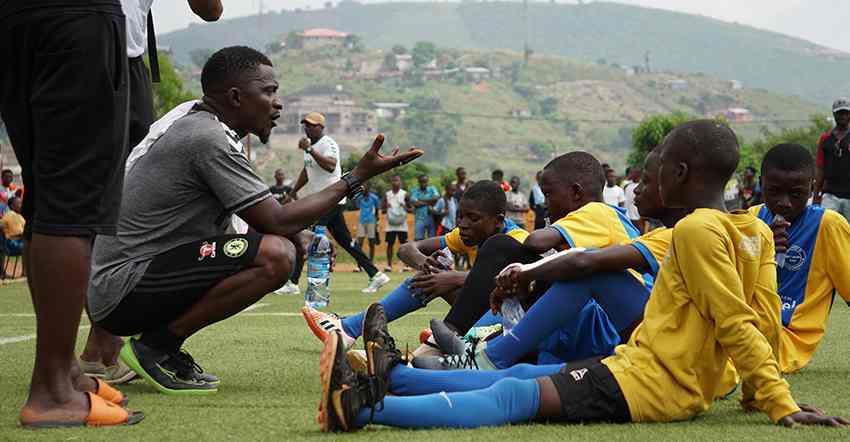
AFRICANPEACE 46
Interview with
PRINCECLEM IKANADEAGBA
Hon. Minister of State, Budget and National Planning Nigeria
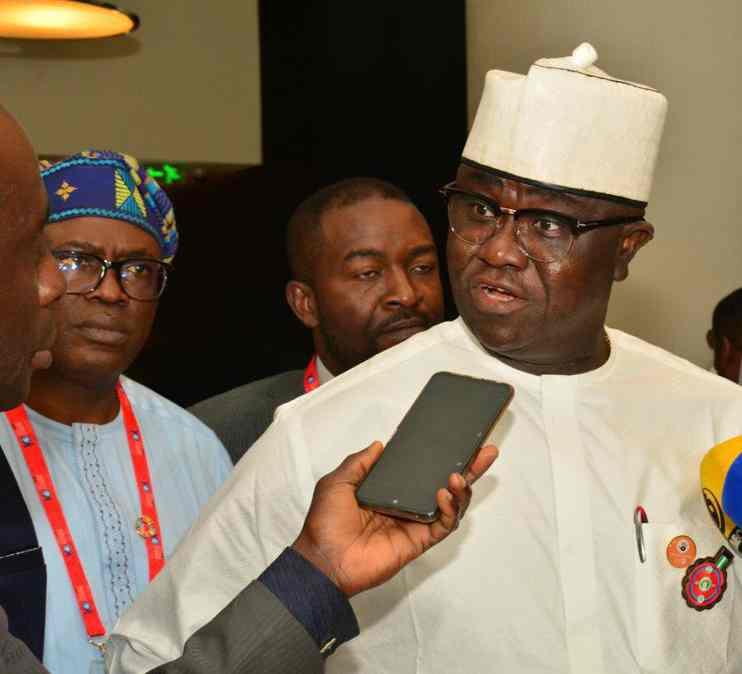
African Peace Magazine Uk is live at the Organisation of African, Caribbean and Pacific States (OACPS) the “OACPS Business Days”, a high-levelbusiness event a i m e d a t p r o m o t i n g t h e economic transformation of the Members of the OACPS through industrialization and private sector engagement This highlevel event is being organized in the margins of the 10th Summit of OACPS Heads of State and Government, to be held from 7 to 10 Decemberin Luanda,Angola,
Interview
Thank you very much for the question, yesterday, there were three basic forums we attended. The business forum, the youth forum which has to deal with the issue of motor vehicle safety, and then the diaspora forum
Our Federal Road Safety Corp is very serious about the reduction of motor vehicle accidents and indeed fatality in our country Nigeria We recently just put fo r w a rd a f r a m e w o r k fo r reduction of motor vehicle accidents that was approved by
the Federal Executive Council to be used forthe next tenyears.
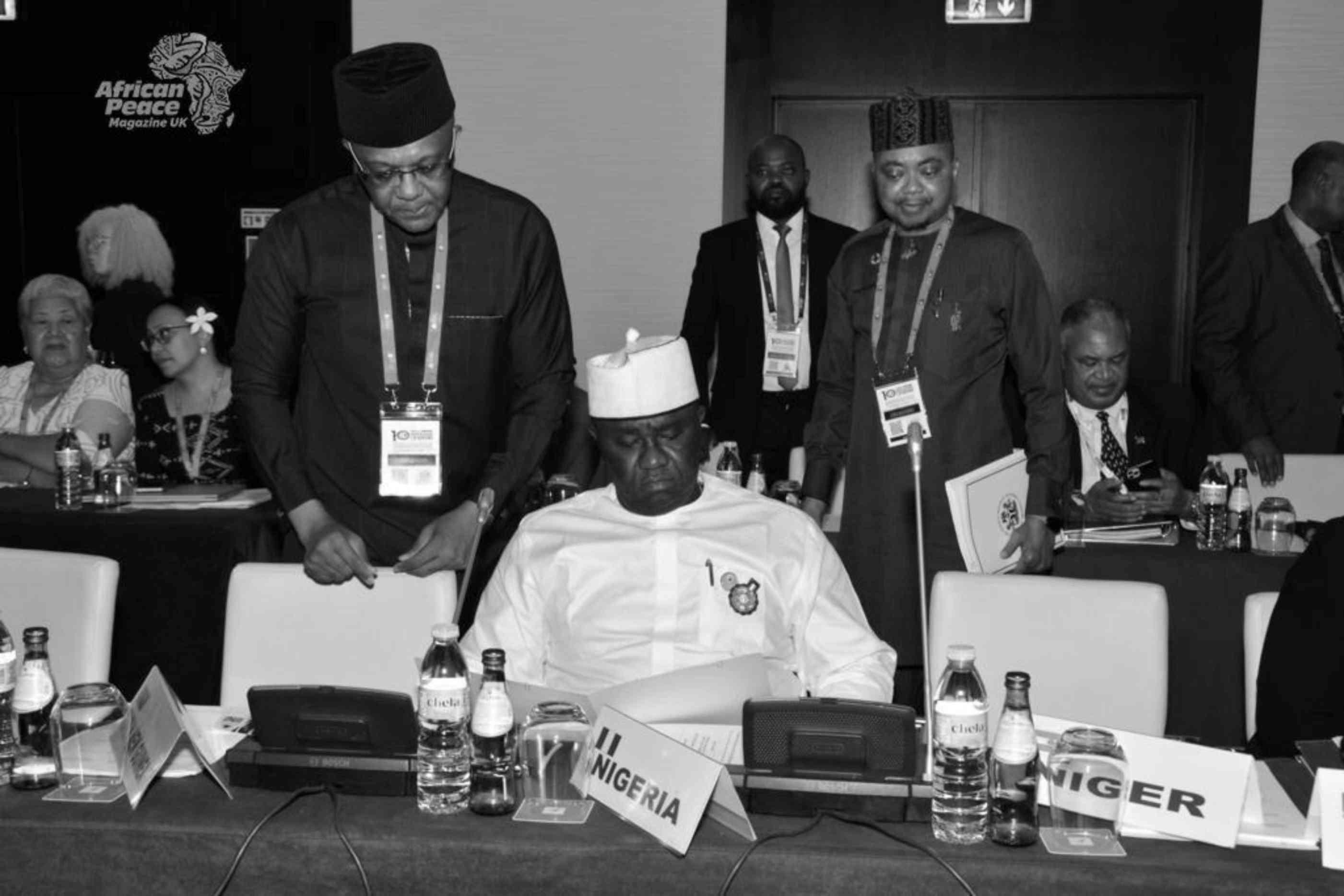
For us, accidents it’s not just about statistics it’s about people. It is easy to change components in a vehicle, but once a life is lost you can’t get that life back. So that is why the government of Nigeria places a lot of emphasis on reduction of motor vehicle crashes and indeed fertilities.
The issue of diaspora like I said yesterday, we have about seventeen million Nigerians in diaspora. And our diasporas are very active in the work that is going on in Nigeria. First, they are patriotic, they know that they are Nigerians, they also know that they are our ambassadors, and they have been very much involved in the inflow of forex into the country, so what our diaspora commission is trying to do is to engage them to work together so that this capital that is coming in can be used for investments that will move the economy forward a n d e n s u re t h a t t h e re i s economic growth Nigeria is willing to help other countries a n d m e n to r t h e m i n a l s o developing their diaspora commission We believe in Nigeria that anywhere you come from as long as you are a black
man just like Bob Marley says “You’re welcome”. It doesn’t matter the nationality you belong to asyou are black.
How can Nigeria contribute to theorganizationspecifically?
The commission that we just talked about which is the diaspora commission is a big way that Nigeria intends to use. And I did say we have made a lot of advances in our motor vehicle safety, we are also willing to mentorothers,wewillcontinue to play that leading role in Africa as the most populous black country in theworld.
Few words about the relationship between Angola and Nigeria, we know you have a very close relationship between Angola and Nigeria.
I think Angola is a beautiful country just like Nigeria and personally I have colleagues from Angola that we have worked together in the same company Chevron, so this is home for us and I also believe that Nigeria is home for you and I hope we continue to corporate with one another
AFRICANPEACE 47
with Prince Clem Ikanade Agba Hon Minister of State, Budget and National Planning Nigeria
WON DERS AFRICA OF

Africa, population wise, is the second largest continent in the world after China. It has a total of over 11 million square miles (30.3 million sq. km), covering 20% of the worlds land area. It does not only have seven and more fascinating places in it, it is often also regarded as theworld ofwildlife.
As a continent, it contains 26,000 km of coastline and has the largest density, population and variety of free roaming wild animals. Africa houses lion, leopard, crocodile, e l e p h a n t , r h i n o c e r o s , hippopotamus, gorilla known as Big 7 animals.
Below are the seven wonders of Africa:
FishRiverCanyon
The Fish River Canyon is in Namibia. Its huge canyon is about 160 kilometers long and has a width of 27 kilometers. It is a good place for hikers during dry season as the river would have stopped flowing. It is an adventurous place for admirers of animals and wildlife.
Sahara Desert, along with others, was announced as one of the 7 seven naturalwonders of Africa on the 11th of February, 2013 in Arusha, Tanzania. The desert is the
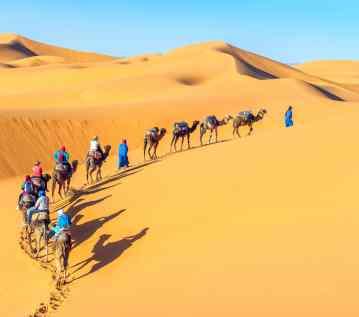
largest hot desert in the world and covers 11 countries and accounts for 9,000,000 sq km while its sand dunes are as high as 600 feet.
RiverNile
The Nile River is the longest riverin the world stretching 4,132 miles (6,650 km) while crossing 10 countries in northern AfricaUganda, Ethiopia, Sudan, South Sudan, Democratic Republic of the Congo, Kenya, Tanzania, Rwanda, Burundi and ending in Egypt as it feeds into the Me d i te r ra n e a n S e a I t h a s traverses across 10 countries and serves as the mouth of the river in Egypt.
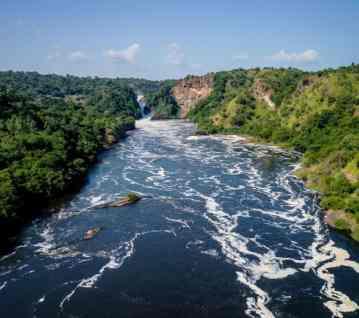
Mount Kilimanjaro is the tallest mountain in Africa as well as the tallest free standing mountain in the world. It has a height of 19,340 feet and it is one of the largest stratovolcanoes in theworldwhich has layers of lava, tephra, and volcanic ash. It is currently inactive with no known history of eruptions.
T h e m o u n t a i n h a s s e v e n distinctive peaks and has at least six different ecological zones including Montane forests, bushland, rainweald, heath and moorland, highland barrens, and ice cap.
PyramidsofGiza,Egypt
The famous Giza Pyramids located in Egypt is a very lively place to be. Located close to the
country’s capital, it was built about 2650 BBC from 2.5 million blocks of limestone. The pyramids translate to the north, south, east and west, where late King Cheops was buried.
It is a place of tour for students, workers, families, and different people of different races across the world. It is regarded as the worlds largest and oldest statue.
The Bazaruto Archipelgo is at the Indian Ocean where whale sharks, dolphins, turtles, parrots and clown fish can be seen. It is an environment full of luxury and relaxation, and fun. It is not wrong that it should be described as a place one can enjoytheirvacation. Queen Moremi Statue ofLiberty.
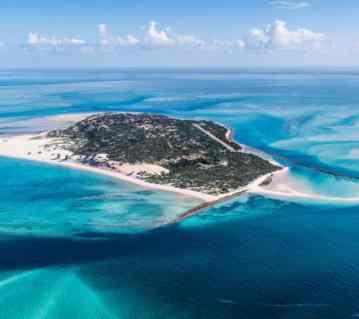
MoremiStatue
This is located in the most populous country in Africa It stands at 42 feet which makes it the tallest statue in Nigeria It depicts a symbol of the selfless, brave and extremely wise Queen Mo re m i , w h o i s l ove d a n d honoured by the Yoruba people of Nigeria.
In 2016, the Ooni of Ife, Oba Enitan Babatunde Ogunwusi, announced the Moremi Statue built in his polace as the tallest statue in Nigeria.
AFRICANPEACE 48
AfCFTA December 2022 UPDATE: AU Chairperson Lauds AfCFTA PROGRESS
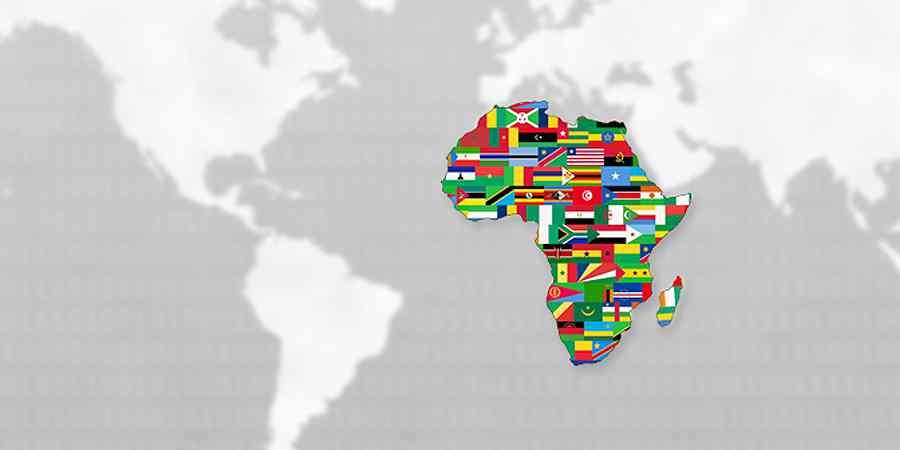
AfCFTA December 2022
UPDATE: AU Chairperson Lauds AfCFTA PROGRESS: The Chairperson of the African Union Commission Moussa F a k i M a h a m a t h a s commended the remarkable s t r i d e s m a d e i n t h e operationalization of theAfrica C o nt i n e nt a l Fre e Tra d e Agreement (AfCFTA) aimed at promoting the economic integration of African Union memberstates.
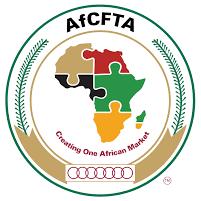
Speaking during the opening of the Ordinary Session of Executive Council of Ministers of Trade last Wednesday, d u r i n g t h e A f r i c a Industrialization Week, in Niamey, Niger, Mousa said the p r o g r e s s o f t h e t r a d e agreement that has so far been ratified by 44 out of the 55 member states is a ‘ source ofsatisfaction and pride’
“The establishment of the functional structure of the A f C F T A P e r m a n e n t
Secretariat was done in parallel with the launch of negotiations under the first phase devoted to trade in goods and services. This phase, which was crowned with success, recorded, among other things, the commitment by the States Parties to eliminate customs duties on 97% of tariff lines and laudable progress on issues related to trade in goods, in particular trade facilitation, trade dispute settlement, rules of origin, non-tariff barriers and institutional a r r a n g e m e n t s ” https://lnkd.in/eEMpVGAb
The AfCFTA Agreement was signed on 21st March 2018 in Kigai, Rwanda, came into force on 30 May 2019. The scope of t h e A f C F TA Ag re e m e n t includes the Protocol on Trade in Goods, the Protocol on Trade in Services, and the P ro t o c o l o n R u l e s a n d Procedures on the Settlement of Disputes, the Protocol on
Investment, the Protocol on Intellectual Property Rights, the Protocol on Competition, the Protocol on Digital Trade, and the Protocol on Women andYouth inTrade.
Start of trading under the AfCFTA Agreement began on 1January2021.
As at 1 December 2022, 44 out of the 55 Member States have deposited their instruments of ratificationwith theAUC.
Over two-thirds of Member States are now parties to the AfCFTAAgreement.
S o m a l i a P a r l i a m e n t a r y/C a b i n e t approvalpending.
Eritrea ONLY country not to sign agreement.
NOTE: Burkina Faso Guinea a n d M a l i a re c u r re n t l y
AFRICANPEACE 49
SUSPENDED
Afric� �nsur�nce
According to Statista, in 2015, South Africa dominated the non-life insurance industry in Africa, while Morocco was responsible for23 percentofthe life insurance market on the continent. Insurance refers to a contract ora policythat protects the insurerfrom financiallosses.
Major Western insurance firms have more recently begun to especially pay attention to the increasingly attractive subSaharan African insurance industry From 2014 to 2018, Zambia, Nigeria, Ghana, and Uganda recorded some of the highest growth rateswithin the insurance industryin Sub-SaharanAfrica.
The analysis continues stating the insurance industry in Africa represented less than one percent of insured catastrophe losses worldwide, although its home to almost 17 percent of the global population. Meanwhile, despite the downward levels of insurance uptake, there was continuously increased interest and focus from major international brokers, insurers, and reinsurers and in 2017, thevalue ofinsurance premiums inAfrica amounted to almost 45 billion U.S. dollars.
Brookings, in its report, disclosed that African countries have grown in each of these market segments at varying paces, following theirdse growth patterns. No doubt, adoption oftechnologyand innovation are important to theAfrican insurance industry
Africa's insurance sector includes life insurance, nonlife insurance, and reinsurance. South Africa is towered by life insurance premiums, but Kenya, Nigeria, and Tunisia, carry a much higher volume of nonlife insurance premiums than life ones.
Belowis theAfrican insurance market: turnoverin 2021, according toAtlas Magazine.
Rank Country Turnover 2020-2021evolution2021shares Regional Global 2021 2020
1 19 SouthAfrica 51215 41110 24.58% 69.03% 2 49 Morocco 5343 4774 11.92% 7.20%
Total 74 190 61 881 19.89% 100.00% The International Monetary Fund, IMF, in its 2022 report titled "South Africa: Financial Sector Assessment Program-Technical Note on Insurance Sector - Regulation and Supervision"noted that the South African insurance sector is large, complex, internationally active, and competitive Supported by high penetration and density of insurance products, the insurance sector has grown to account for 18 percent of the financial sector in South Africa. The industry hosts an unusually diverse range of business models, including traditional participation focused models, bank-led conglomerates, asset managementfocused groups and technology-driven new entrants. Even among large insurers, risk profiles vary significantly, which is unique relative to other major insurance markets. Most large insurance groups are actively expanding their business both regionallyand globally
AFRICANPEACE 50
3
4
5
6
7
8
9
10
Although, the insurance sector in Africa is still underdeveloped when compared with what obtains in Asia, Europe and other developed countries However, it is important to state that the coming together of African nations and investing in the economy of African countries can boost the growth ofthe continent's insurance sector 67
55 Egypt 2808 2390 17.49% 3.78%
56 Kenya 2422 2190 10.59% 3.26%
70 Nigeria 1582 1433 10.40% 2.13%
79 Algeria 1075 1095 -1.83% 1.45%
81 Tunisia 985 900 9.44% 1.33%
83 Namibia 867 788 10.03% 1.17%
86 Côted'Ivoire 844 694 21.61% 1.14%
88 Ghana 814 686 18.66% 1.10% Totaltop10markets
955 56060 21.22% 91.60% Restofthemarket 6235 5821 7.11% 8.40% Total 74190 61881 19.89% 100.00%
YOUNGFEMINISTS
The 16 Days of Activism against Gender-Based Violence is an annual international campaign that kicks off on 25 November, the I n te r n a t i o n a l D ay fo r t h e Elimination of Violence against Women, and runs until 10 December, Human Rights Day
The campaign was started by activists at the inauguration of the Women’s Global Leadership Institute in 1991. It continues to be coordinated each year by the Center for Women’s Global Leadership. It is used as an organizing strategy by individuals and organizations around the world to call for the prevention and elimination of violence against women and girls. Every year, the UNiTE Campaign focuses on a specific theme. This year’s theme is “UNITE! Activism to end violence against women and girls”
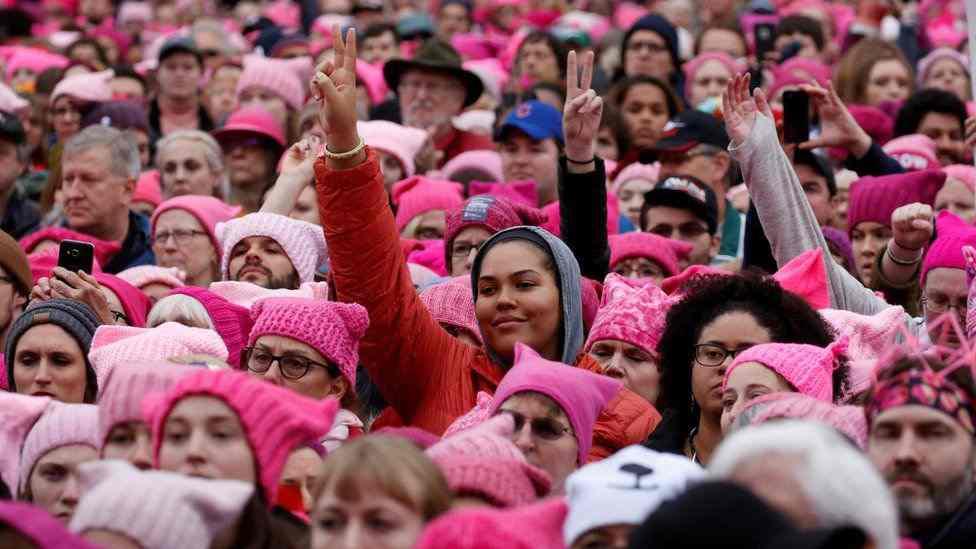
T o c o m m e m o r a t e t h e I n te r n a t i o n a l D ay fo r t h e Elimination of Violence against Women, young women heading d i ff e r e n t c i v i l s o c i e t y organizations and networks namely: Girls on the lead young feminist movement, Sustainable f a s h i o n a n d w o m e n empowerment, Lady Dynamique Network, Girls action for change and Tithandizane youth support o r g a n i z a t i o n u n i t e d a n d organized a webinar to have an insightful discussion which looked at how international organizations, governments, l o c a l o r g a n i z a t i o n s a n d community members can join hands to unite in ending violence againstwomen and girls. The discussion kick started with an understanding of violence a g a i n s t wo m e n a n d t h e i r
understanding was on the United Nations definition hence violence against women was looked at as " any act of gender-based violence that results in, or is likely to result in, physical, sexual, or mental harm or suffering to women, including threats of such acts, or deprivation of liberty, whether occurring in public or in private life. This was followed by an understanding on the facts on violence against women which have provided that globally 1 in 3 women experience physical and/or sexual violence in their lifetime, mostly by an intimate partner. While 1 in 7 men experience physical violence. This therefore served as a stark reminder of the scale of gender inequality and discrimination againstwomen.
Violence against women was on the discussion understood to negatively affect women ’ s physical, mental, sexual, and reproductive health, and to increase the risk of acquiring HIV in some settings. As a result there is lack of women participation in d i ffe re n t a c t i v i t i e s i n t h e communities the young women operate (as most of them are dealing with the outcomes of the violence they encounter) and this in turn affects the socio economic status of women and this increases inequalities.
The other issue that was focused on the discussions was an analysis on whether there any solutions in regards to helping victims of violence in the young women’s respective countries and an explanation on why it has taken this long to come up with
change. It was hence provided that they are laws organizations and governments support units set out in each of their countries but violence has rather been deeply rooted in our cultures hence not being able to deal with this deep culture roots has been the result of violence against women being an issue up until 2022. The other issue that was r a i s e d w a s t h e l a c k o f cooperation between religious leader’s cultural leaders and GBV advocates which has in turn escalated violence against women. Hence this brought the discussion to a conclusion that there is indeed the need to unite in ending violence against women.
Uniting to end violence against women was in this discussion looked at as:
Ÿ International organizations partnering ,collaborating and working together with local organizations Ÿ Governments ensuring that all violence support units are appropriatelyfunded Ÿ
�Community members ,church leaders and civil society networks joining hands in ensuring that violence against women is put to an end Ÿ
�It is supposed to be gender inclusive Although men are evidently the perpetrators of violence against women, isolating them from some efforts to end the acts of violence against women is not ideal.
AFRICANPEACE 51
FROMDIFFERENTAFRICANCOUNTRIES UNITEDTODISCUSSHOWVIOLENCEAGAINST WOMENCANBECURBEDWITHUNITY
Events Events
Several events took place in the second's largest continentAfrica. These events took place in v a r i o u s c o u n t r i e s o f t h e continent.
As prestigeous as Africa, was as huge as the event held.
One of the events was the Africa Day 2022, which marked 59 years since the Organisation of African Unity, OAU– now the African Union, AU – was formed, and for many.
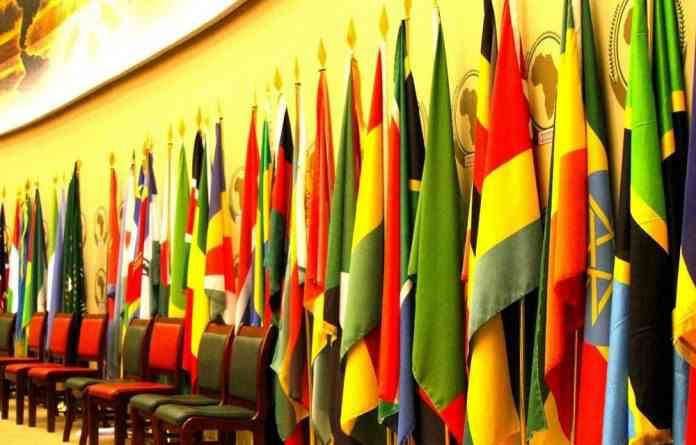
Without argument, it was the first opportunity to truly celebrate African unity and diversity since 2019 before the outbreak of coronavirus.
A statement on the Union's website states "The COVID 19 pandemic has made all of us acutely aware of the need for connection and the need to be u n i te d i n t a c k l i n g g l o b a l inequalities. The OAUs formation was a key turning point in unifying the African continent and has made significant strides in supporting Africa to begin harnessing its fullpotential."
African Peace Magazine, 2022
The African Peace Magazine UK, in conjunction with her strategic p a r t n e r s , R e t h i n k A f r i c a Fo u n d a t i o n , A f r i c a n Fa c t Checkers, Centre for peace and Conflict Management in Africa and African Right Watch was held
on the 11th to 12th November 2022.
With the theme "Evolving a Sustainable Peace Architecture in a ChangingWorld,"it hosted the prestigious African Peace Award in London UK at Hilton Hotel Kensington, 179-199 Holland Park Avenue Road, W11 4UL London. The event was designed to host b u s i n e s s , p o l i t i c a l , a n d diplomatic leaders. It had in attendance, policymakers, and think tanks on Africa and Africarelated issues.
The Youth Affiliated Event at the Africa Climate Week 2022 was organised by The UN Climate Change Secretariat in partnership with the Italian Ministry of Ecological Transition, YOUNGO, RES4Africa and the COP27 Presidency It was organised on the 31st of August and 1st of September to establish the Youth4Capacity initiative and discuss opportunities to enhance meaningfulyouth engagement in climate and action in the region.
On the 8th and 9th of February, 2022, Cyber Intelligence Africa 2022, presented representatives from regional governments to talk about national cyber security strategies and policies and how to combat cybercrimes across Africa, international cooperation, threat intelligence and detection capabilities and building cyber awareness.
DigitalManufacturingAfrica 2022, online was held on the 27th of July The conference had business and tech leaders as well as factory managers who are deploying AI and IoT systems. It f o c u s e d o n r e t u r n o n investments, case studies, and strategies for integration, technology, and manufacturing trends.
On the 2nd and 3rd of November, Te c h s p o , J o h a n n e s b u r g organised one of the bigger conferences and exhibitions in sub-Saharan Africa, which had a large gathering of exhibitors, from SaaS vendors to companies offering AR, VR, IoT, wearables, mobile, internet, 3D printing and another emerging tech It was one of the top conferences to go to for a broad sense of important emerging tech in a variety of sectors.
And in April, 2022, the worlds most elite young entrepreneurs and game-changers gathered in one of the worlds most beautiful countries, Botswana. According to Forbes, of the participants, one-third came from the 30 Under 30 Africa community, onethird from our host (Botswana), and one-third from the Forbes 30 Under30 communityworldwide. The Under 30 Summit comes to the worlds greatest growth market,Africa, forthe first time.
AFRICANPEACE 52
Our future, security, prosperity, and ability to project power globally rests on free, open, and secure access in and around Africa. Africa and the world is looking forawayto get back to normal.
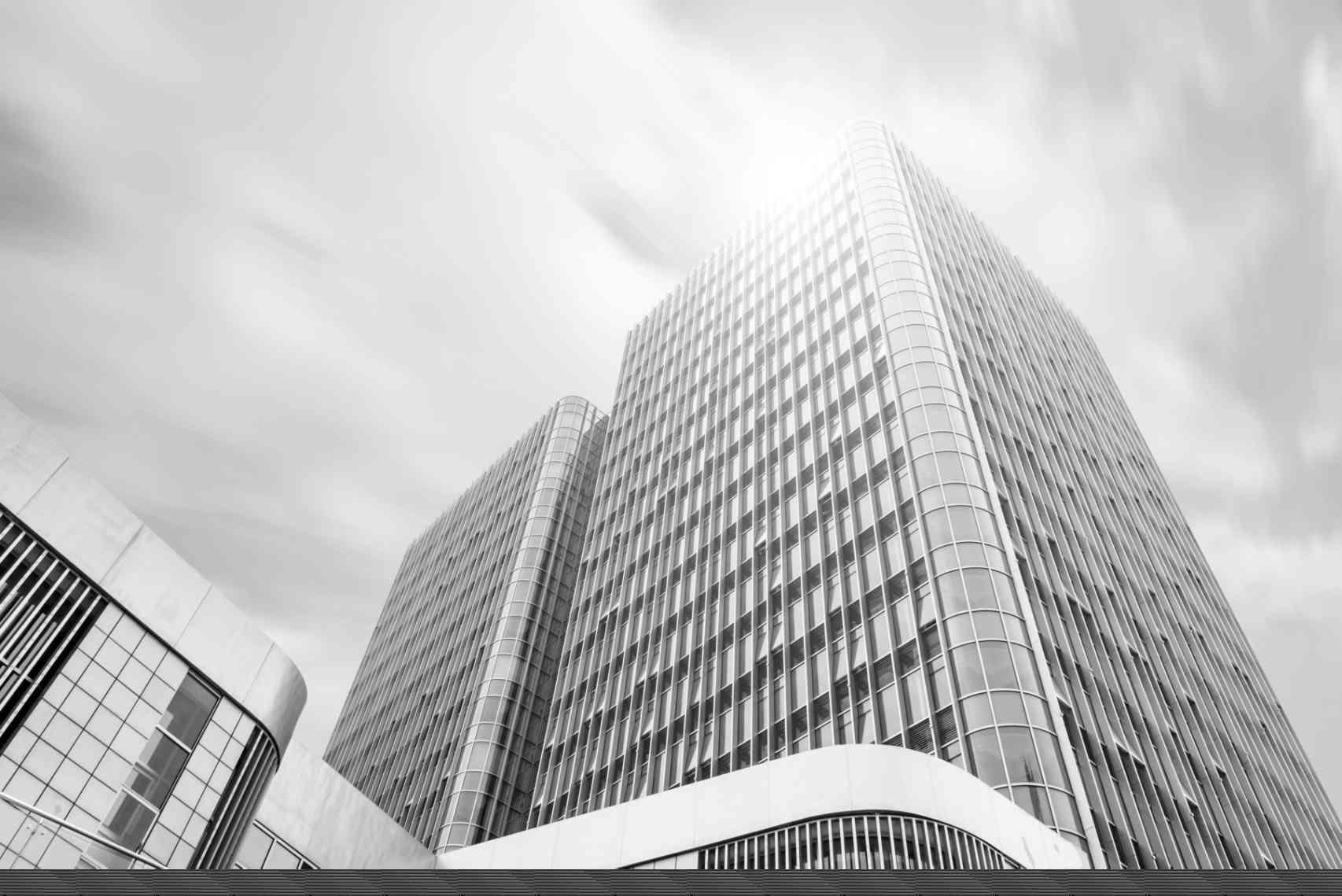

Recovery from the pandemic is slow but steady Yet markets gyrate on every economic, geopolitical, and Covid19 update, with an unstable inflation rate. Global tensions escalate between major political and economic world powers, with direct ripple effects on Africa, and a growing population ofabout 2.2 Billion on the continent.
Africa is obviously facing a dilemma having lost the philosophy of nonalignment. Amid all these uncertainties, Political leaders on the continent, Government, Diplomats, CEOs, Banks Chiefs, investors, and Security and Economic Gurus will convene at the 2022 African Peace and Security Architecture Summit 2022 to share insights, spotlight opportunities, discuss the intersection between security and economic stability and globalinfluence and stake out awayforward forAfrica.
For more inquiries, kindly send a message to africanpeacemag@gmail.com.
AFRICANPEACE 53


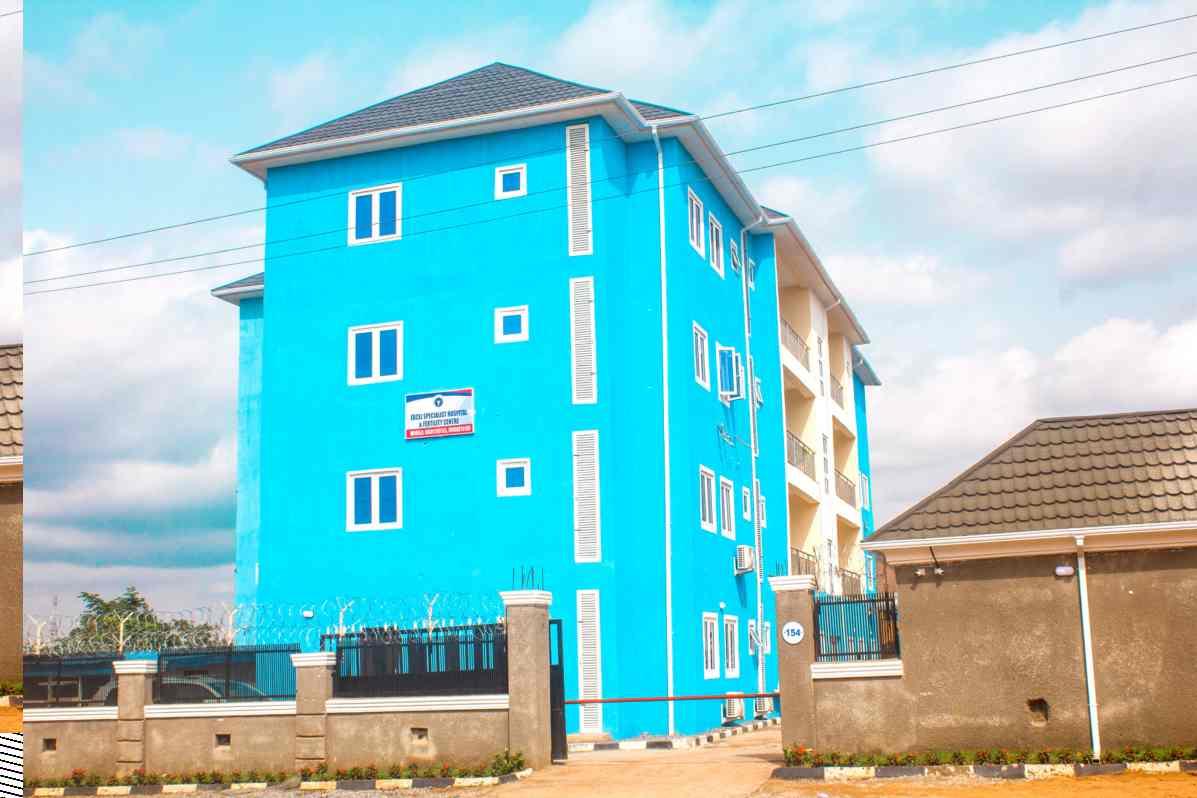
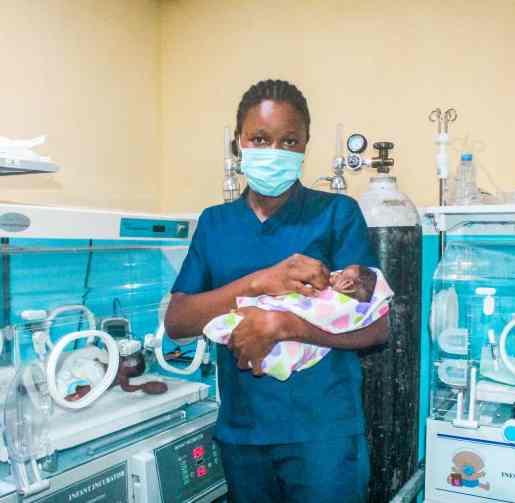





AFRICANPEACE 54 EXCELSPECIALIST HOSPITALAND FERTILITYCENTRE Exquisitemedicalcareforyouand yourlovedones Plot 154, Kaura District (Behind Glowing Ages Academy) OpeningHours MONDAY-FRIDAYS &WEEKEND 24HRS Hotlines: FrontDesk: 09098876160 Admin: 09098876156, 09098876157 Services: Neurology General Surgery Assisted Reproductive Techniques Cardio Laboratory Services
nextedition

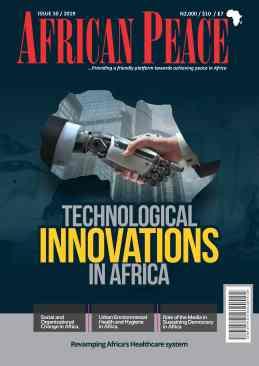
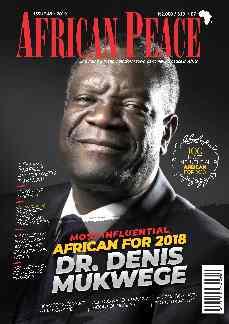
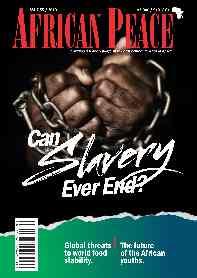
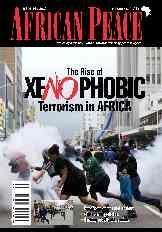

...Providing a friendly pla�orm towards achieving peace in Africa AFRICANPEACE 55
W W W . A F R I C A N P E A C E . O R G Sub�ribenow forour
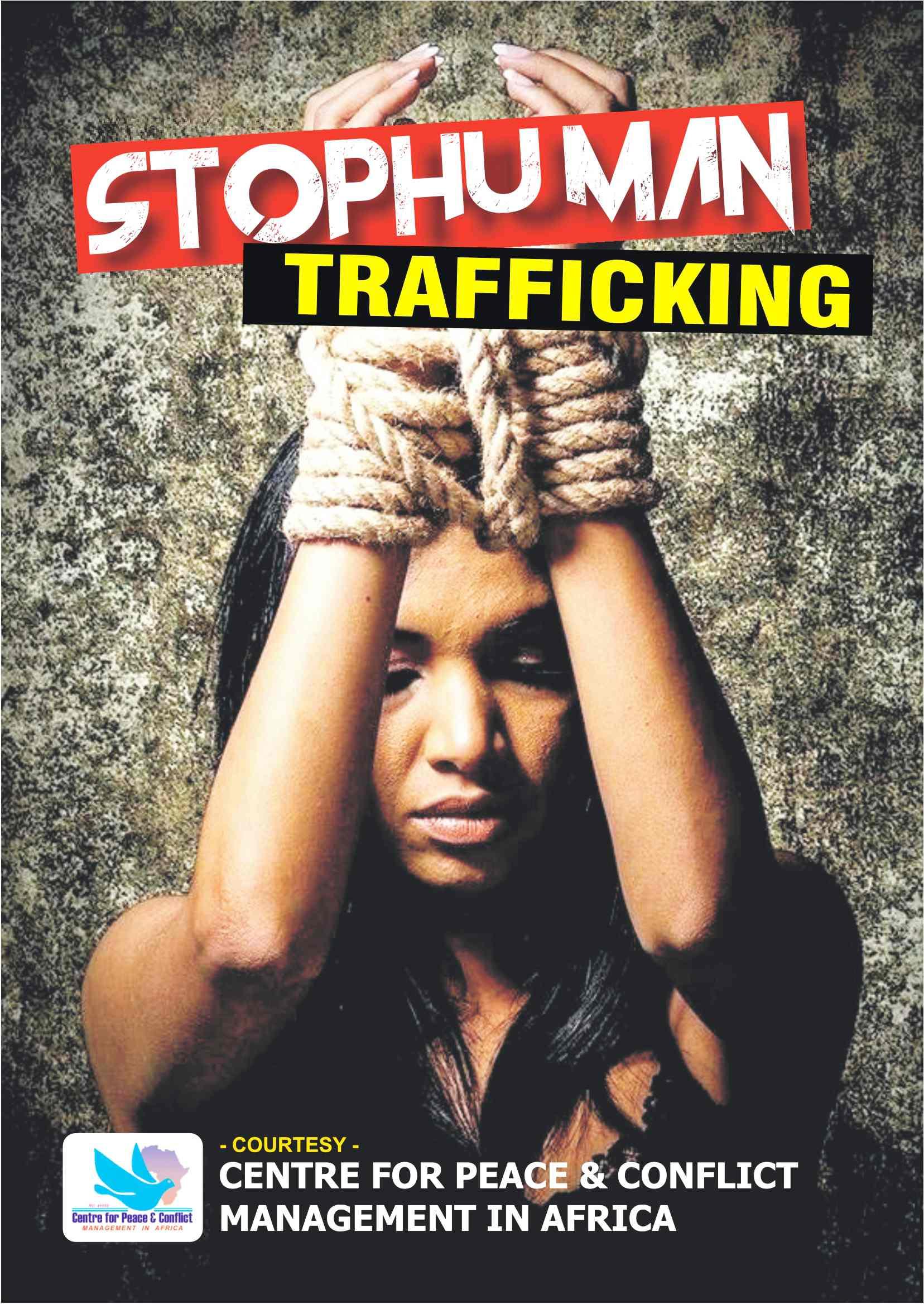
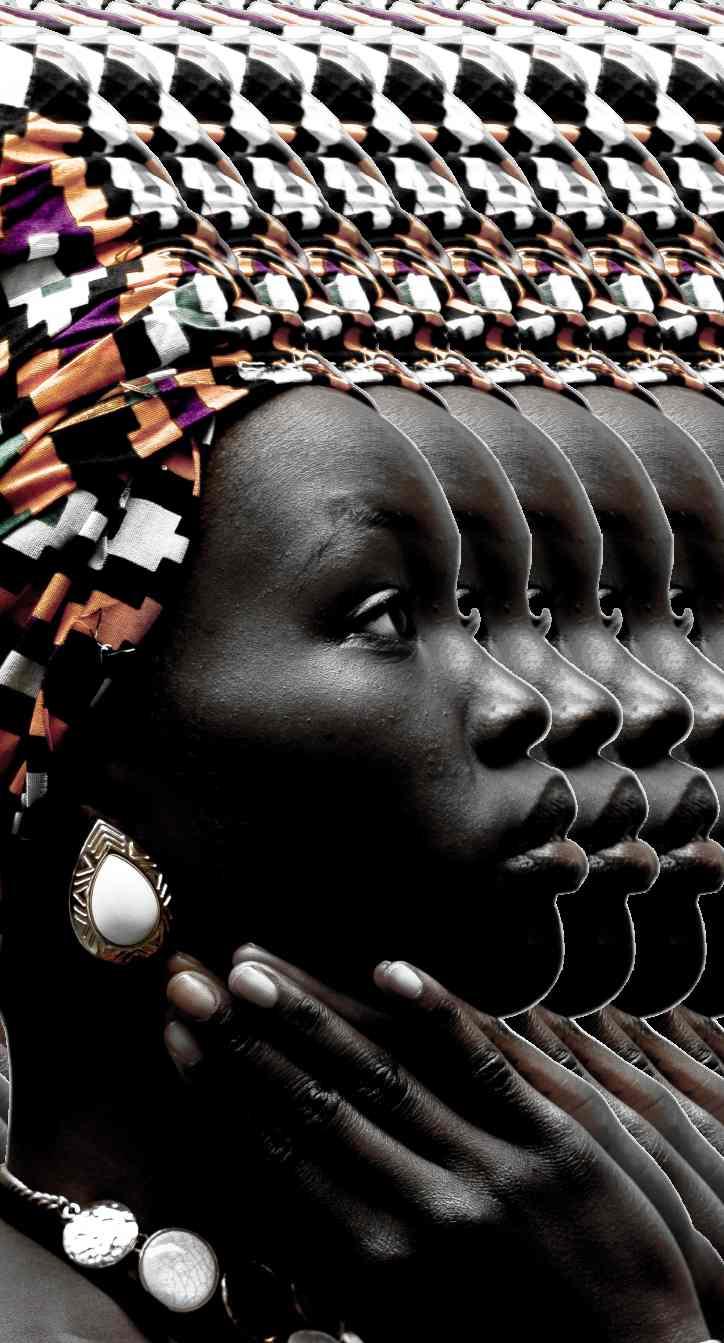


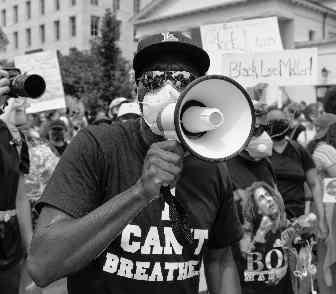
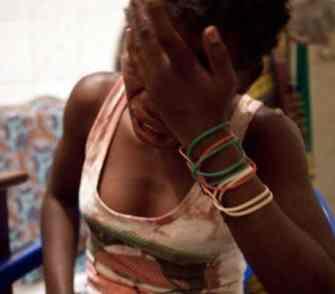

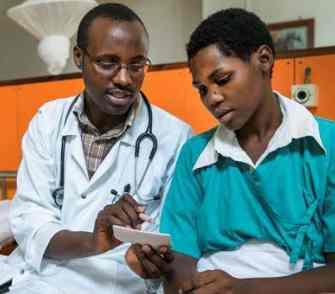
+2347025003543 +2347025003544 +2347025003537 AFRICANPEACE 57
African Rights Watch Television (ARWT), is a member of the African Rights Watch brand which includes the African Rights Watch Magazine and African Rights Watch Radio station, it has made its debut in Nigeria as Africa’s first 24-hour human rights watch dedicated television channel and will be availableonpay-TVplatforms,StarTimes,GoTV / Dstv and DaarSat soon. ARWTV features audio and video content with cutting edge commentaries and in-depth analysis on political, human rights violations, abuses and current affairs, development, refugees, gender issues, culture and debate from social medial platform across the continent, proffering solution and rehabilitation for victims.
African Peace Magazine are magazines aimed at uplifting the values of peace and unity throughout the continent It condemns violence and acknowledges those who strive to make the strife disappear It features pieces, articles and writeups which go a long way in promoting this noble cause of peace. We at African Peace Magazine believe that every sector of a nation contributes in the collective propaganda of a peace country We have the Magazine, Television and Radio sections. With over 250 million target readers/ views across its portfolio in more than 100 countries, our publications/platforms would be the region’s undisputed market leaders.Our readersand clients represent the elite from business, political and academic circles and are people who have influence over the direction of theircountriesandcompanies.
There is no doubt, that Africa is the new frontier! With over a billion people, 12 million square miles and seven out of ten of the World’s fastest growing economics, Africa is poised for paradigm-shifting growth African Peace magazine is therefore putting together several events all over the world in conjunctionwithourstrategicpartners.
Cutting Edge advertising/ Image making strategies, has assumed a new dimension of wrapping corporate brands around key programs for perfect leveraging.
African Peace Magazine brands , are the first magazine directly targeted at the comprehensive market that cut across all ages, class or status.it has come to bridge the gap – with a magazine that is elevated, mature and intelligent And is focus on Peace, which invariably covers all other sectors from Fashion to Economics, Politics to Leadership issues, every subject you can ever imagine. “It is thus the prime advertising platform to reach the African market” Available free onlineandonmobileApps.
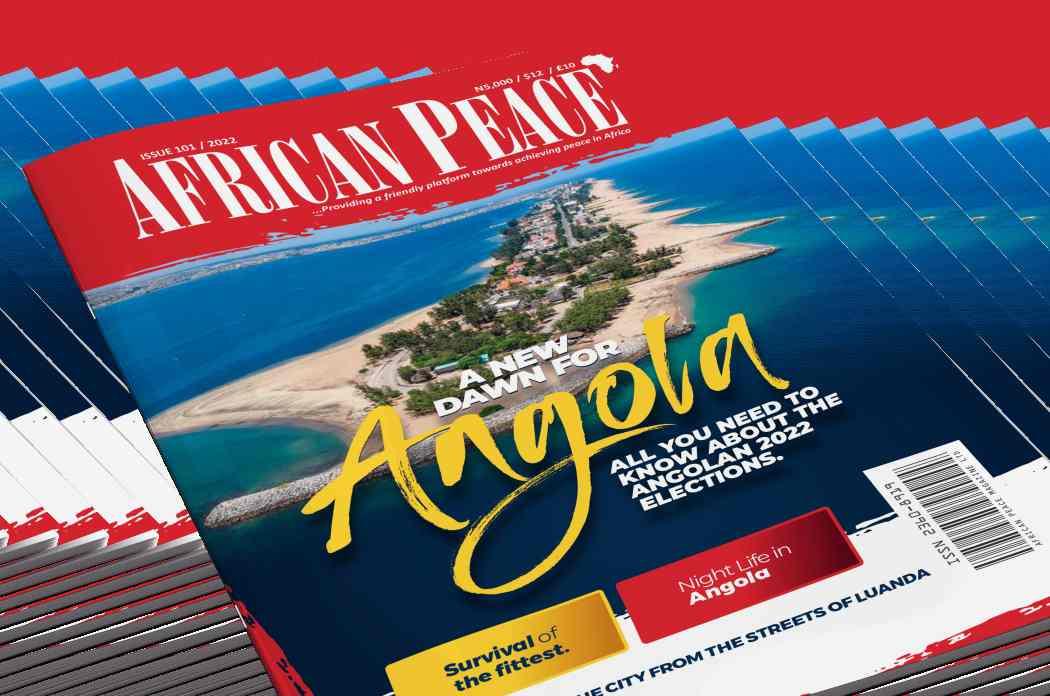
Website: www.africanpeace.org
Twitter: www.twitter.com/africanpeacemag
Email: africanpeacemag@gmail.com
Facebook: https://web.facebook.com/africanpeacemag/ I.G: www.instagram.com/africanpeacemagazine
www.linkedin.com/company/african-peace-magazine-ltd
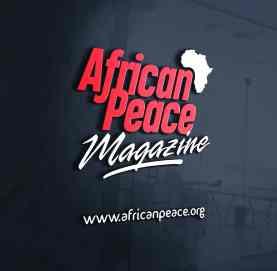
AFRICANPEACE 58
Linkedin:
...Providing a friendly pla�orm towards achieving peace in Africa
Oriental Gas and Oil strives to deliver exceptional value for every investor Access an extensive range of resources from financial information to operations reports. Plus stay up to date with the latest news, events and more.
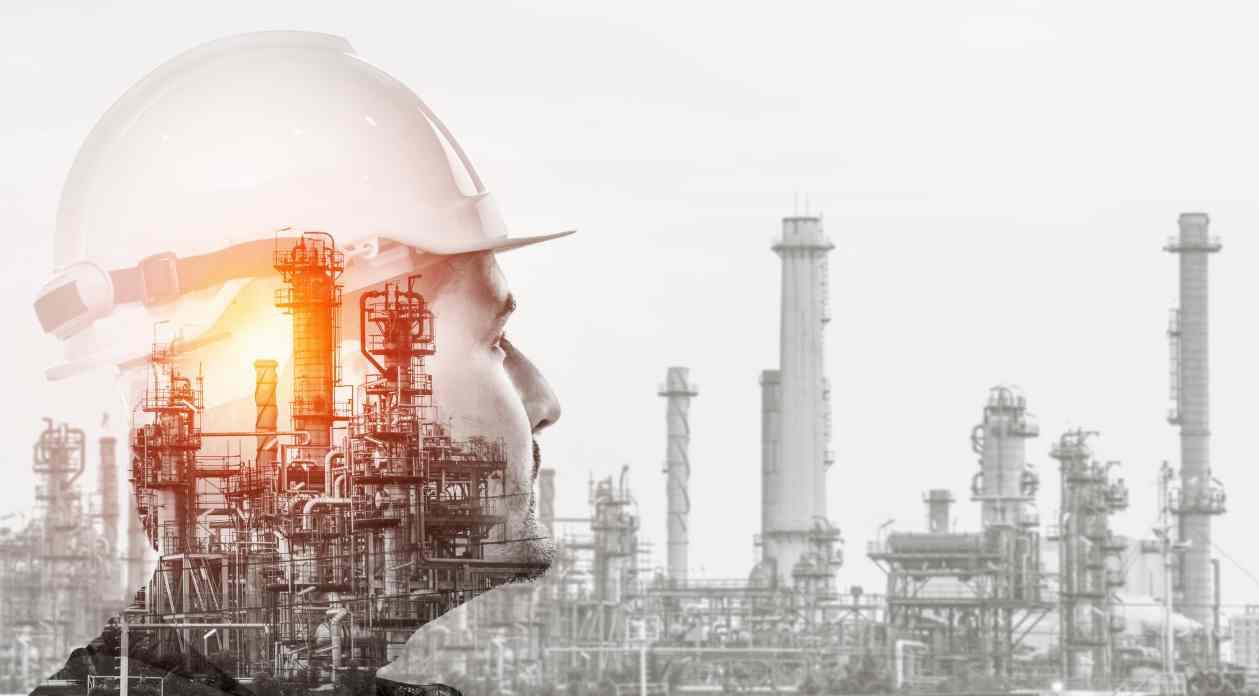
Our successes have been built on exceptional workforce, strategic alliances, world-class technology, operational efficiency, best practices and sustainable initiatives in the host communities and area of operation.
 Check our facebook page: Oriental OilAnd Gas Services Ltd
Check our facebook page: Oriental OilAnd Gas Services Ltd
AFRICANPEACE 59
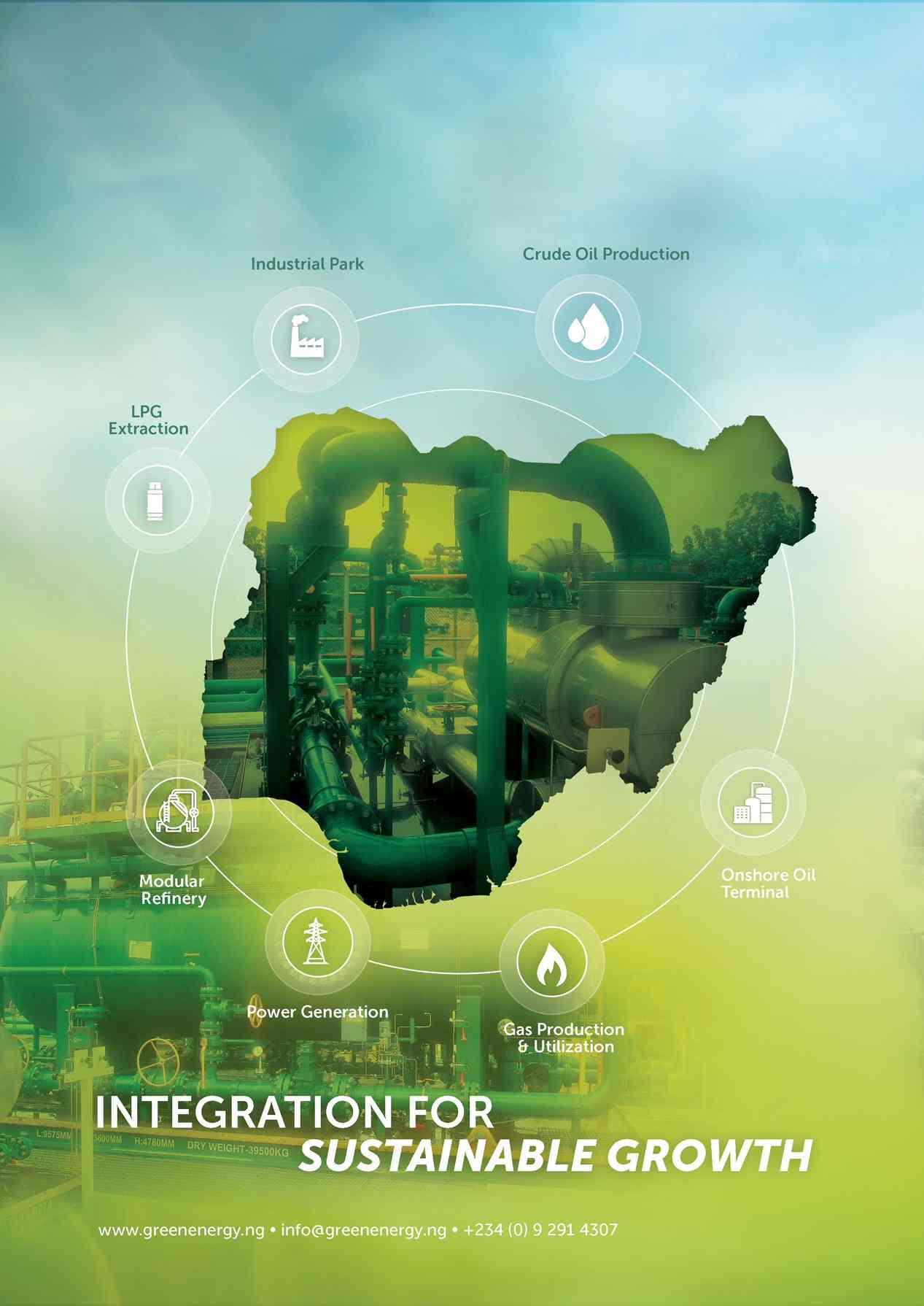
AFRICANPEACE 60
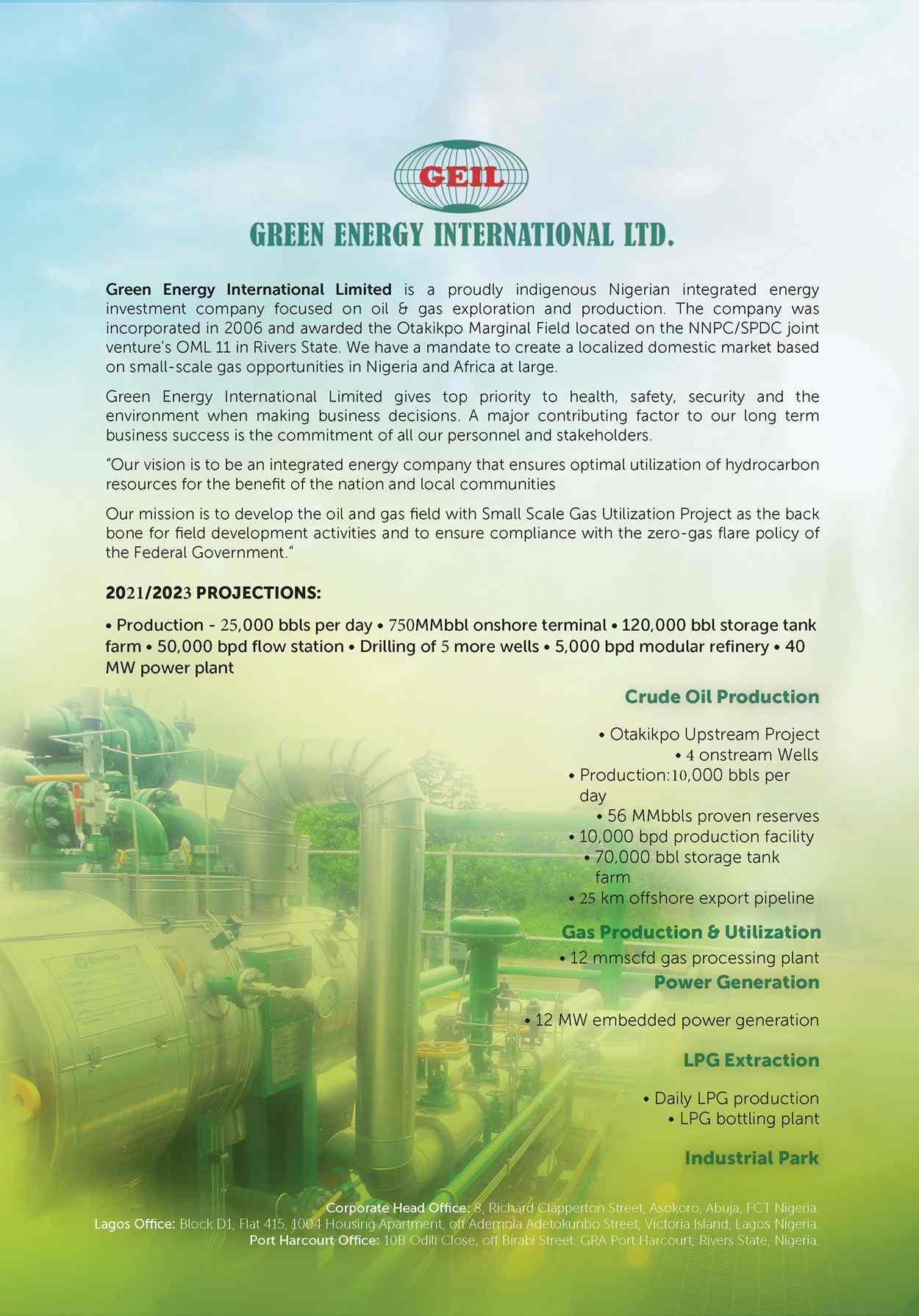
AFRICANPEACE 61
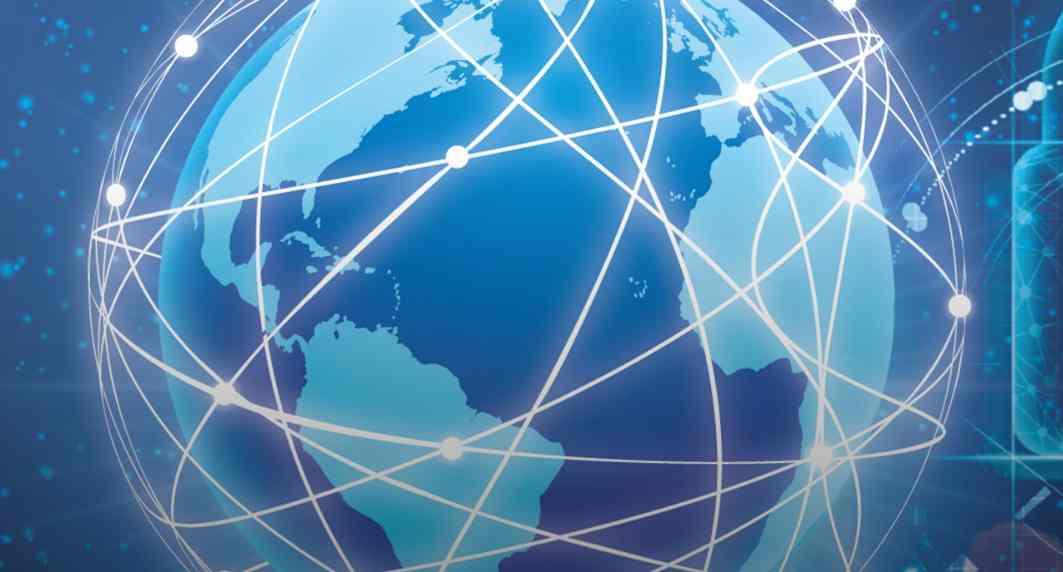

AFRICANPEACE 62 Angola Luanda Office Edifício Cellwave Via AL5 Zona, XR6B Talatona, LUANDA SUL Data center Ango Nap Luanda Avenida Pedro Castro Van Dúnem Loy Talatona, Luanda Sul, Angola Bengo Sangano Station Sangano Beach Município da Kissama, Bengo, Angola Brazil São Paulo Office Rua Irmã Gabriela, 51Brooklin CEP 04571-130 – São Paulo +55 11 3797-6347 Fortaleza Office Ango NAP Fortaleza Avenida Trajano de Medeiros, 1851 Praia do Futuro I – Fortaleza – Ce CEP 60.182-325 Monet CLS Avenida Pintor Antônio Bandeira, 2630 Praia do Futuro I, Fortaleza – Ce CEP 60.182-308 South Africa, Johannesburg Office The Pivot – Monte Casino 1st Floor 1 Monte Casino BLVD Fourways Sandton South Africa 2191 +27 11 367 4367 www.anglocables.com

This is a company that deals with detection of fake news, ensuring accurate background checks on humans and business, conducting due diligence to safe lives and investments. They ensure that fake news do not make its way to the public and where it does, they are automatically spotted by artificial intelligence and automatically deleted off the web. They provide evidence-based-fact checks in all areas of life. Now, the internet has become a faster means through which information and news can be gotten. However, with this advantage comes the disadvantage of being faced with fake news as anyone can post anything online. This is why the Africa Fact Checkers have come together with the sole purpose of acting as investigators of all kinds of news on the web and detecting fake news.
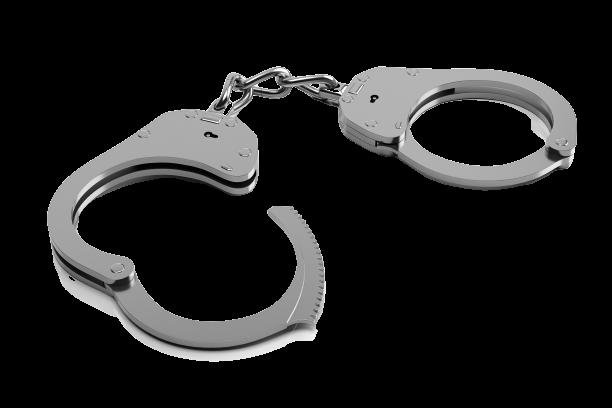

Africa Fact Checkers came together to solve the problem of detecting and preventing the existence of fake news on the web Because of the growing increase in the existence and spread of news, majority of internet users usually repost for different reasons without checking the veracity of the information they are reposting and this has an adverse effect on individuals and the society at large because of misinformation. It is therefore necessary for the internet space to be watched and contr
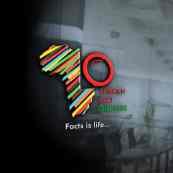
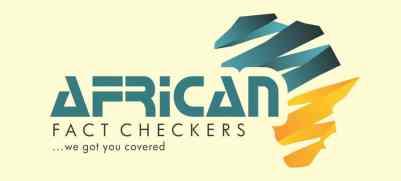
+2347025003543 +2347025003544 +2347025003537 AFRICANPEACE 64
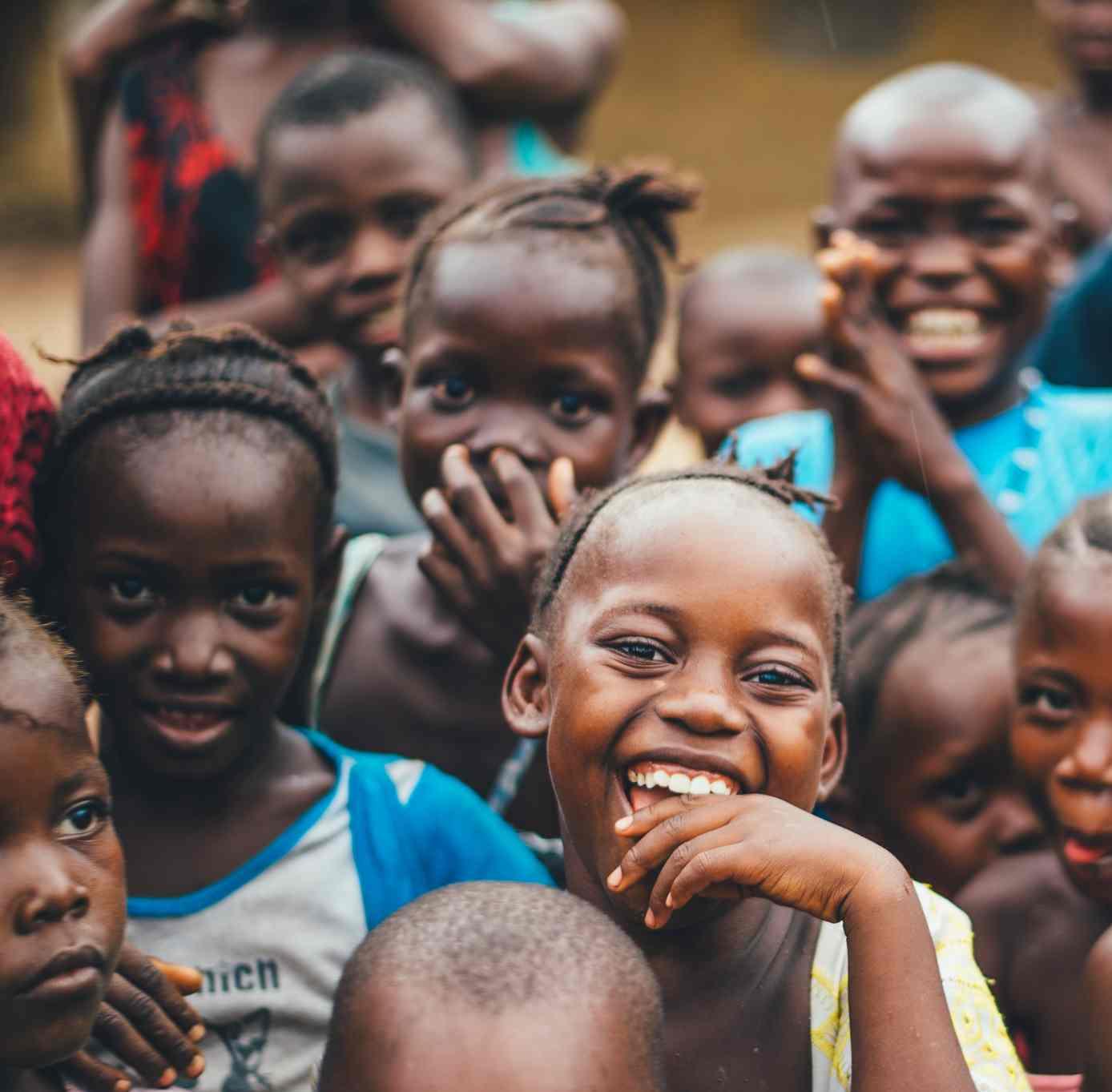
AFRICANPEACE 65 2023
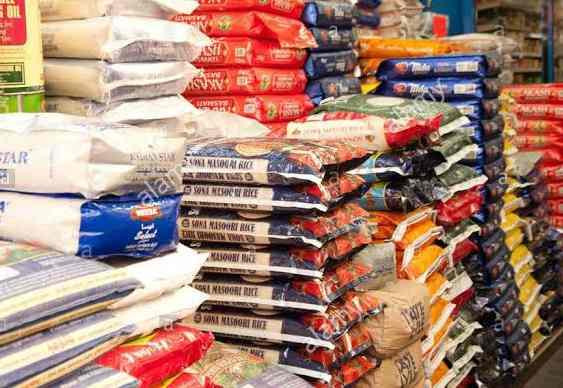
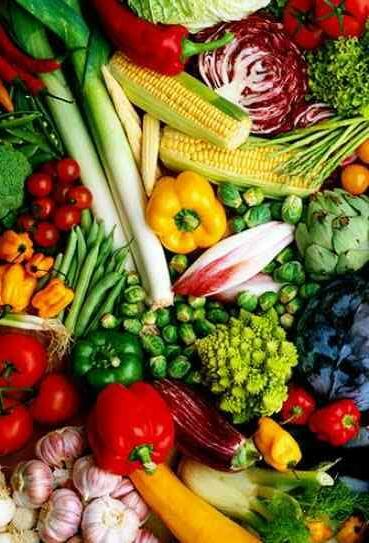
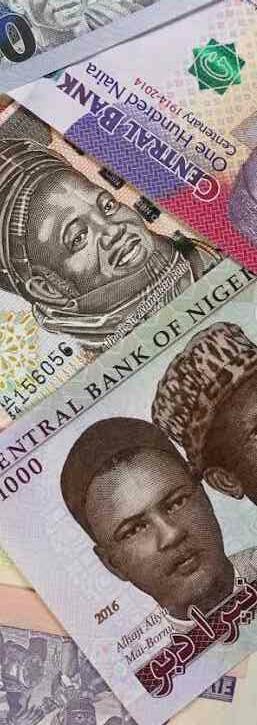
AFRICANPEACE 66
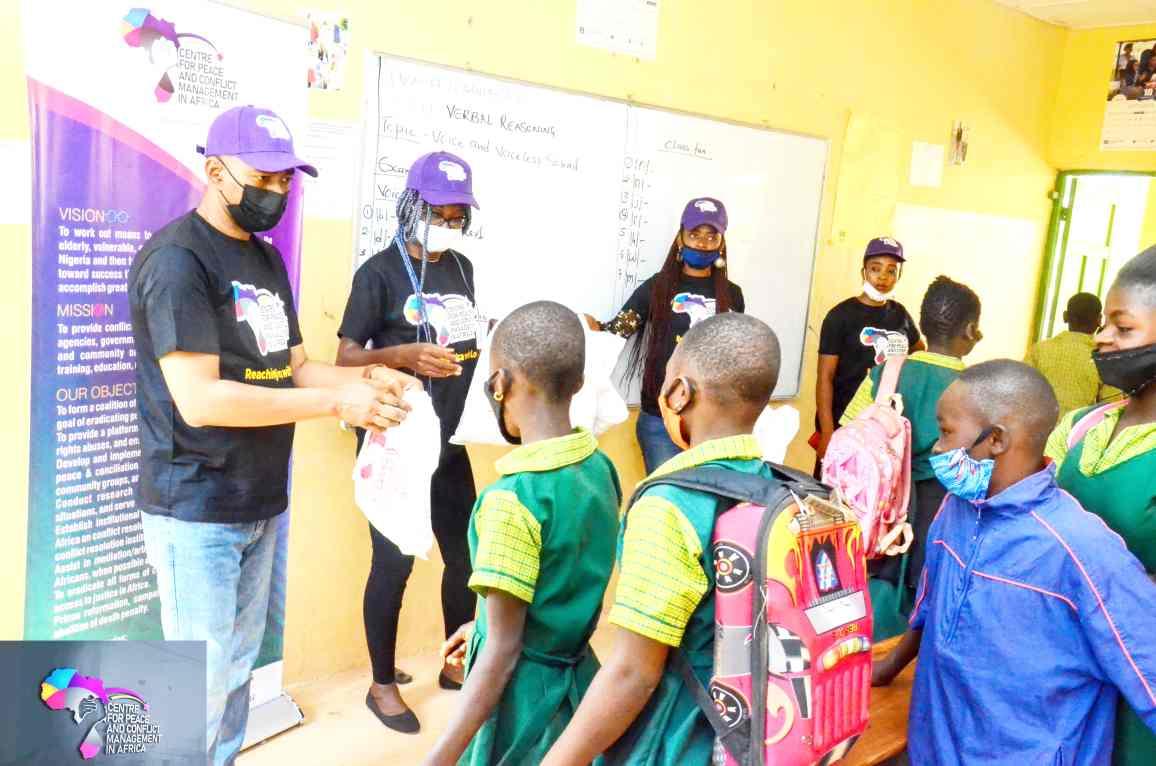
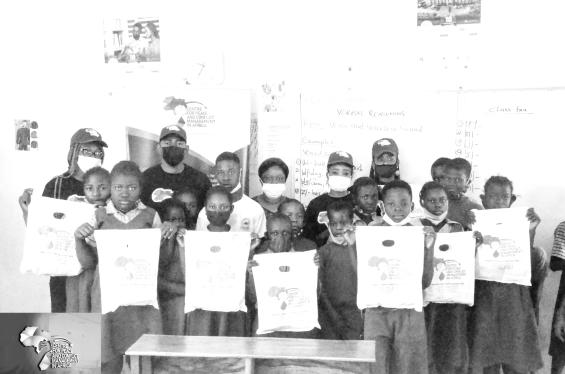
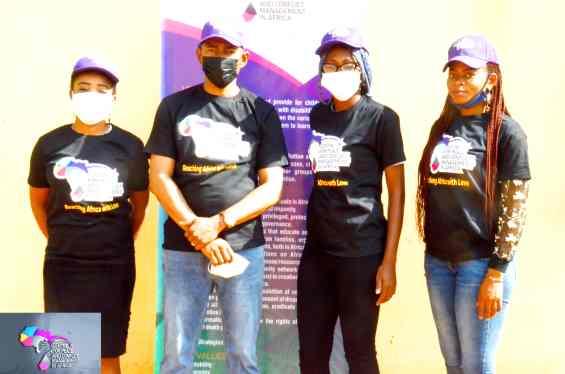
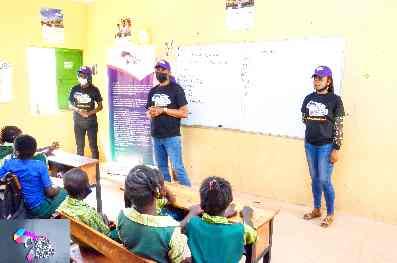
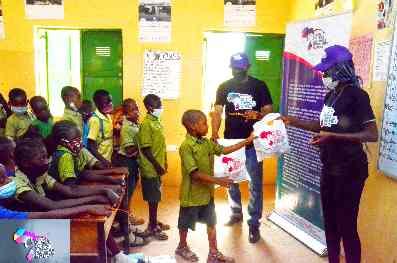
AFRICANPEACE 67
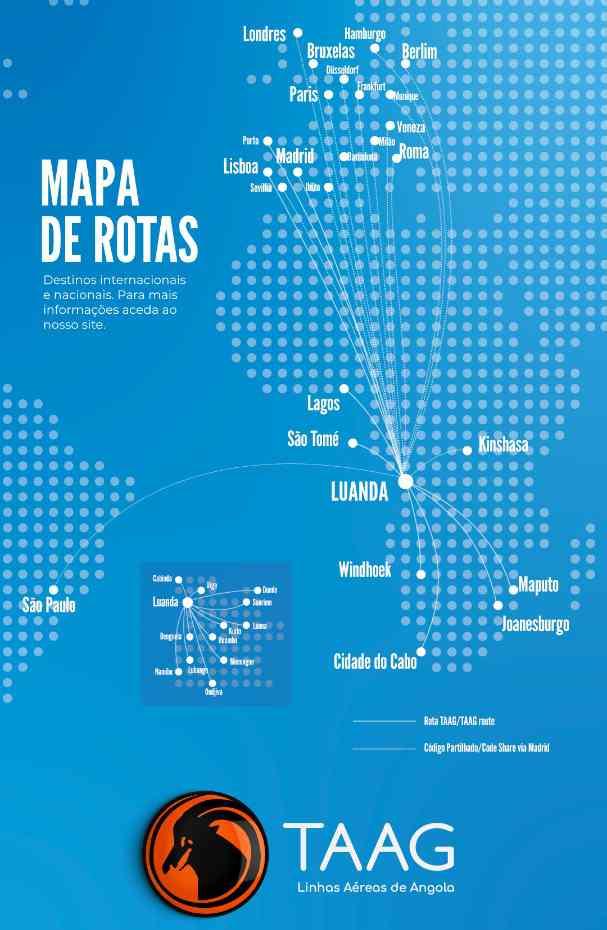
Get in touch with The embassy of the Republic of Angola in Abuja 321 Diplomatic Dr, Central Business District 900103, Abuja. 09 461 4731


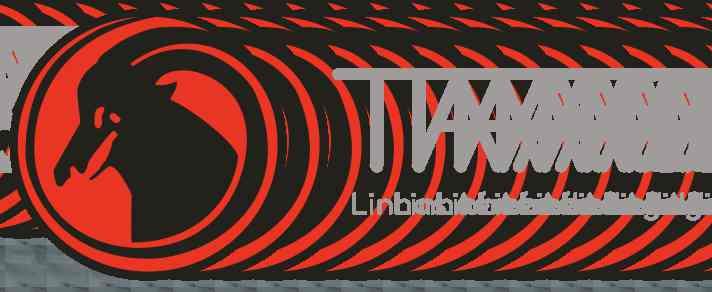
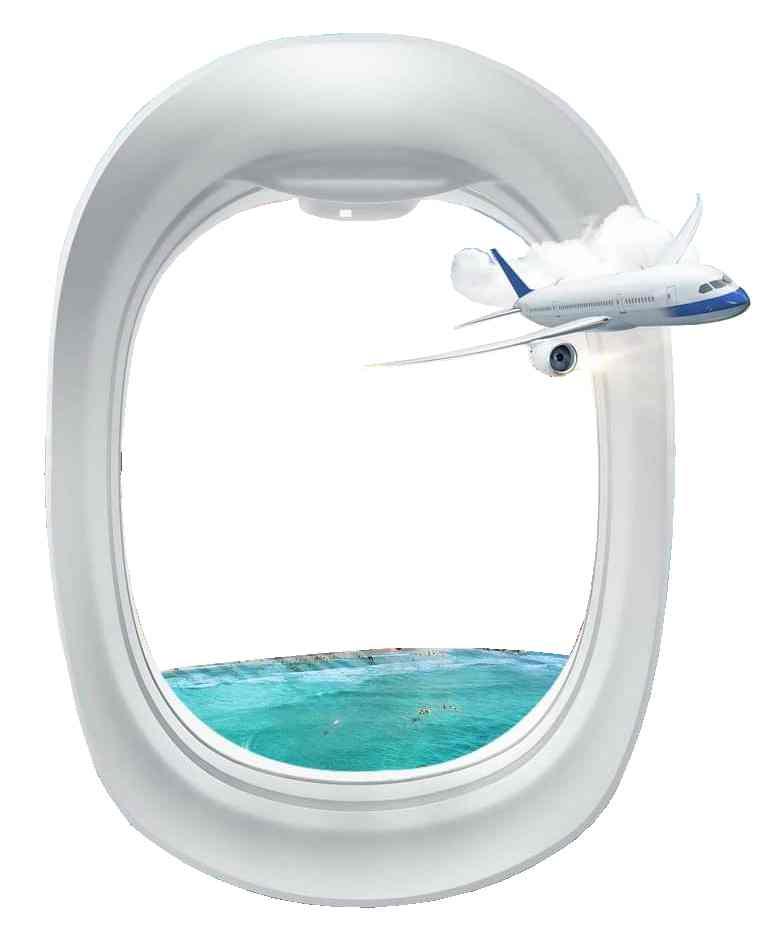
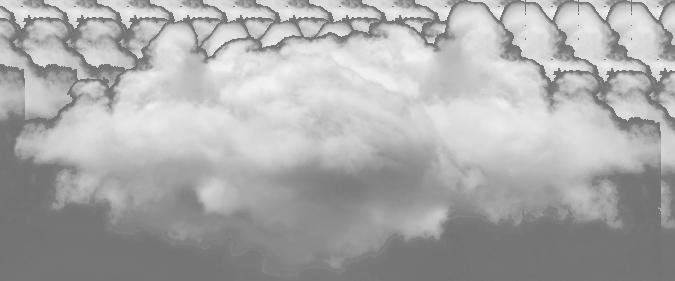


All material is copyright and all rights are reserved. No part of this publication may be reproduced without written permission of the copyright holder While every effort is made to ensure all prices and data are correct at the time of publication African Peace Magazine is not responsible for editorial errors. Opinions expressed in African Peace Magazine does not accept responsibility for advertising content. Any images or transparencies supplied are at the owner’s risk. FLY WITH IN TAAG COMPLETE SAFETY www.taag.com





























































































































































































 Check our facebook page: Oriental OilAnd Gas Services Ltd
Check our facebook page: Oriental OilAnd Gas Services Ltd

























